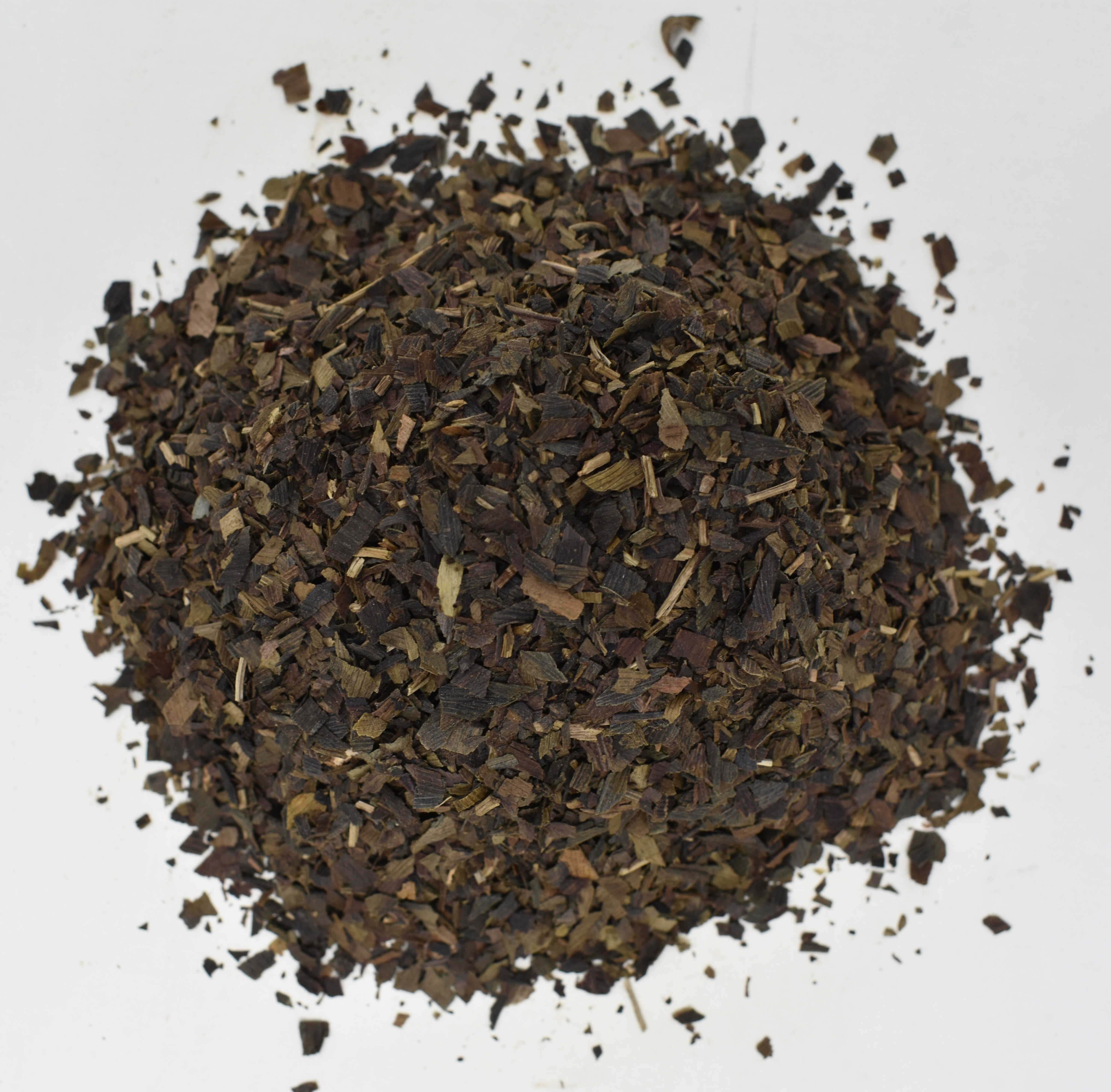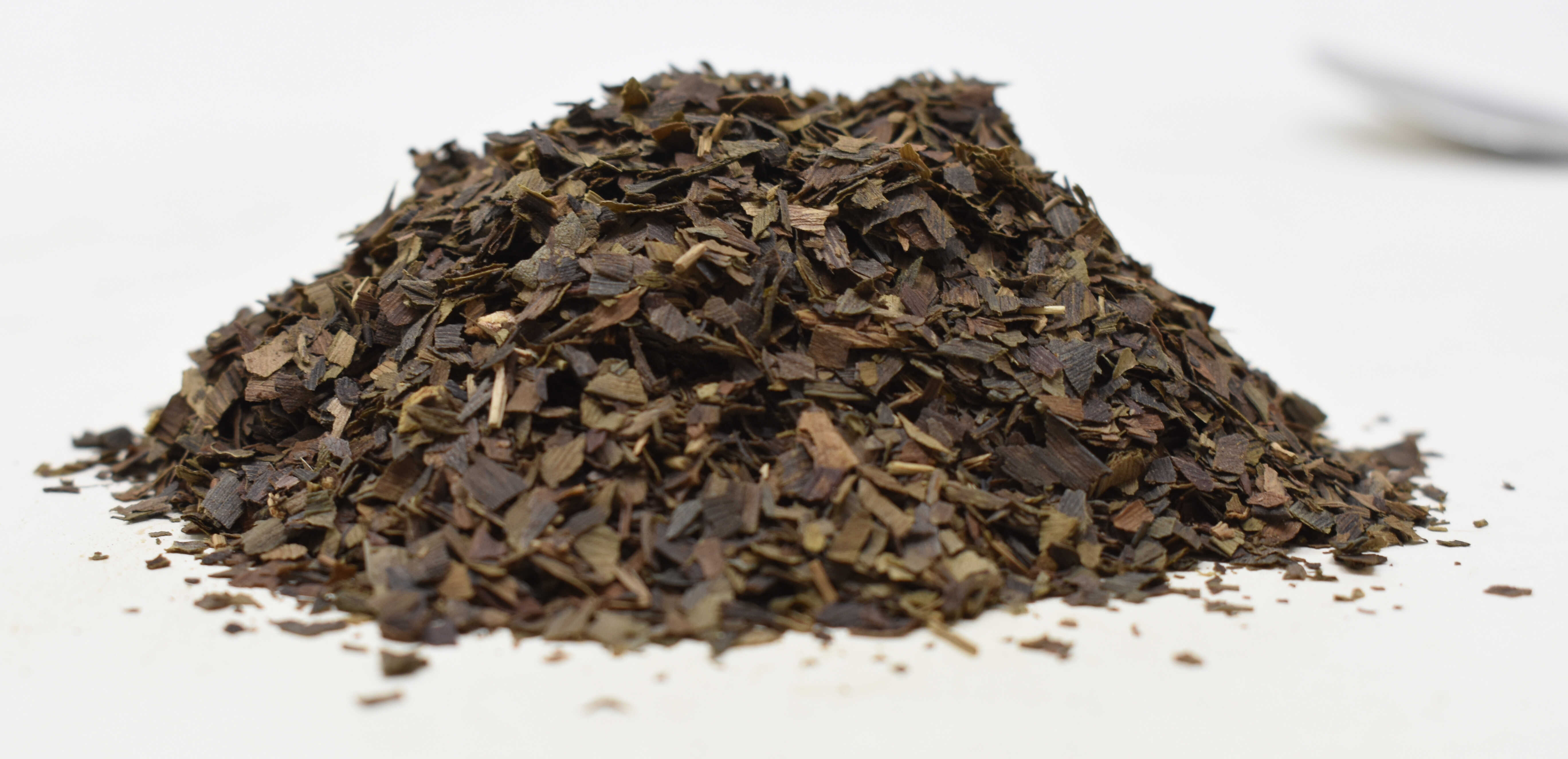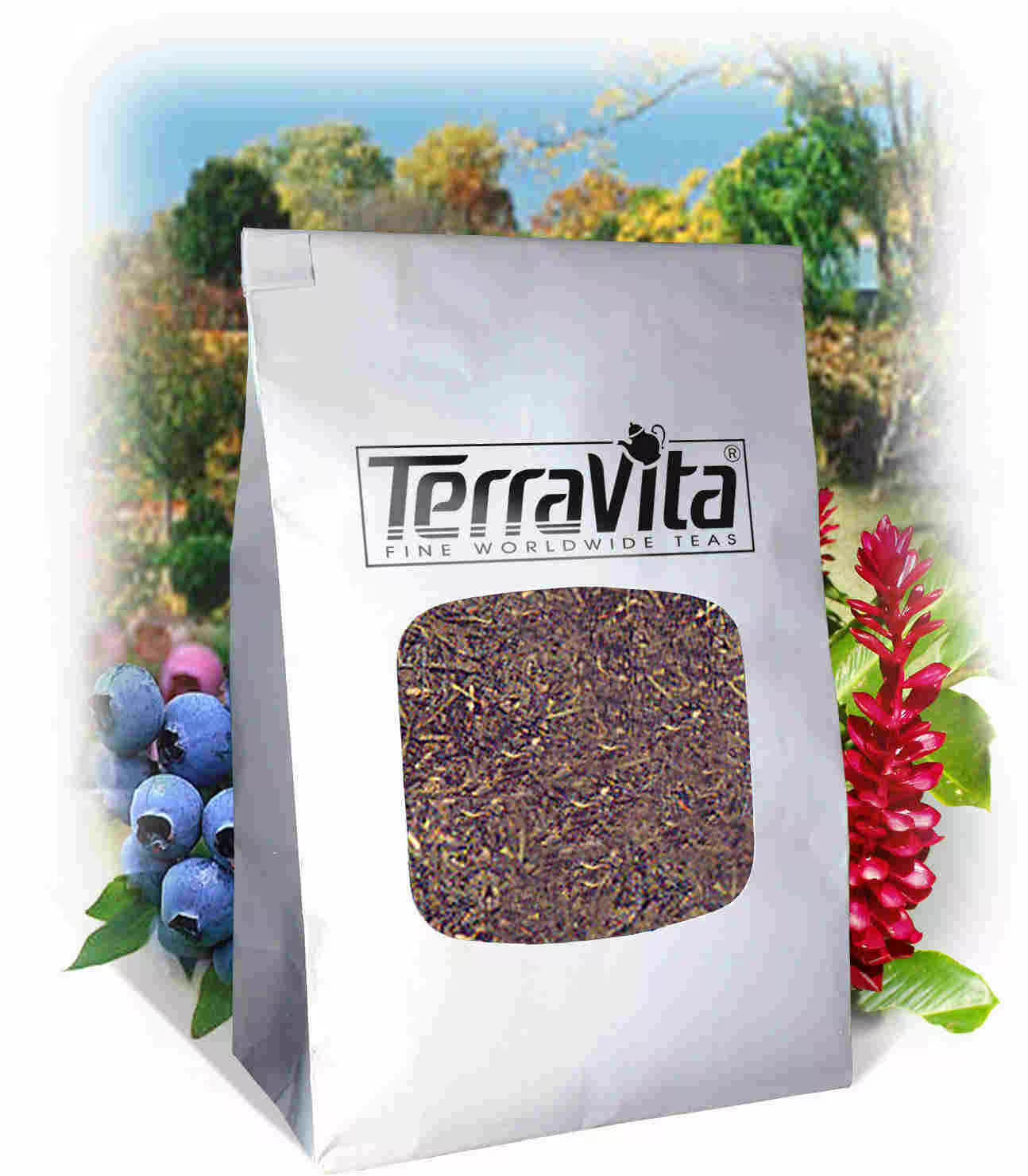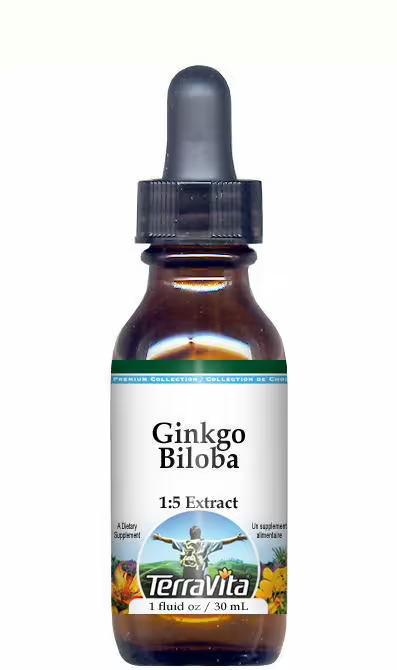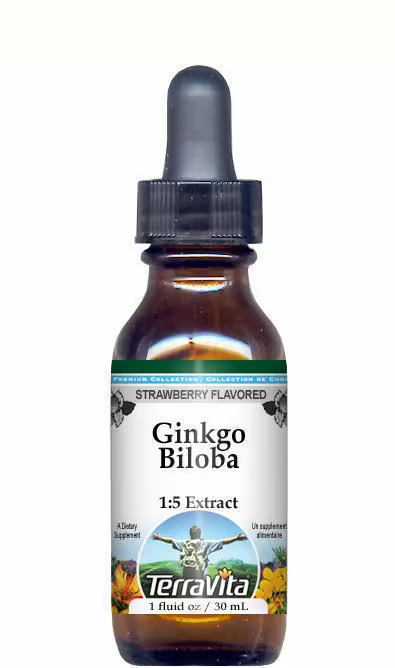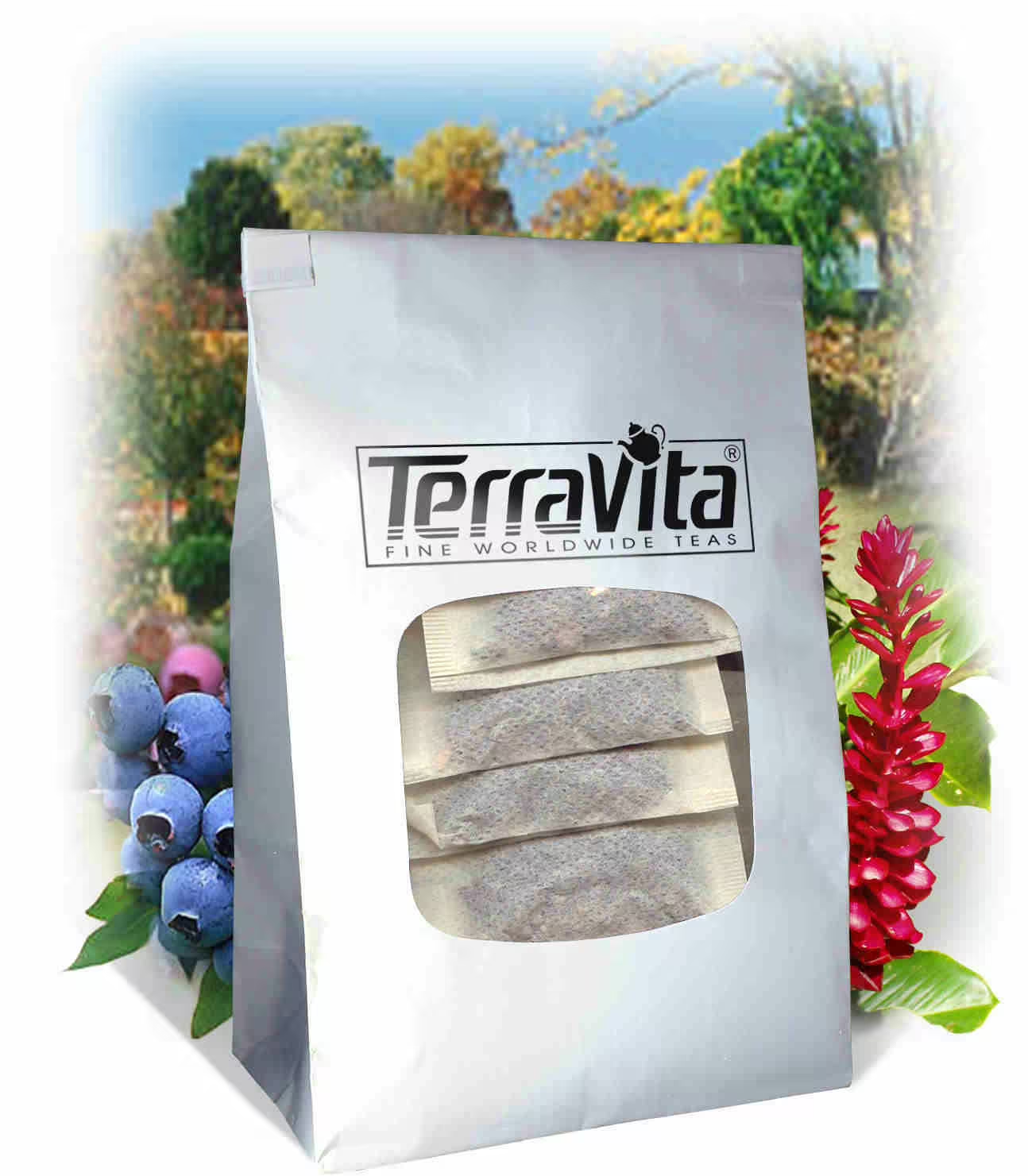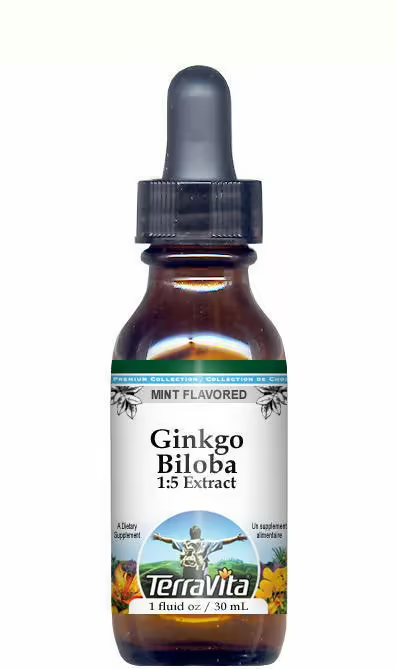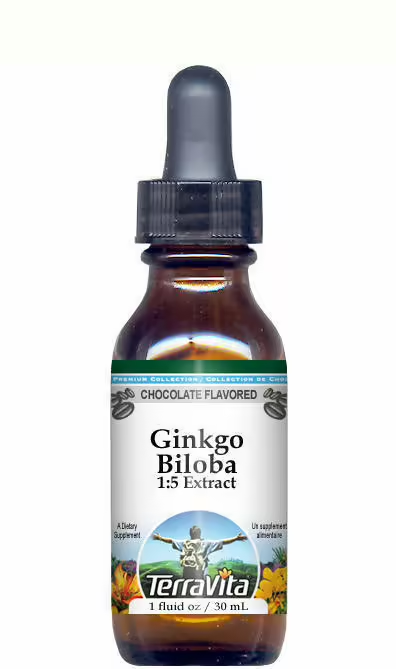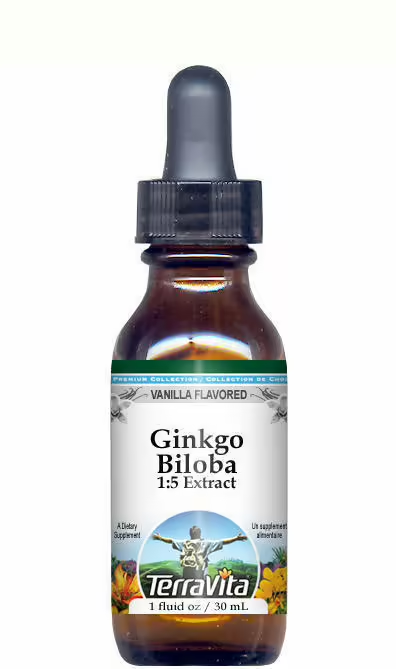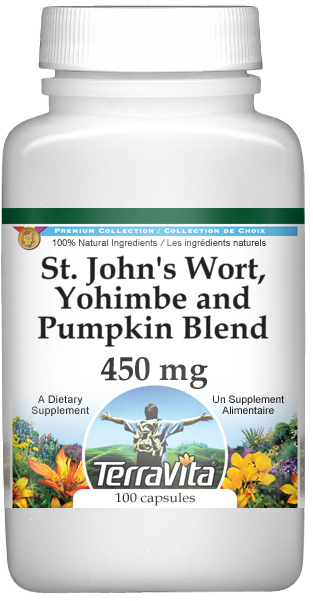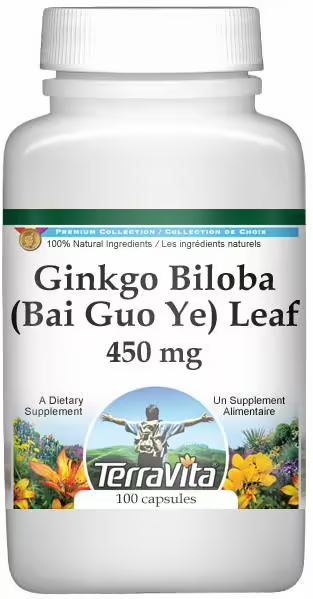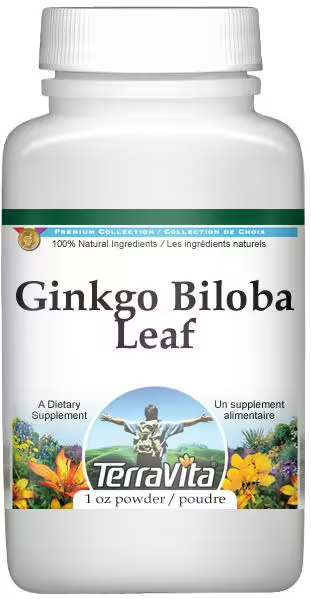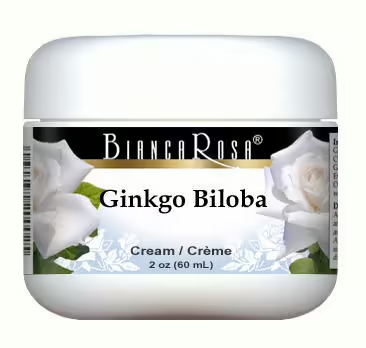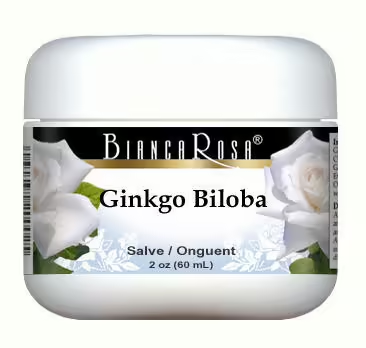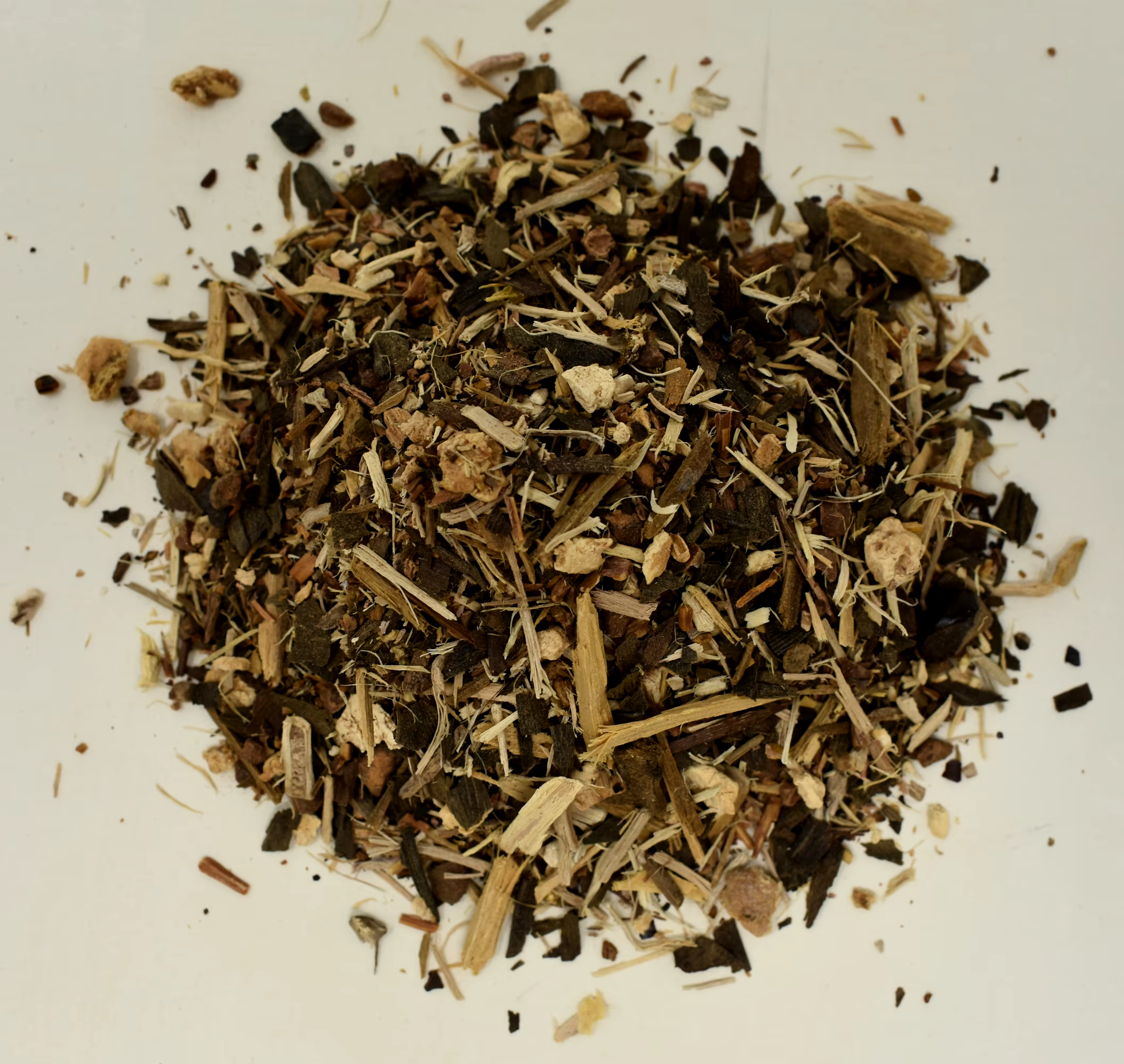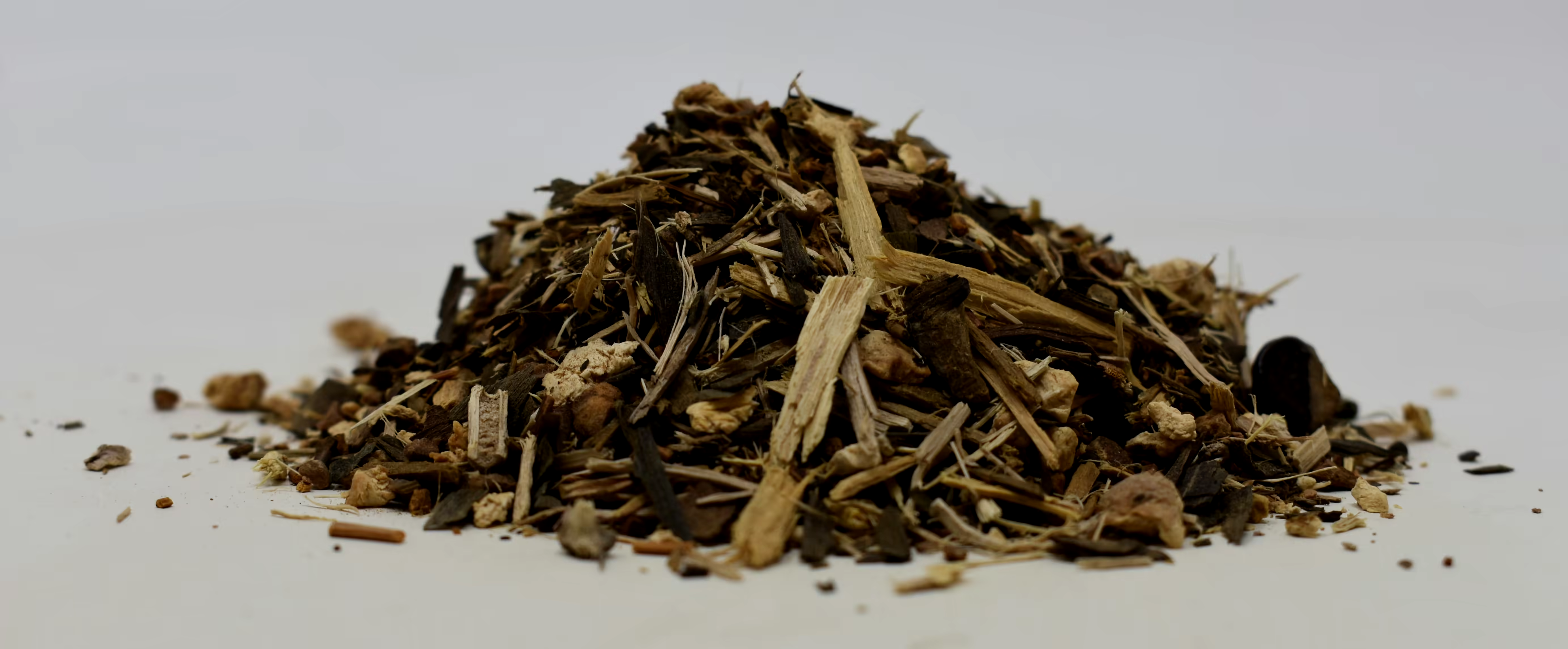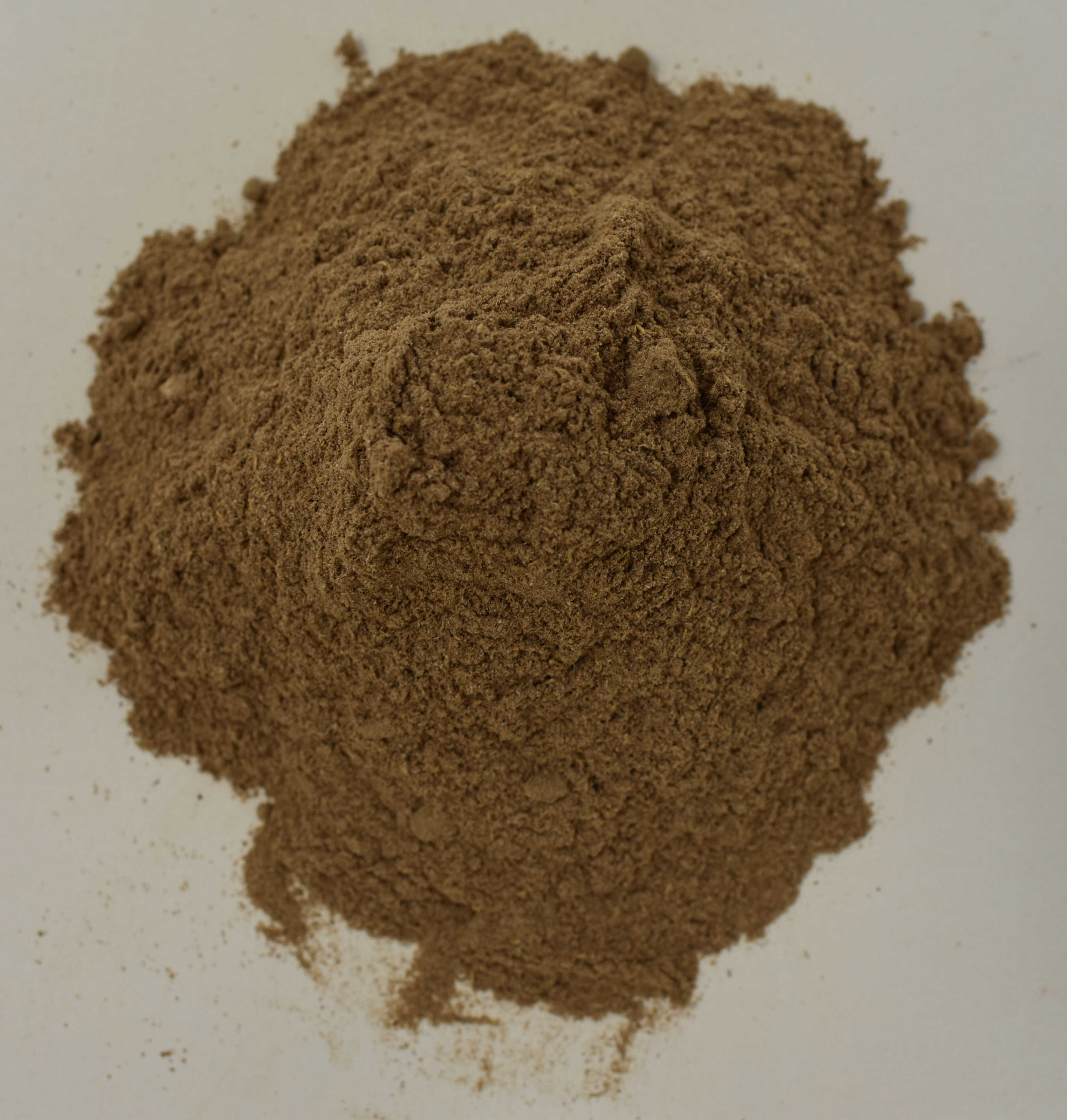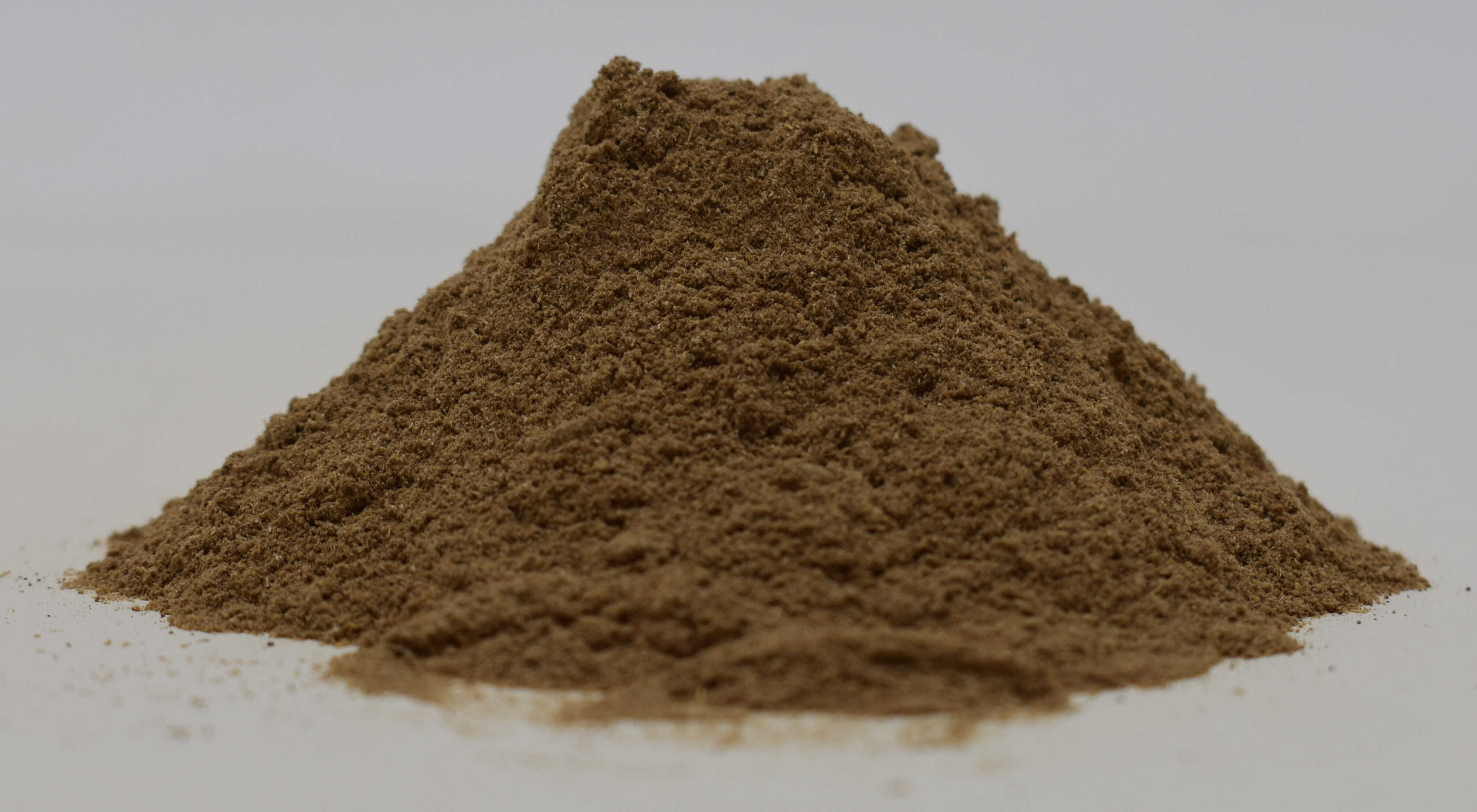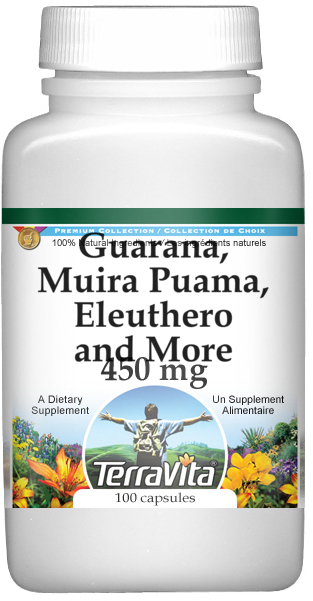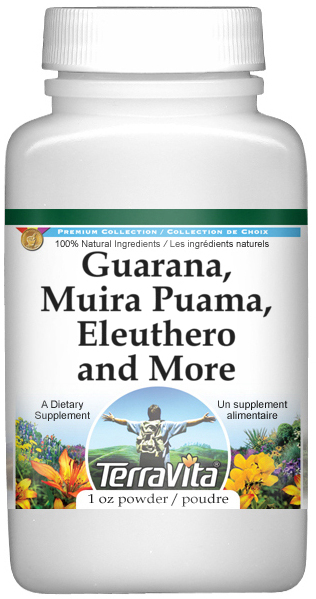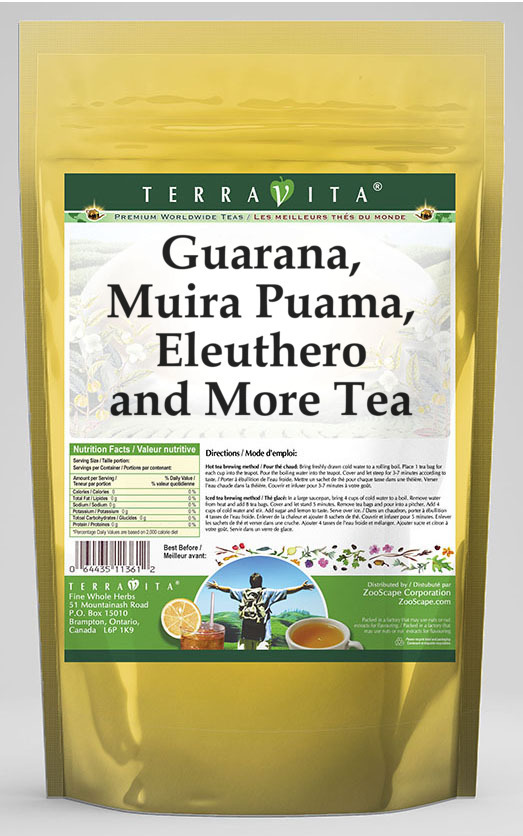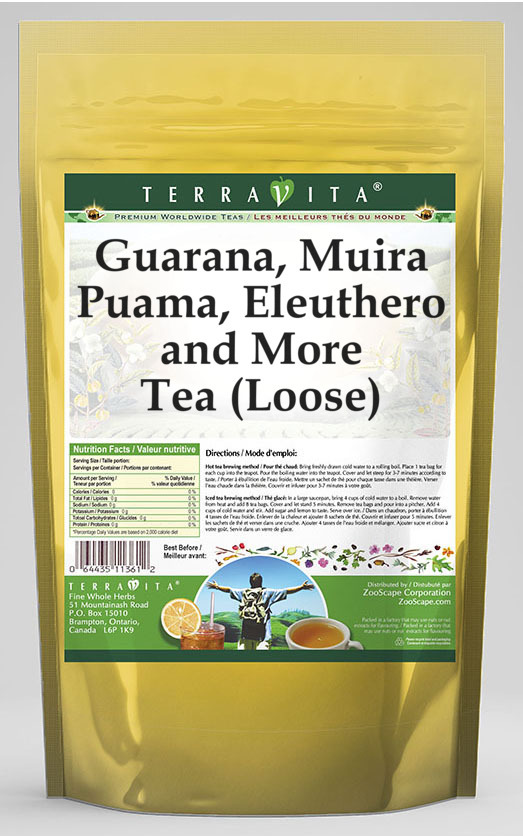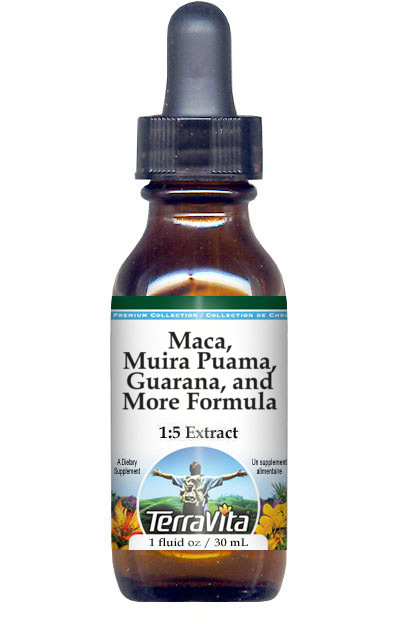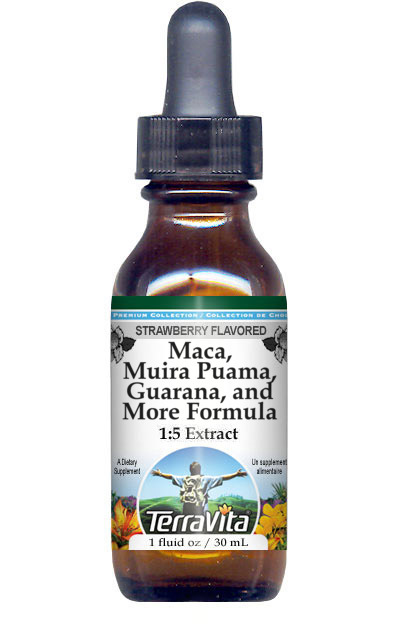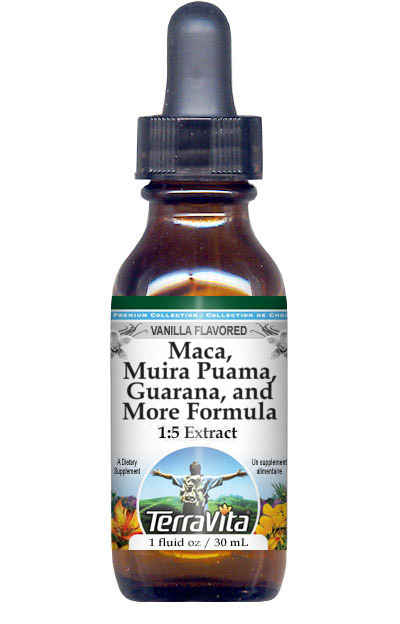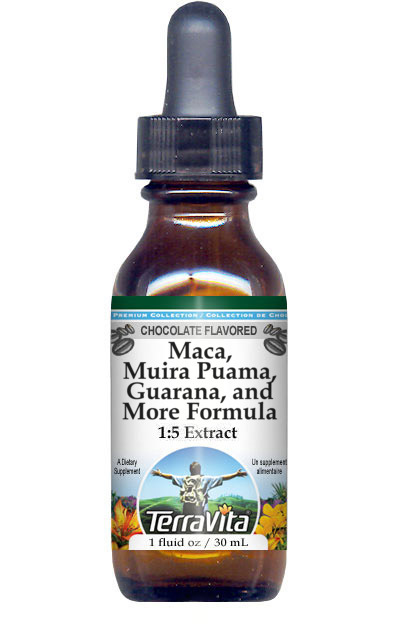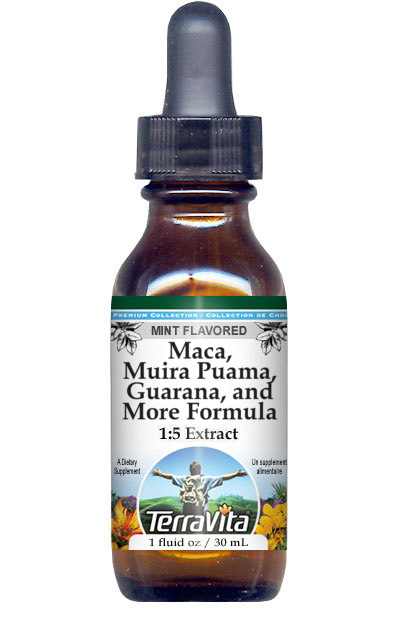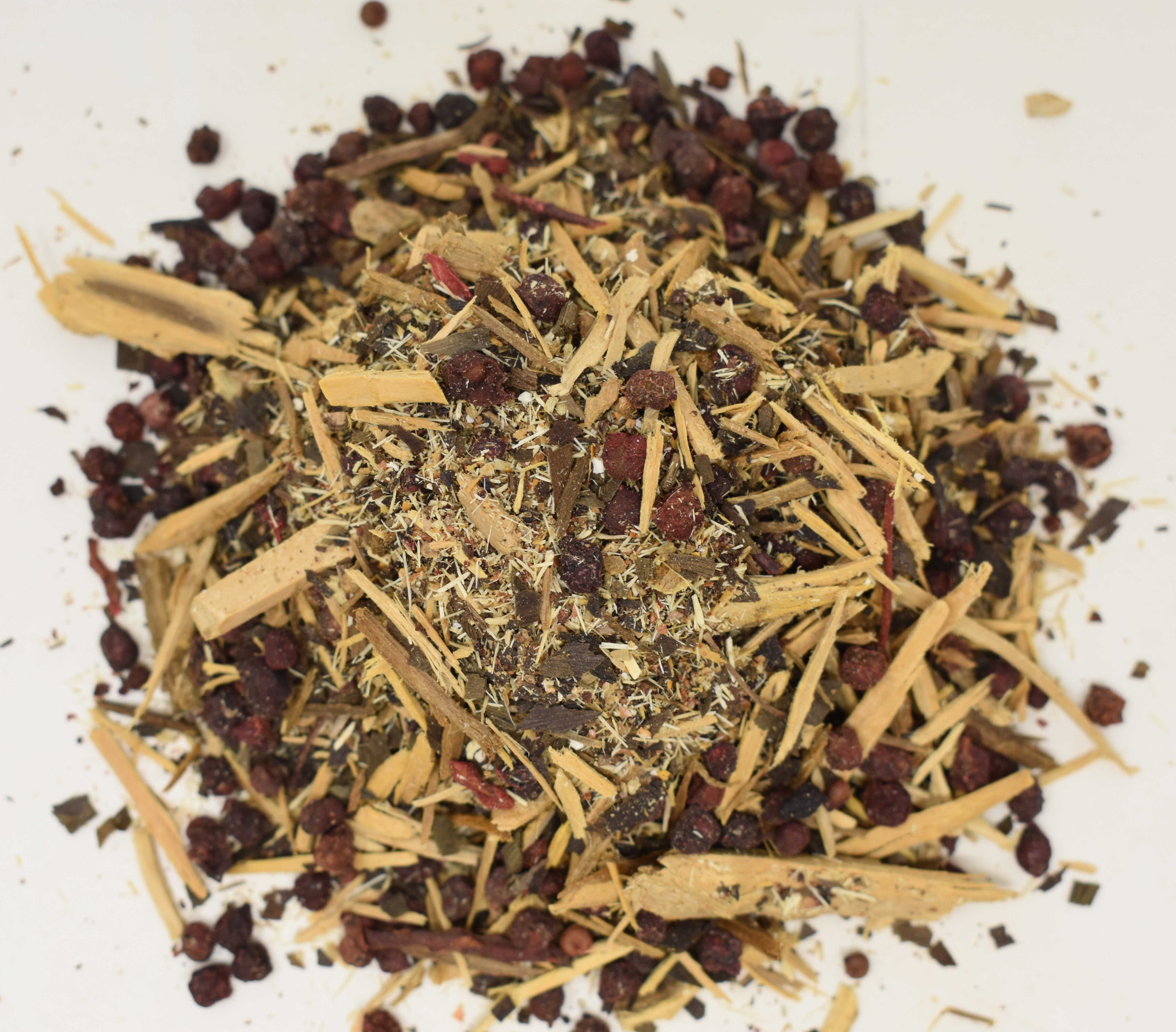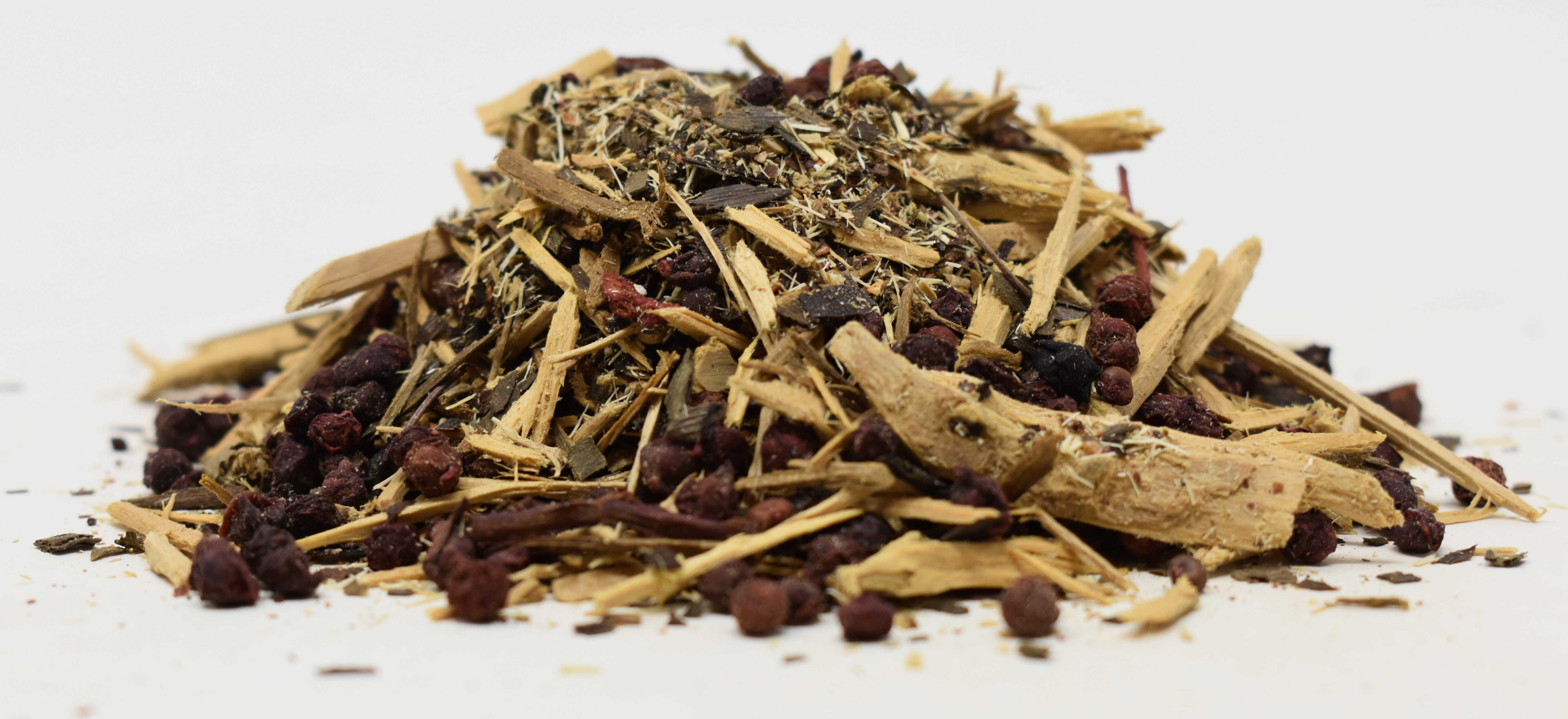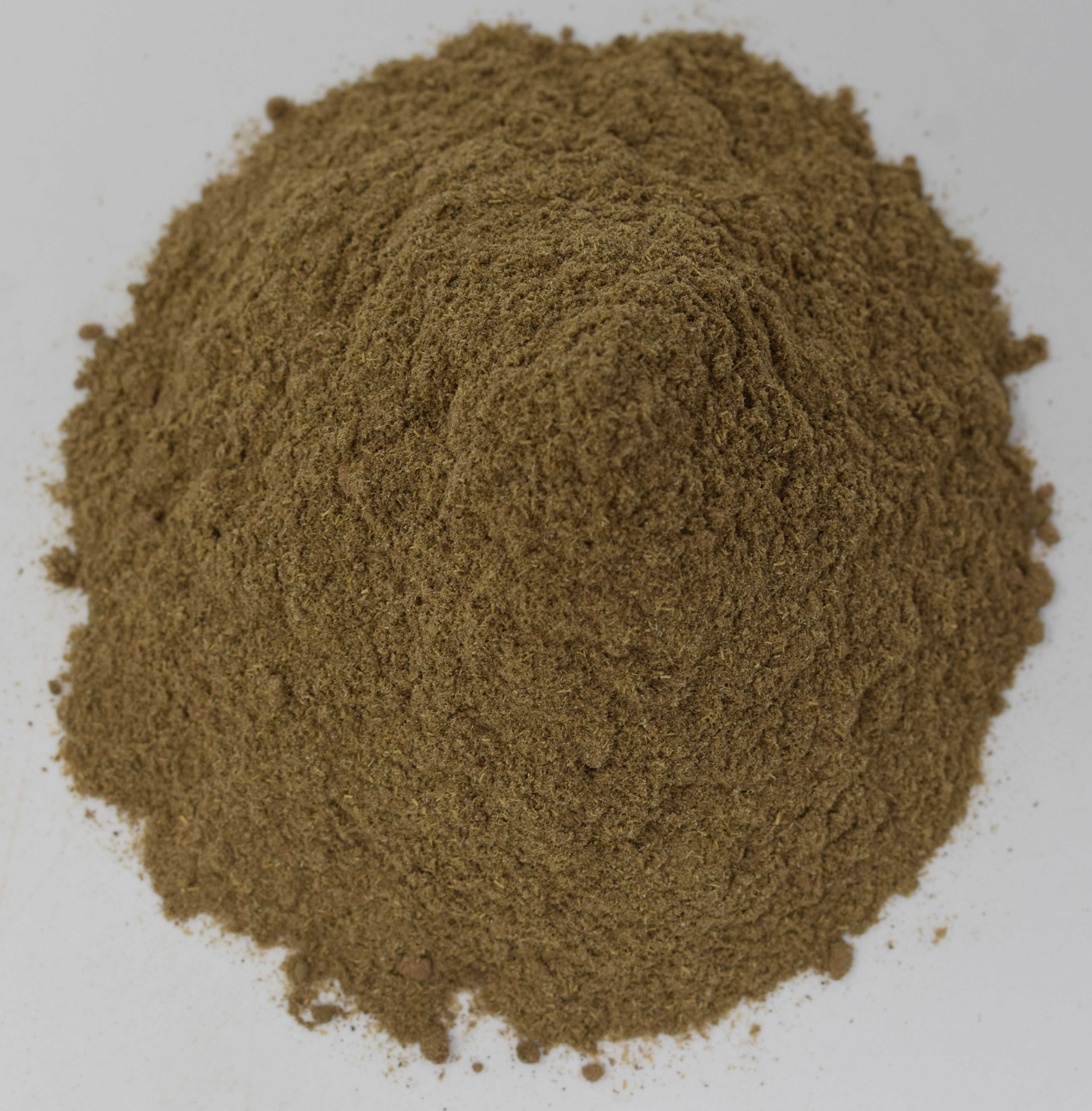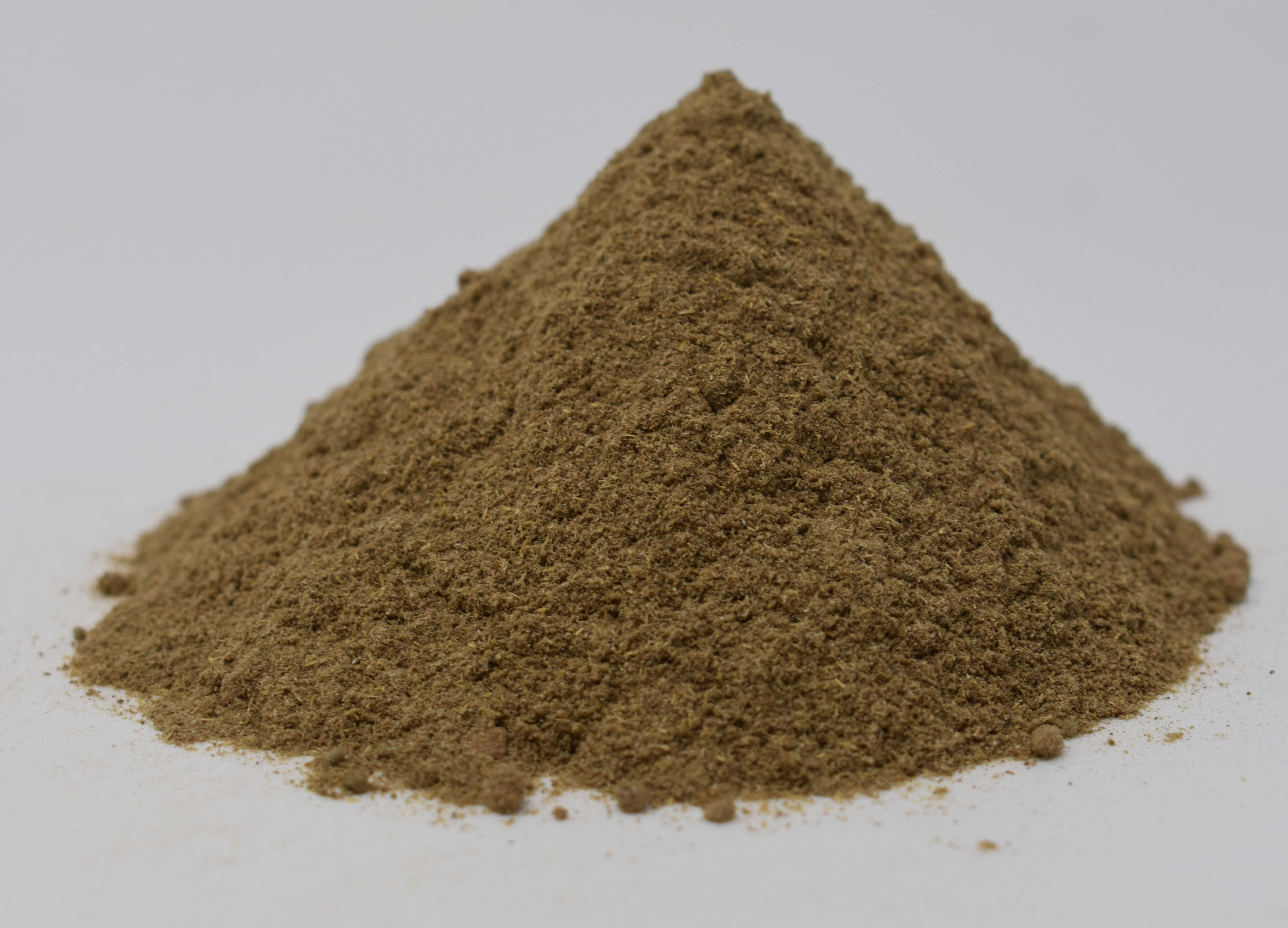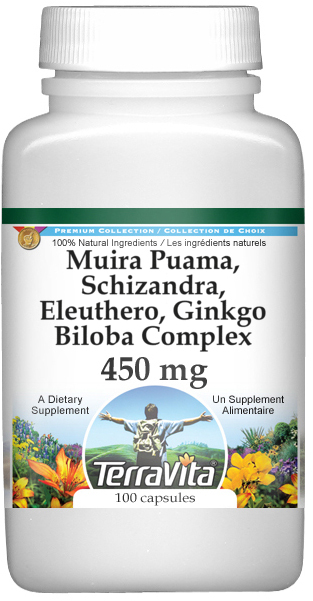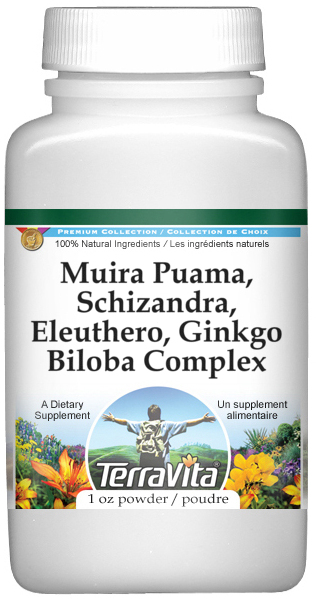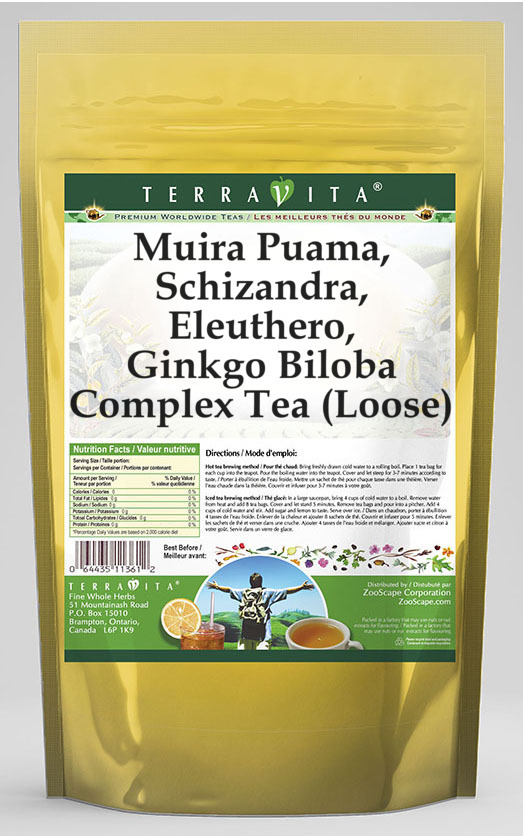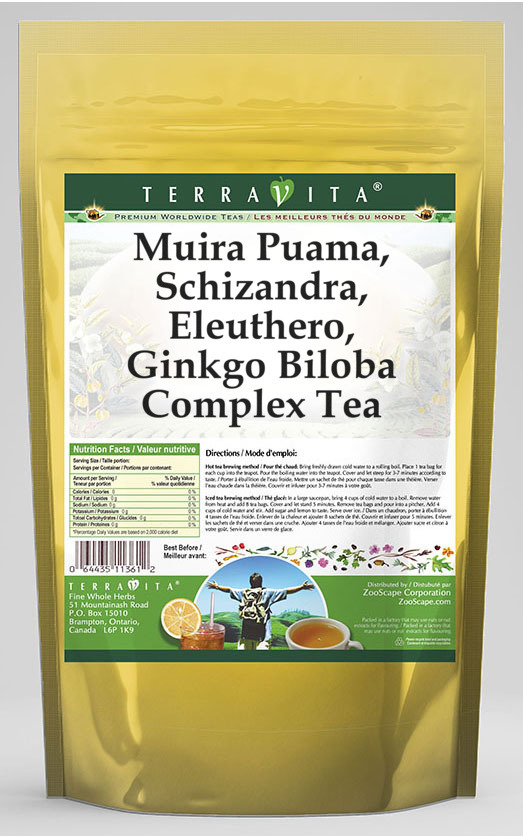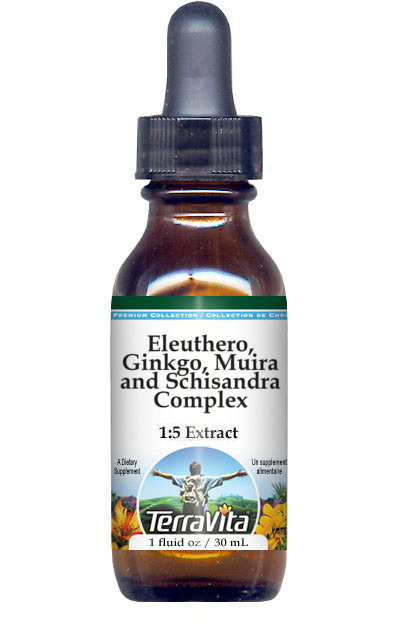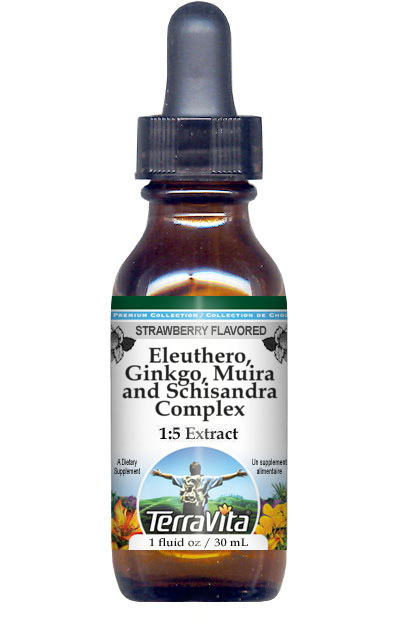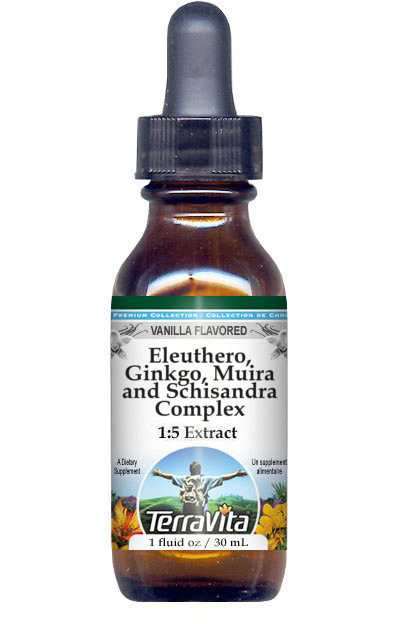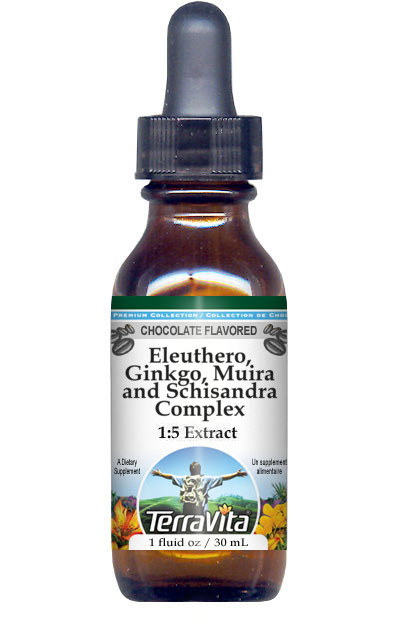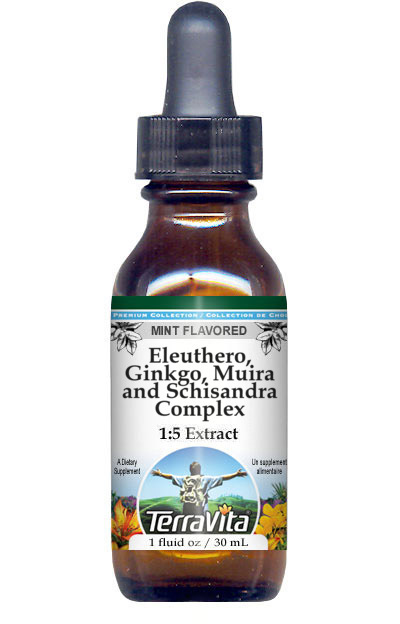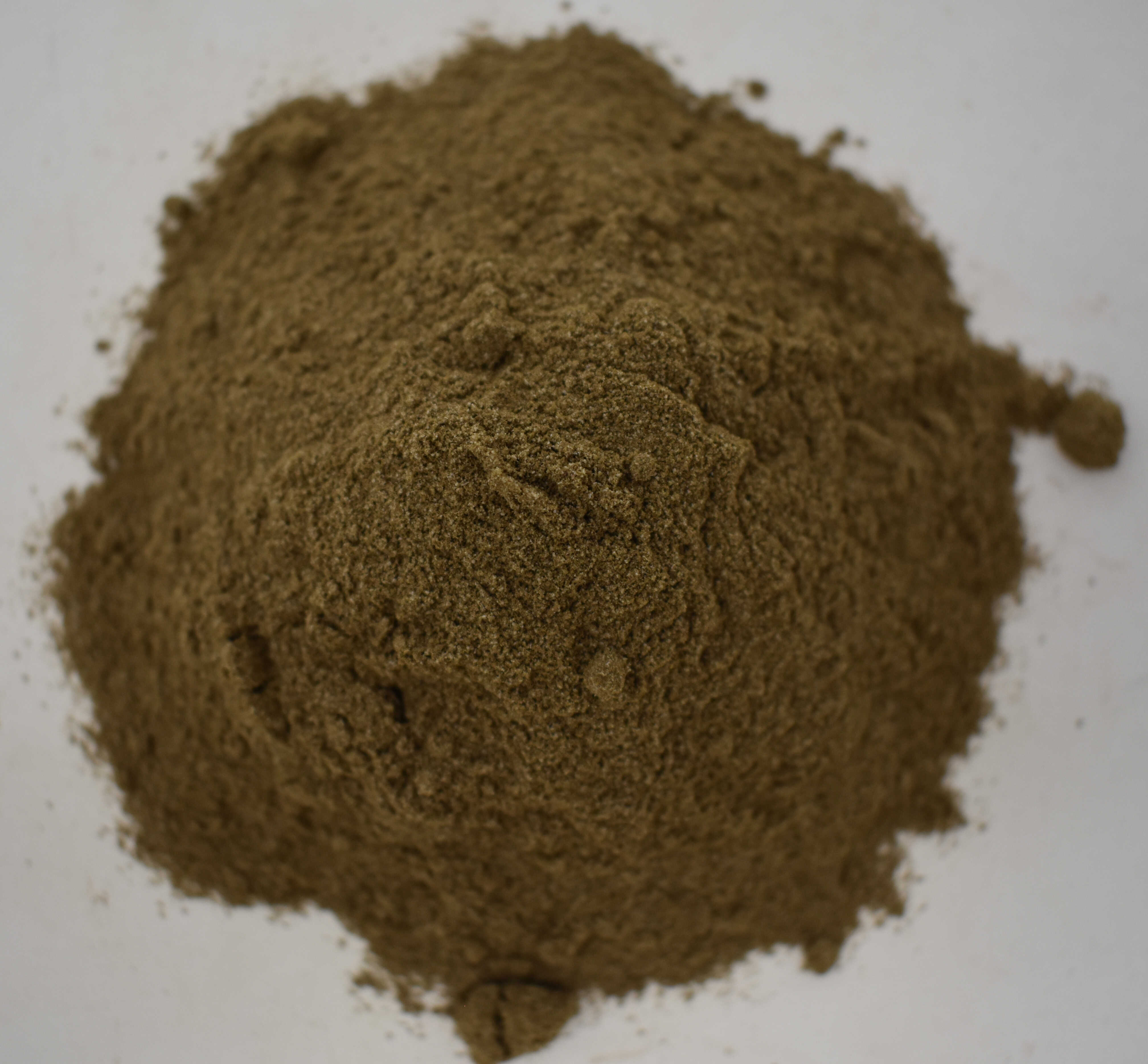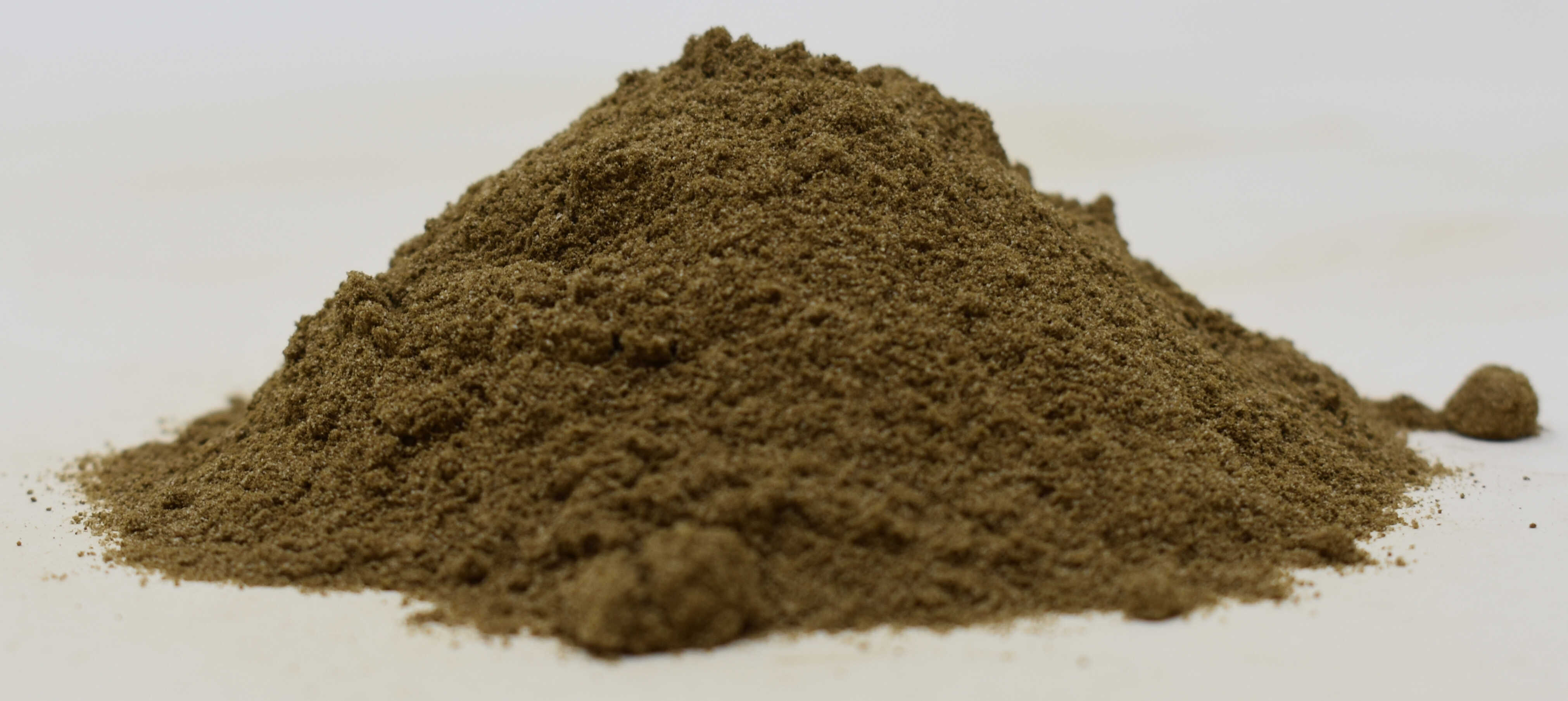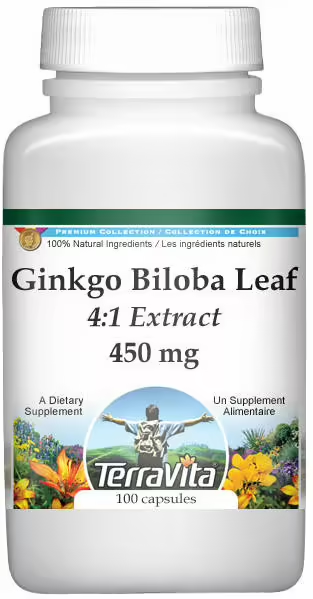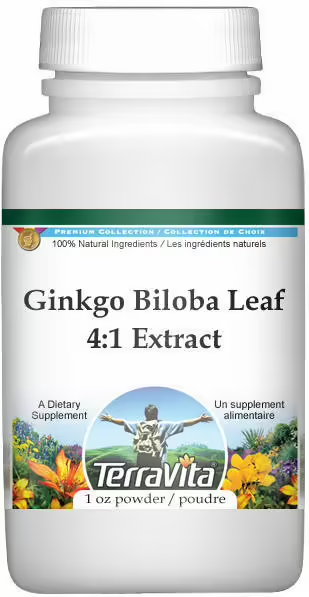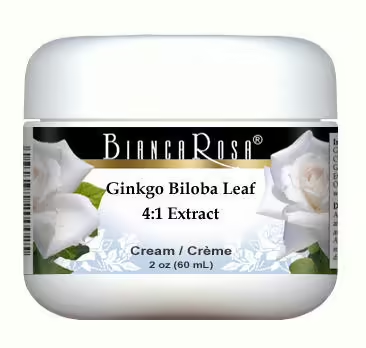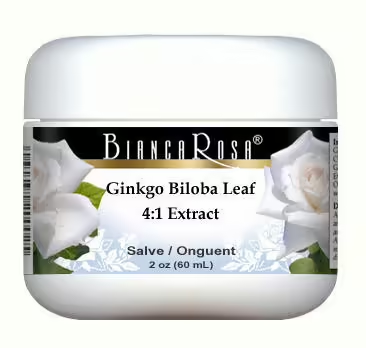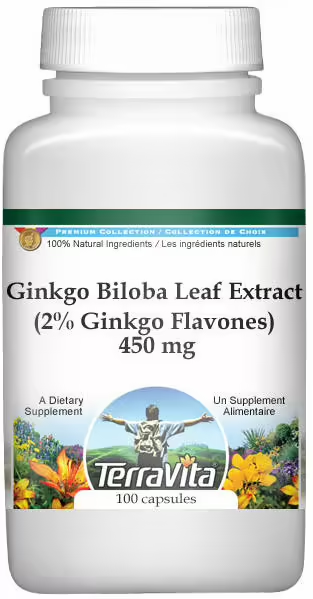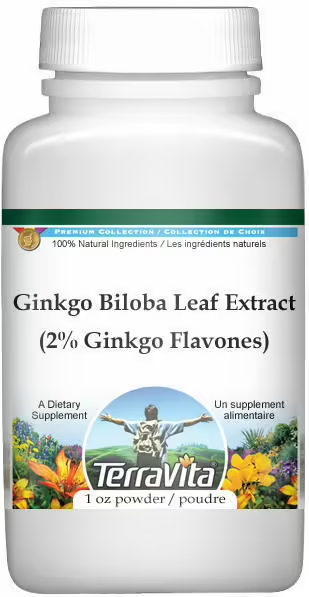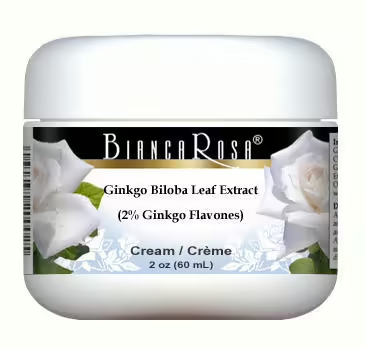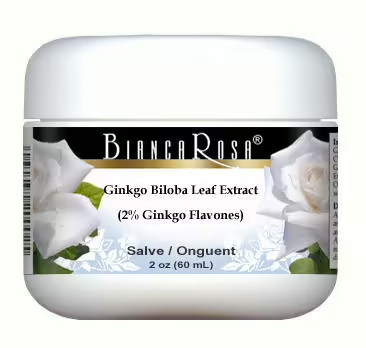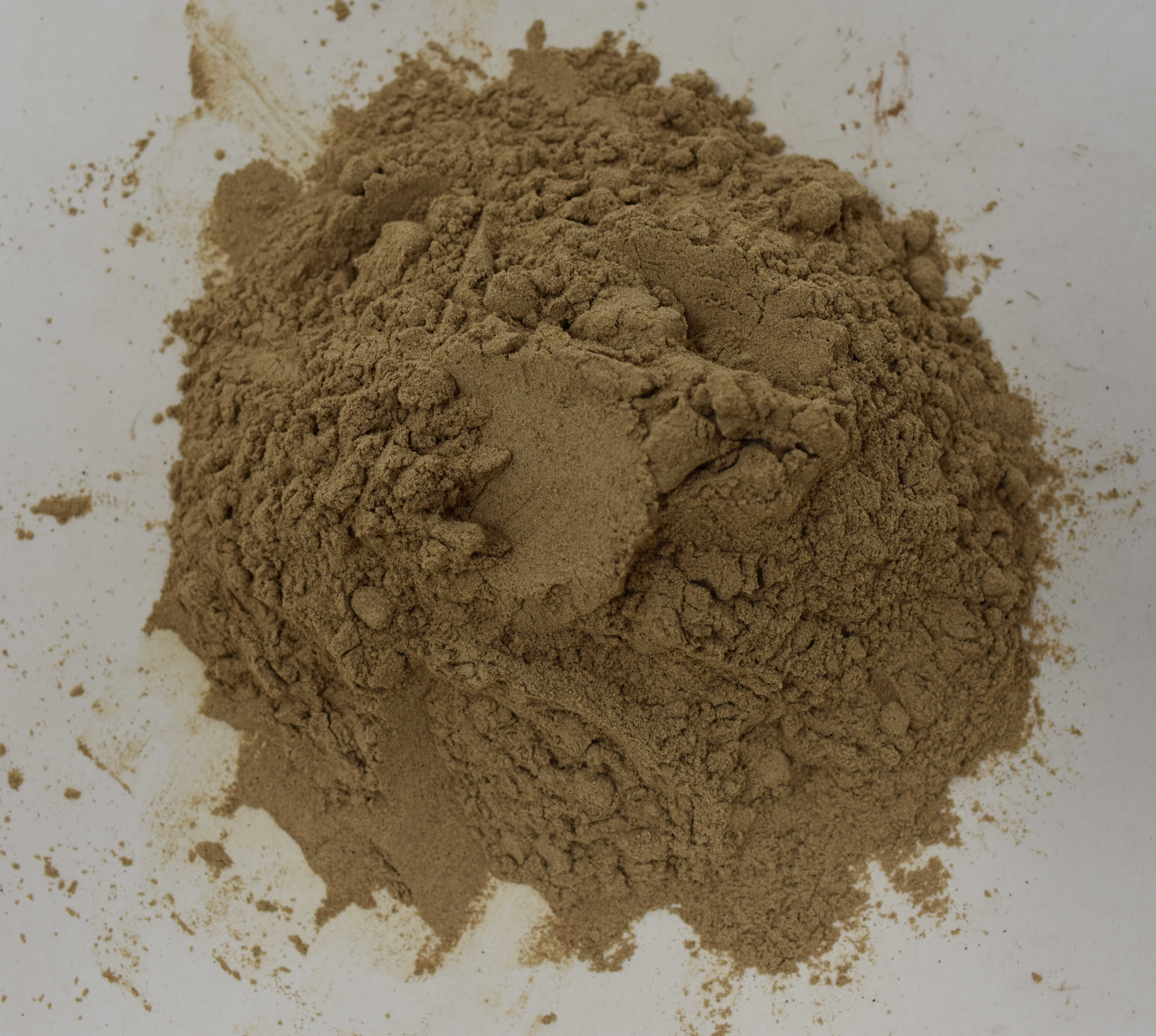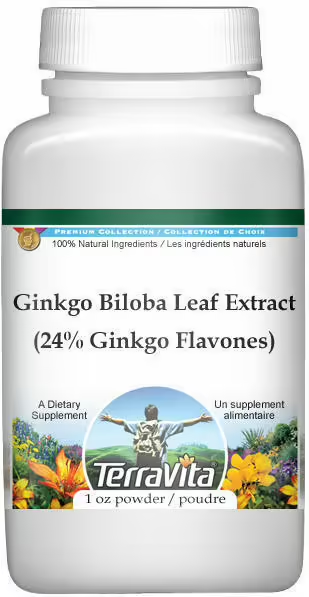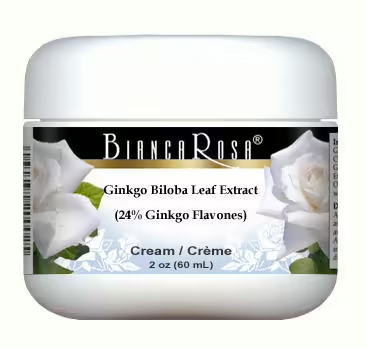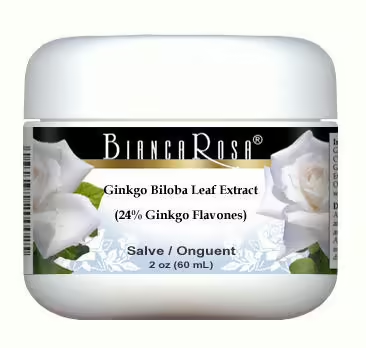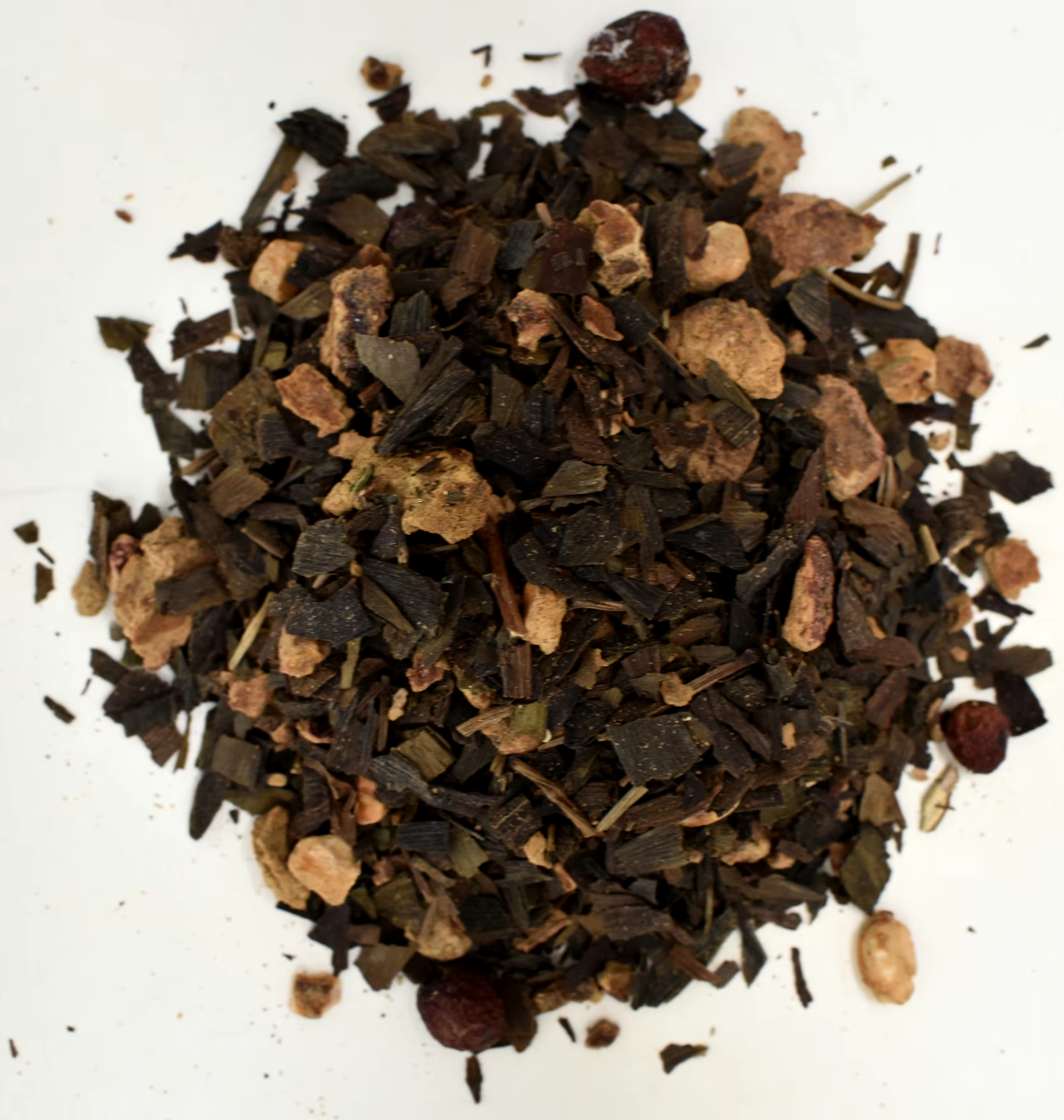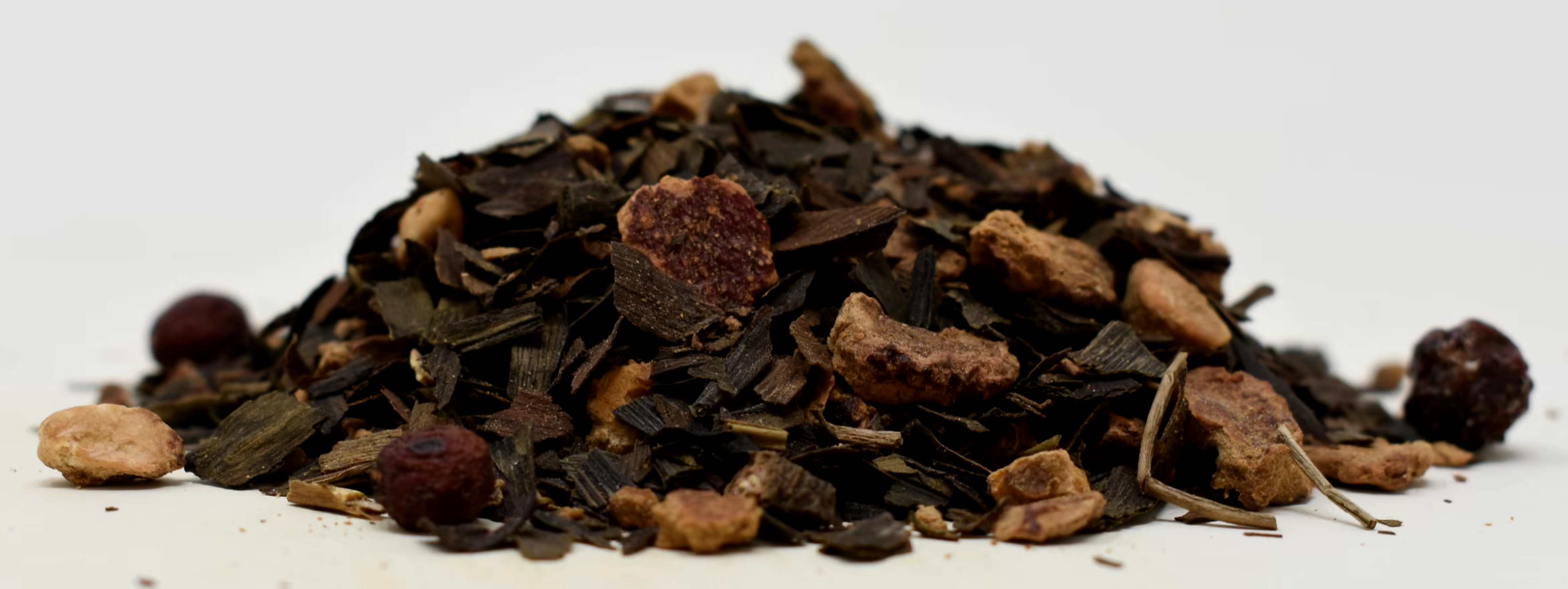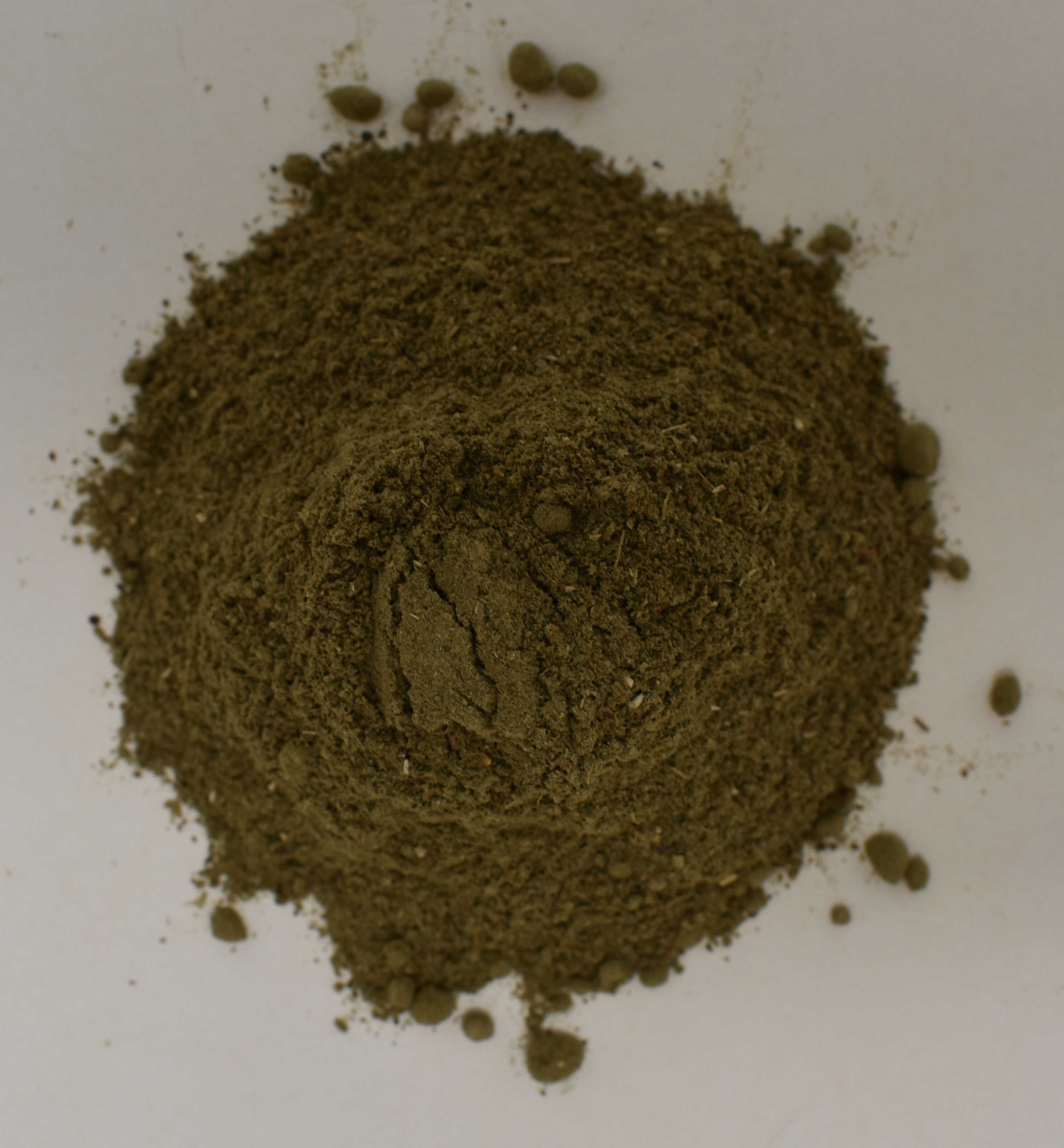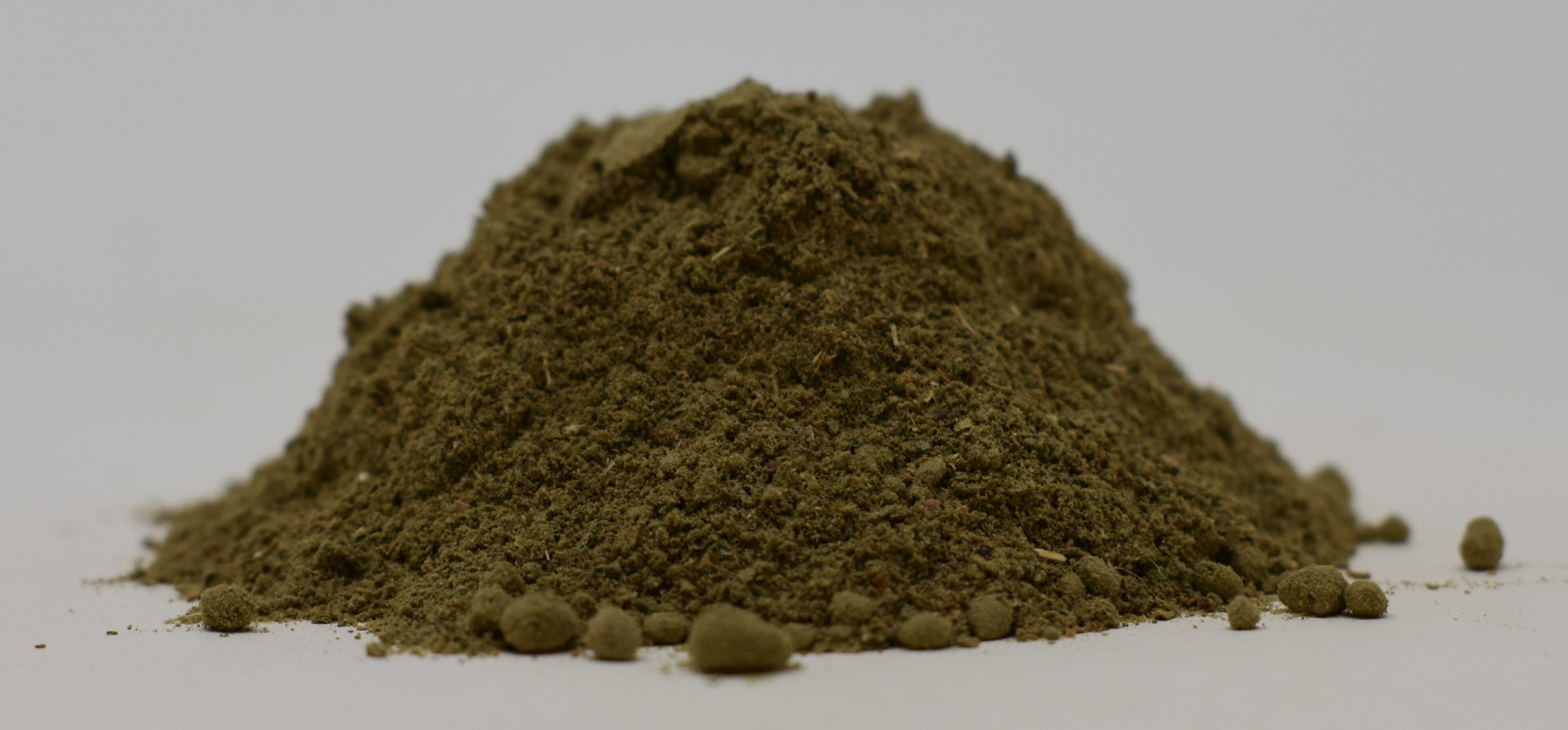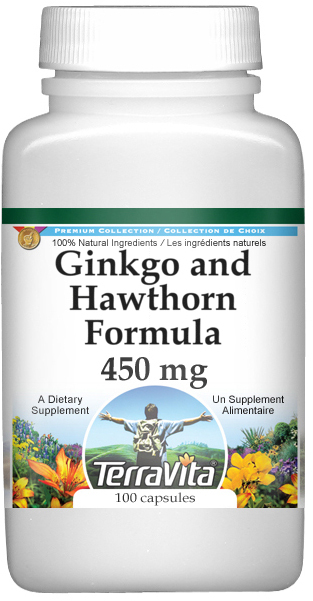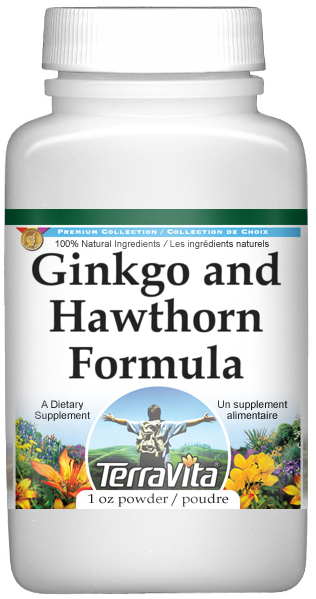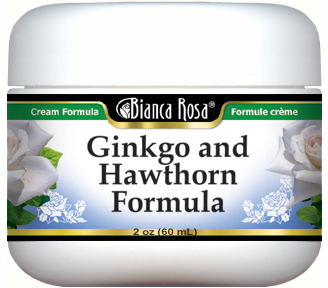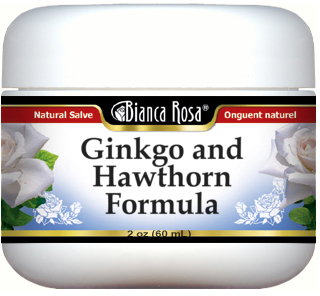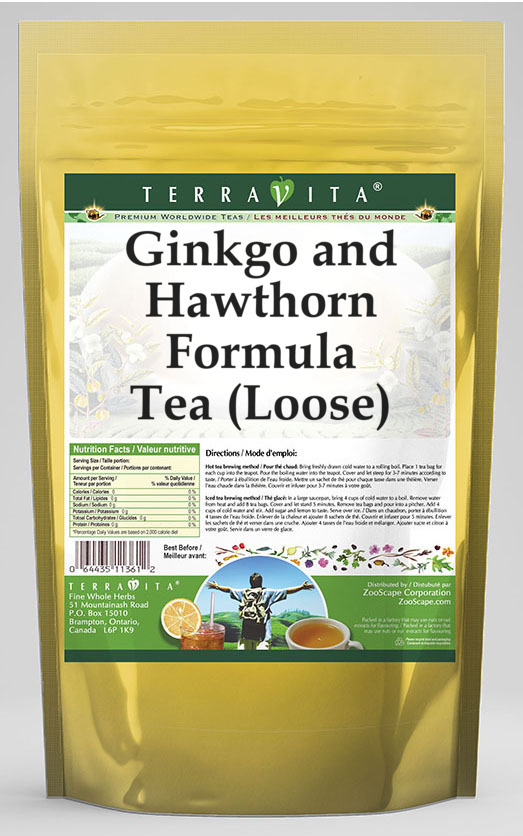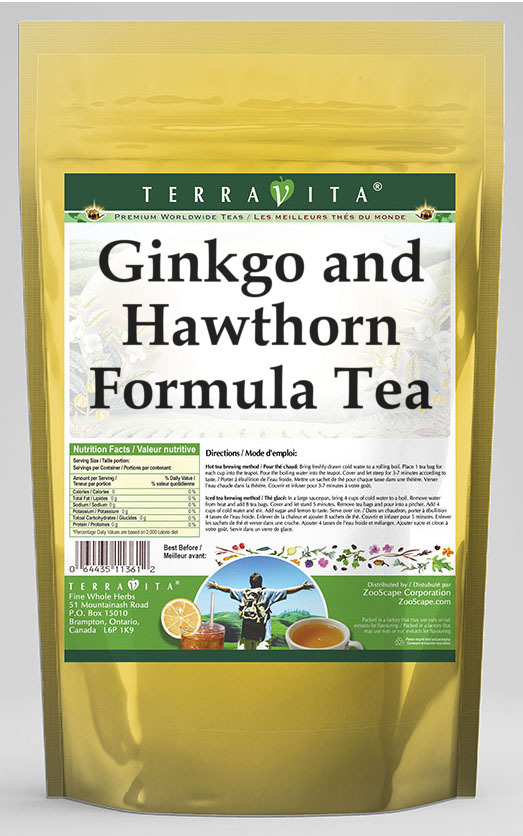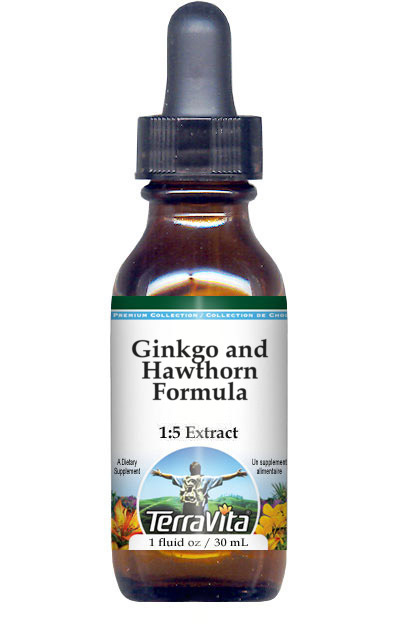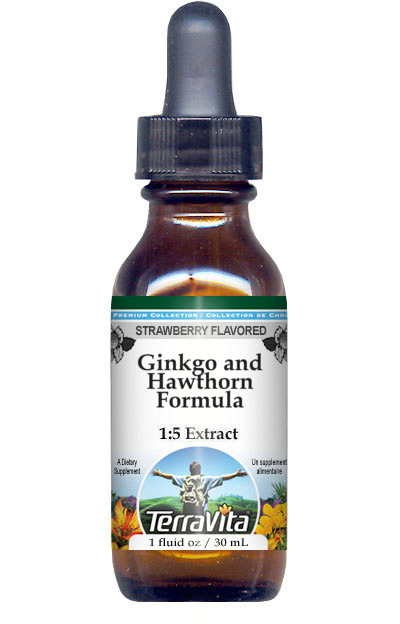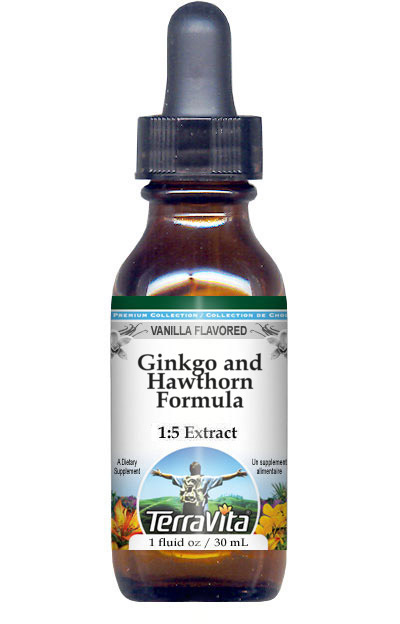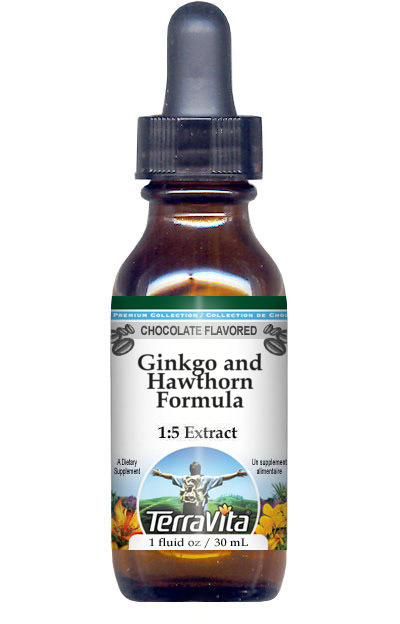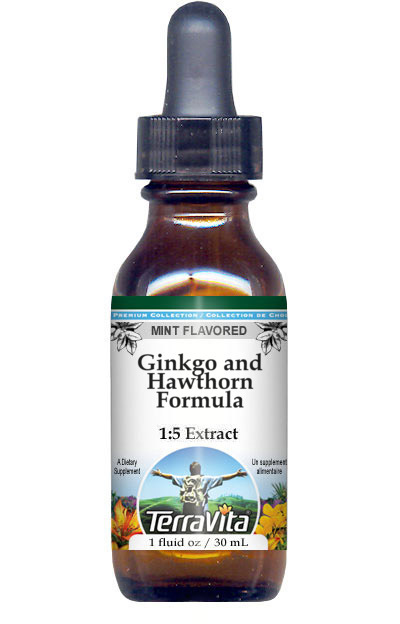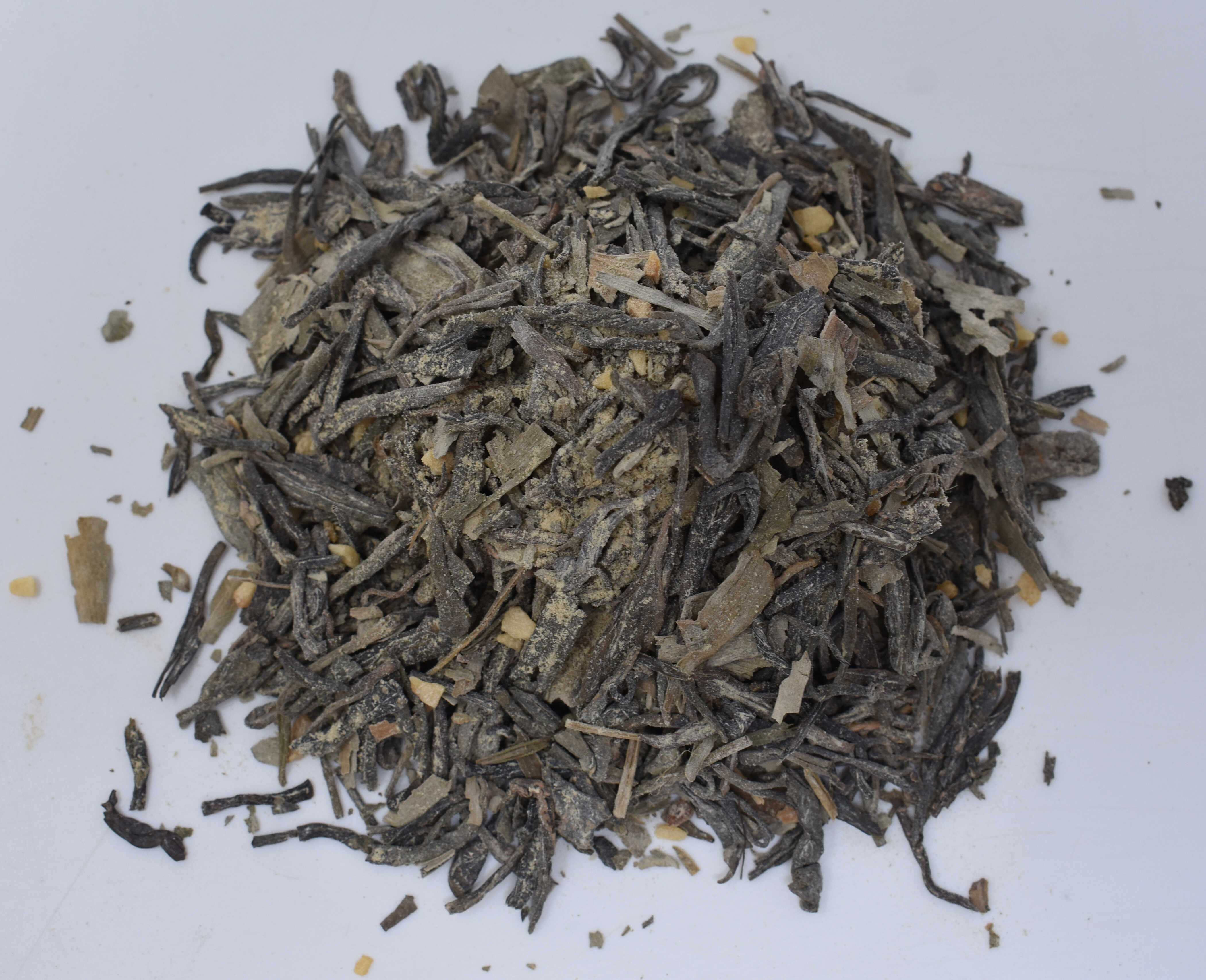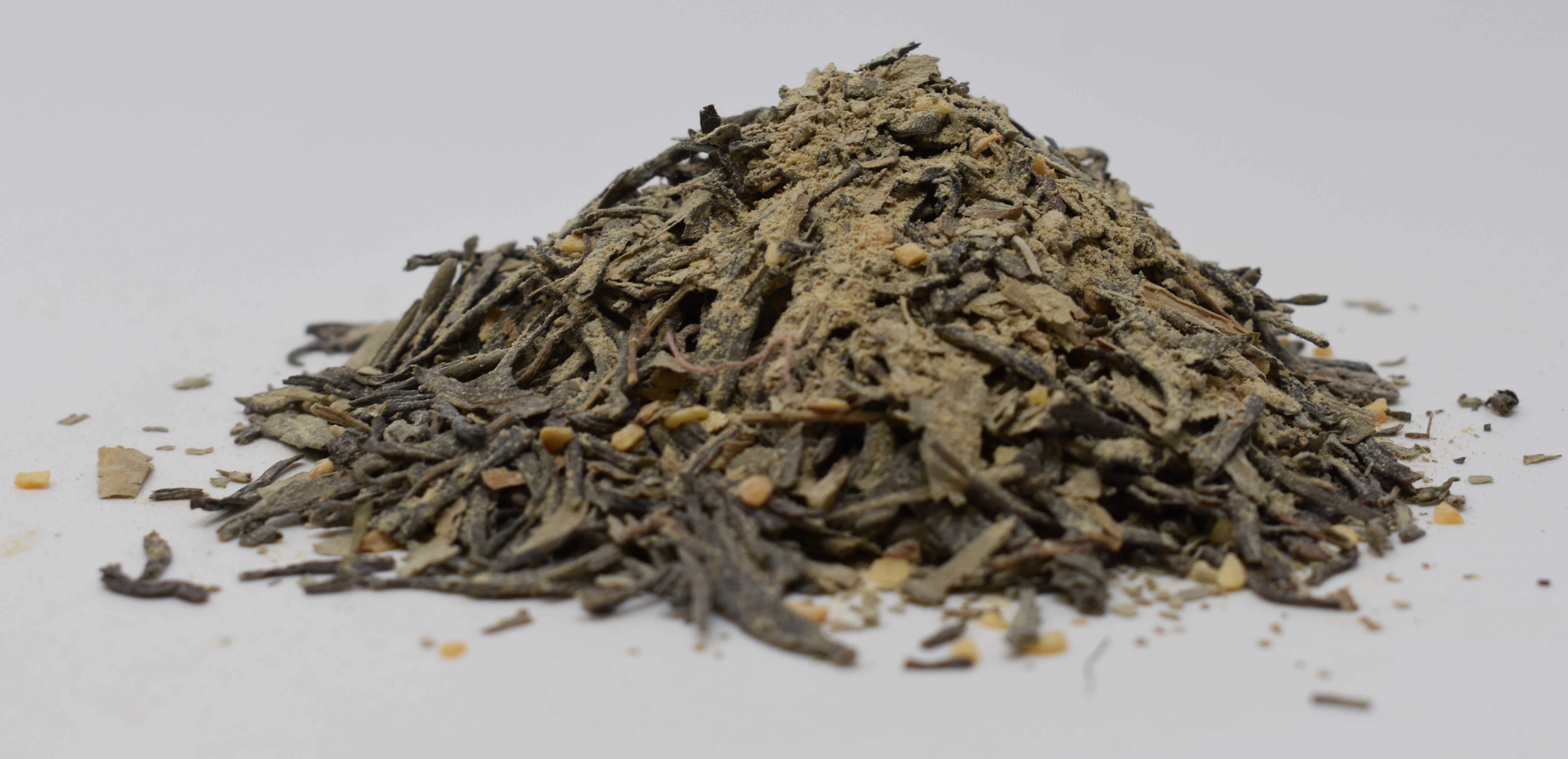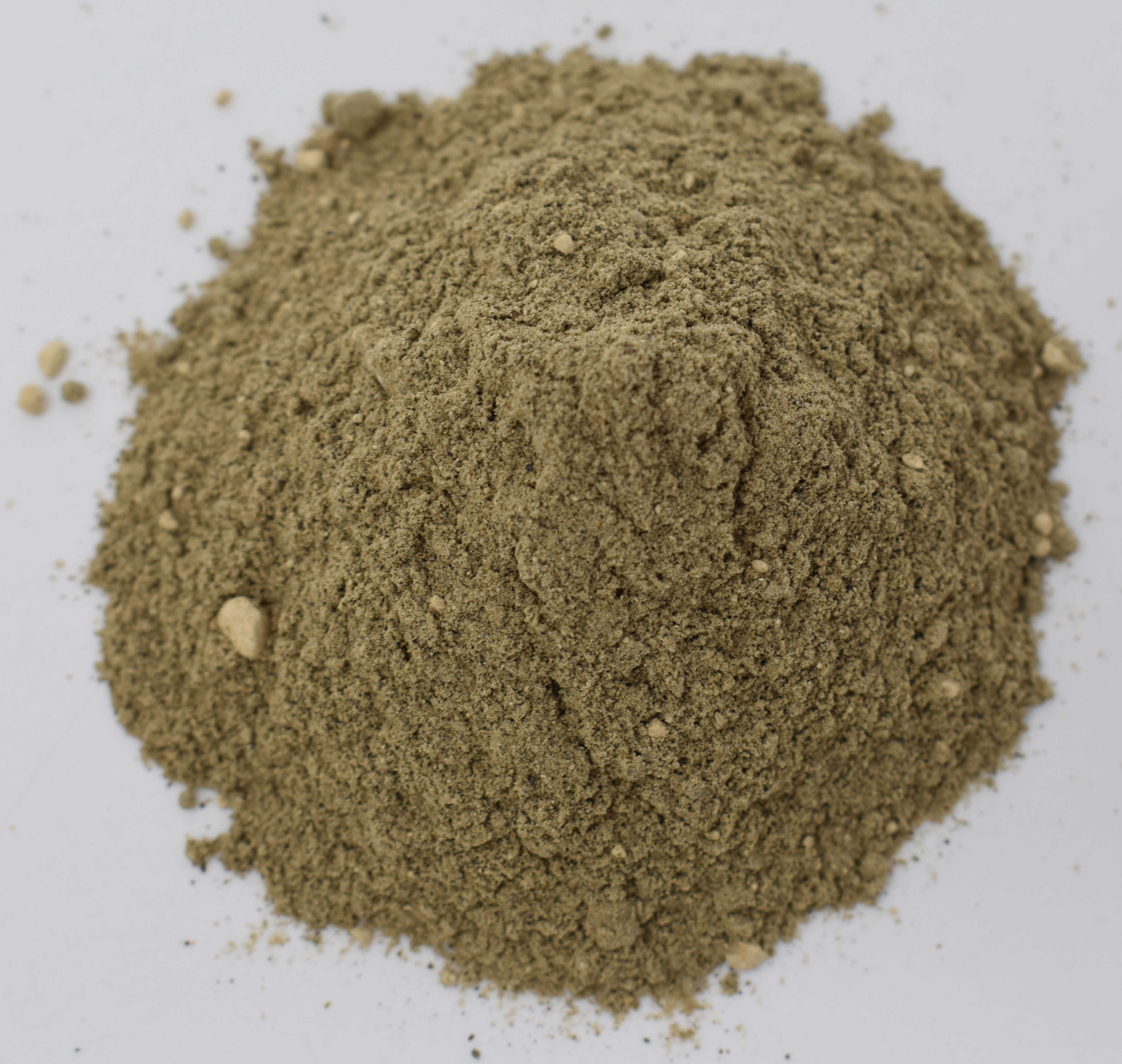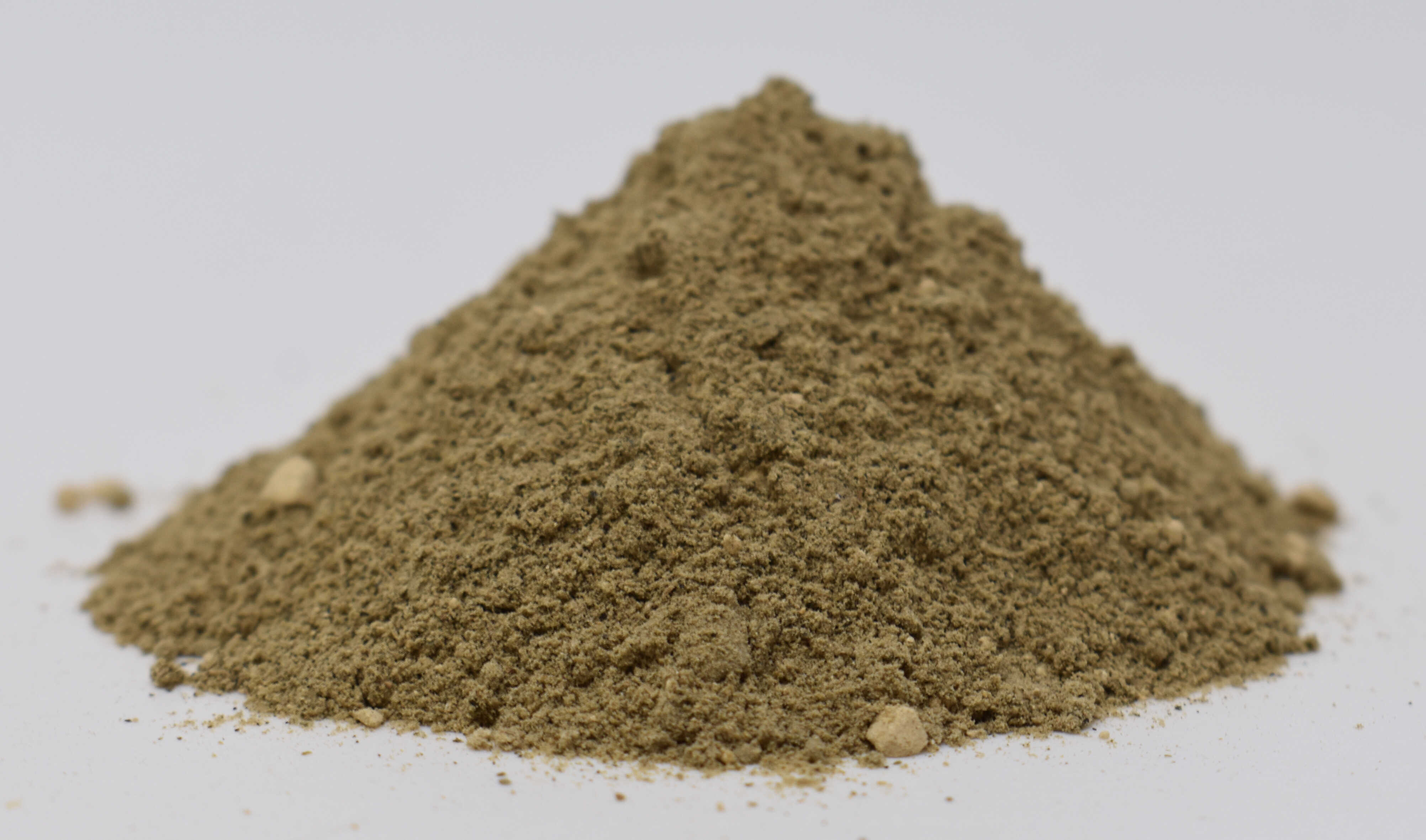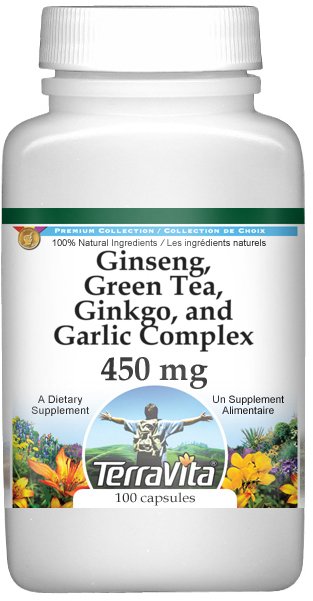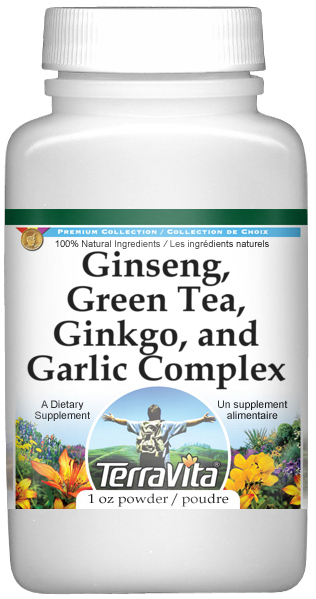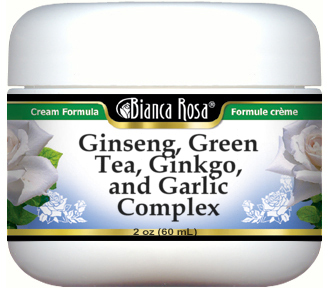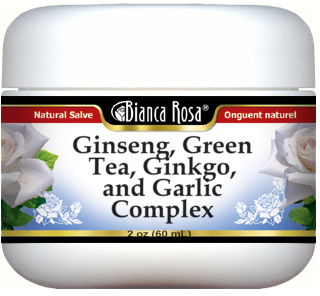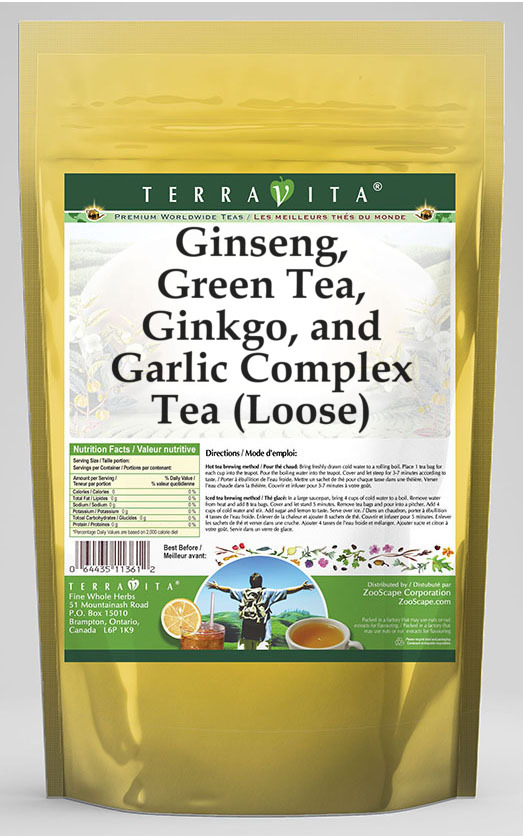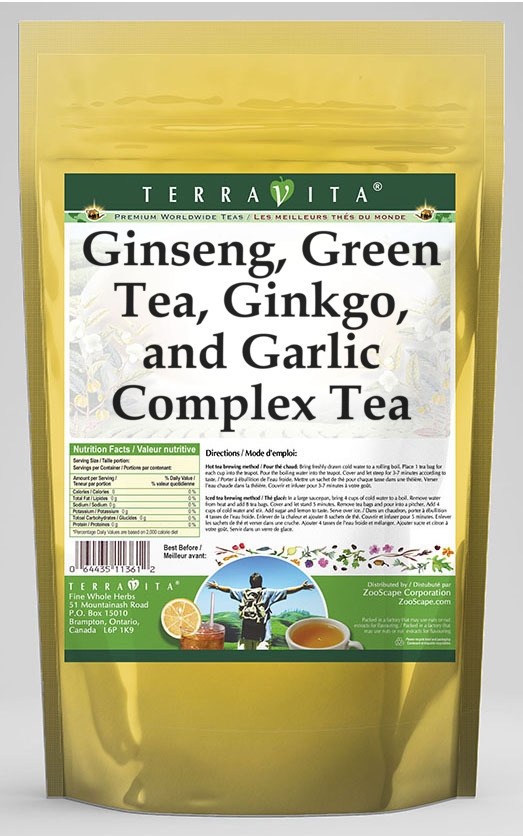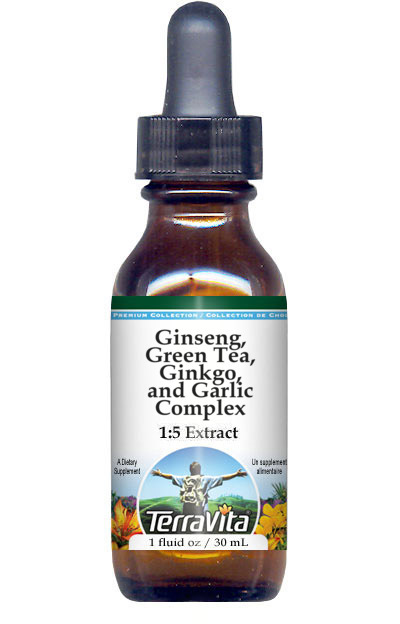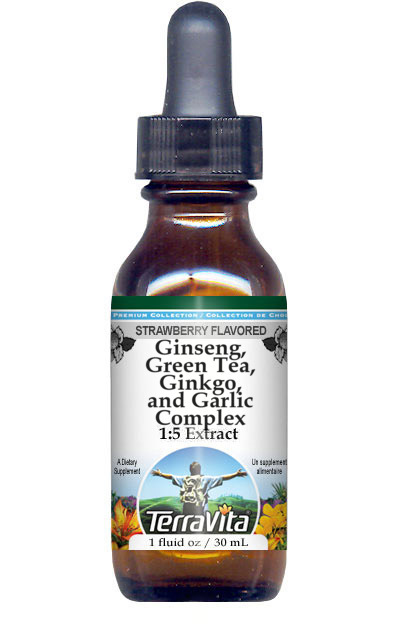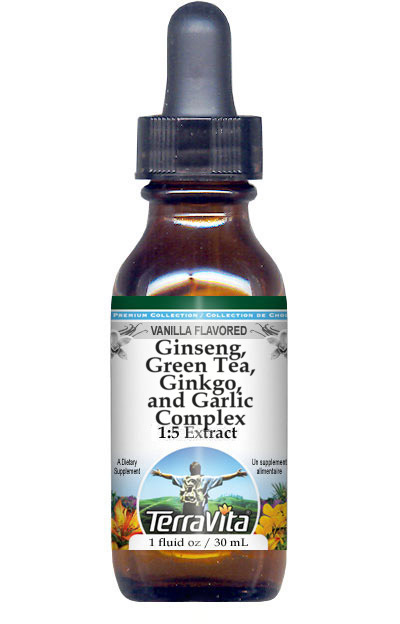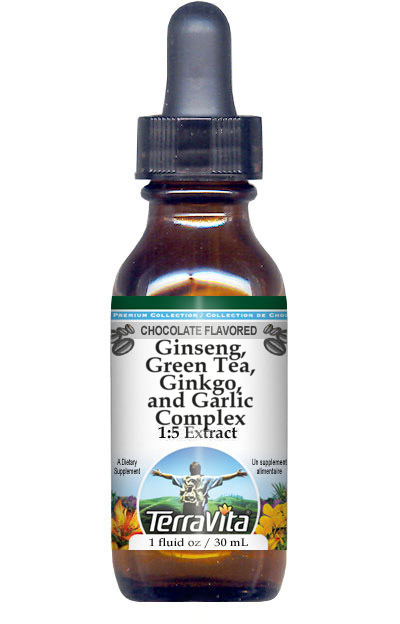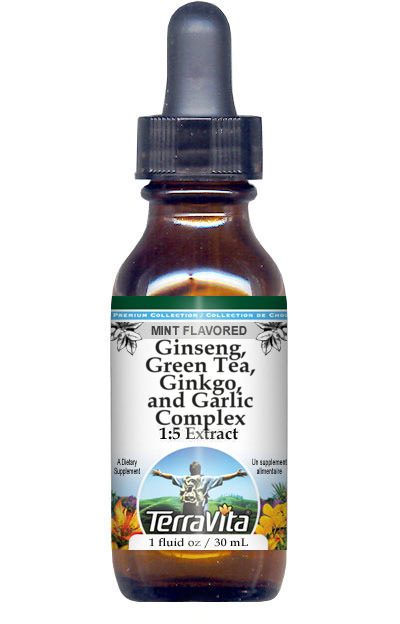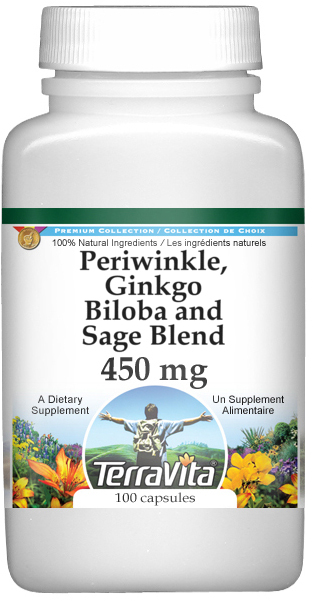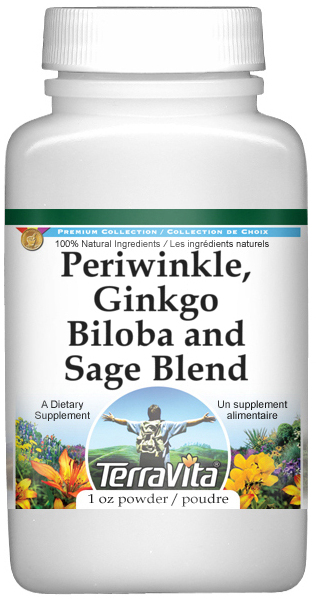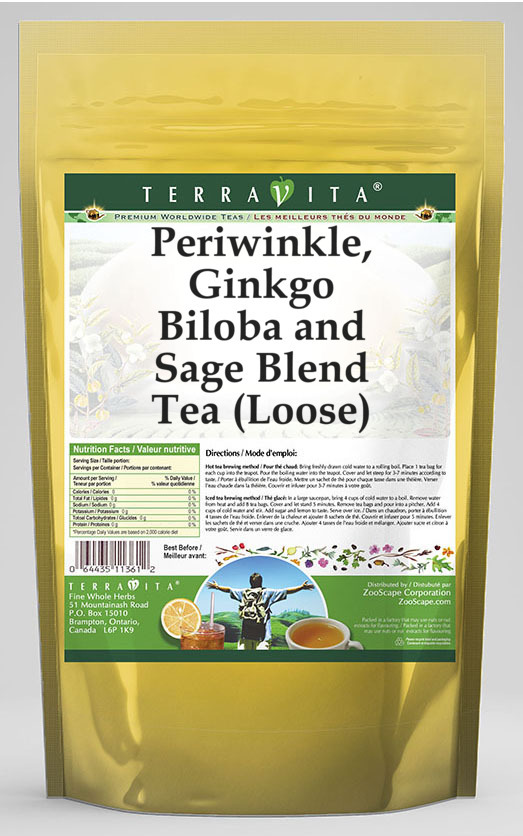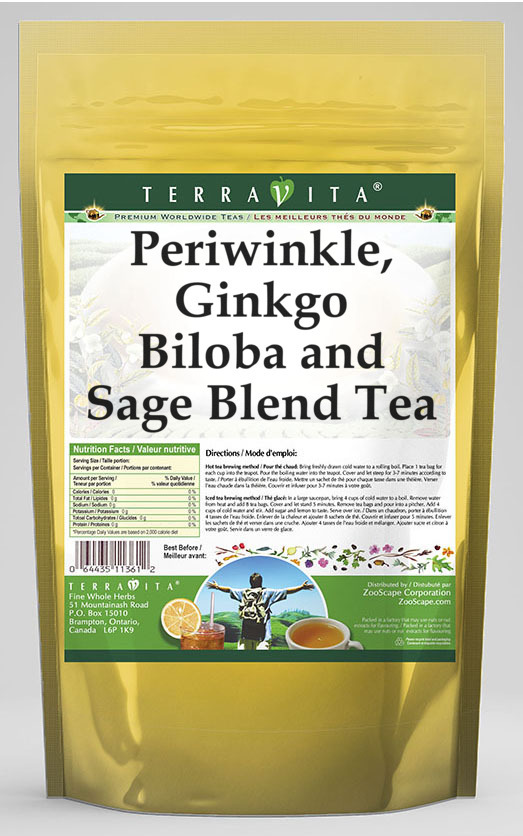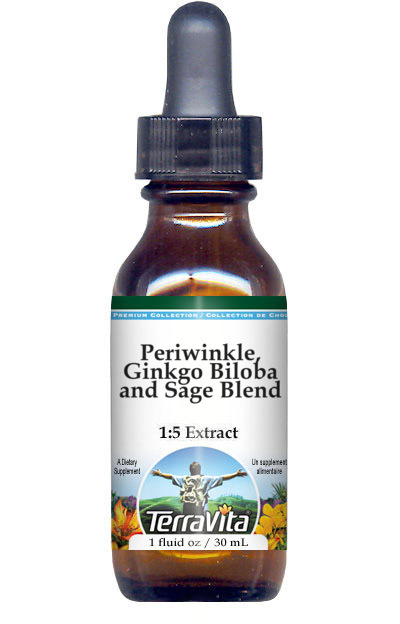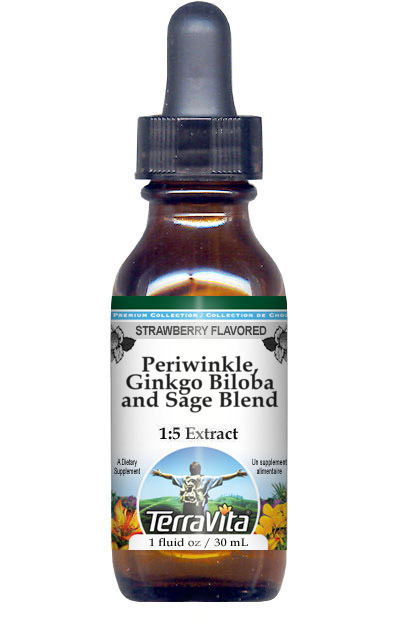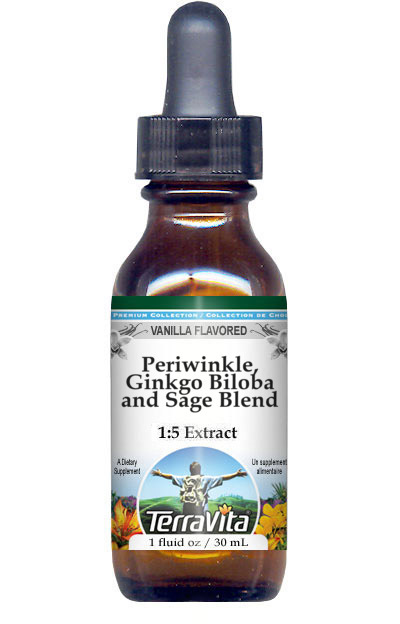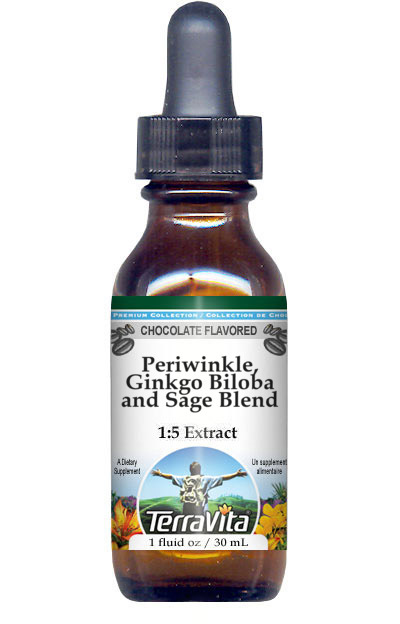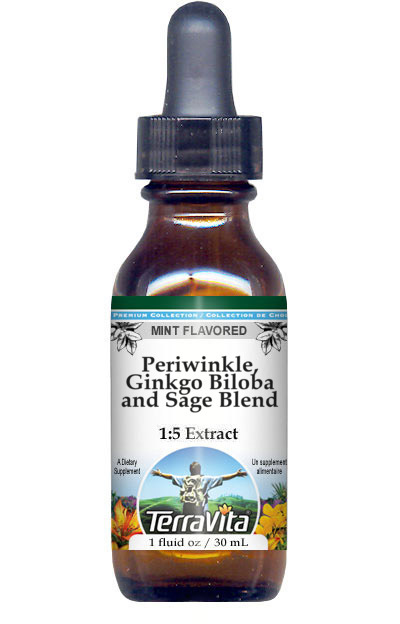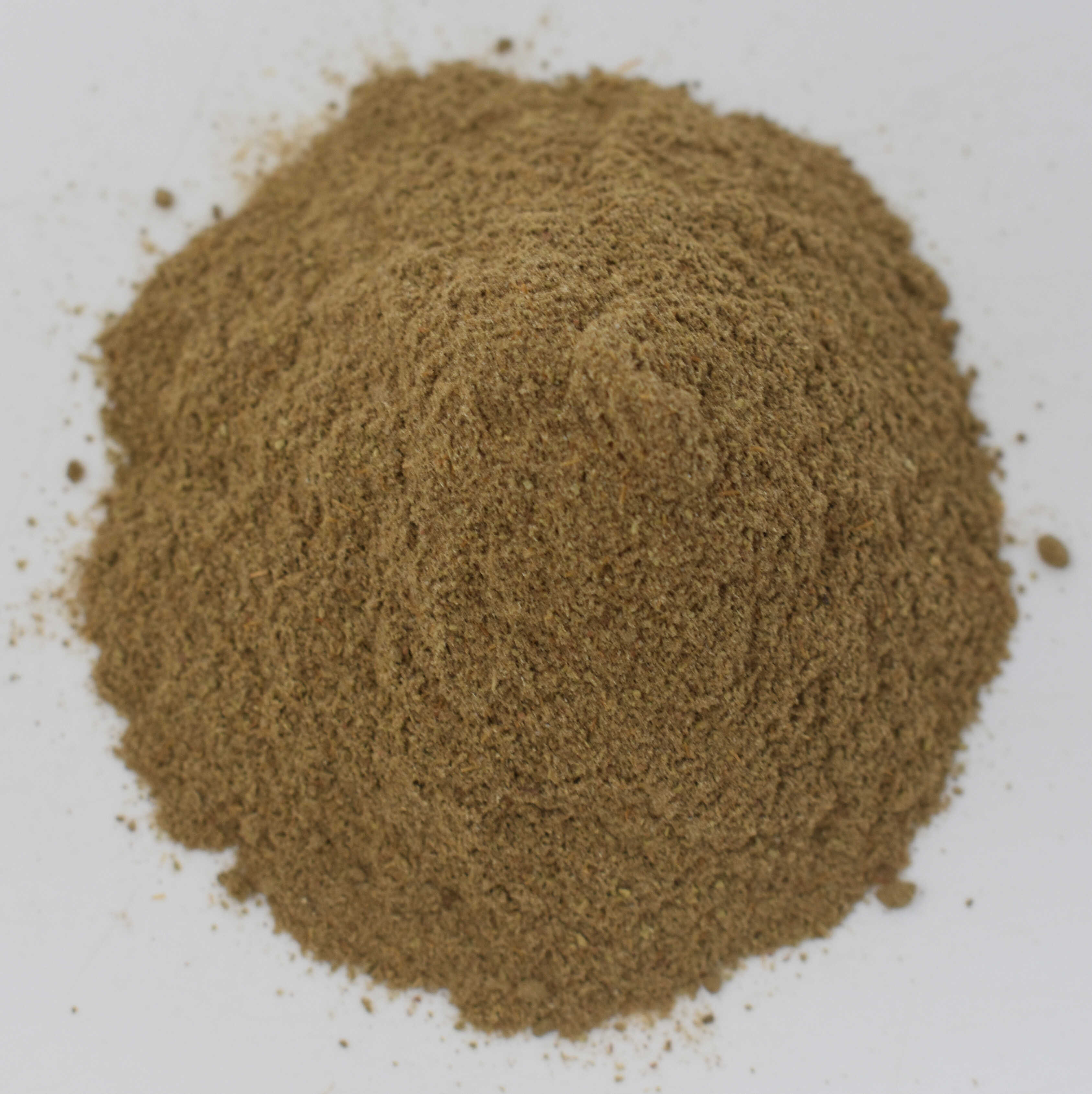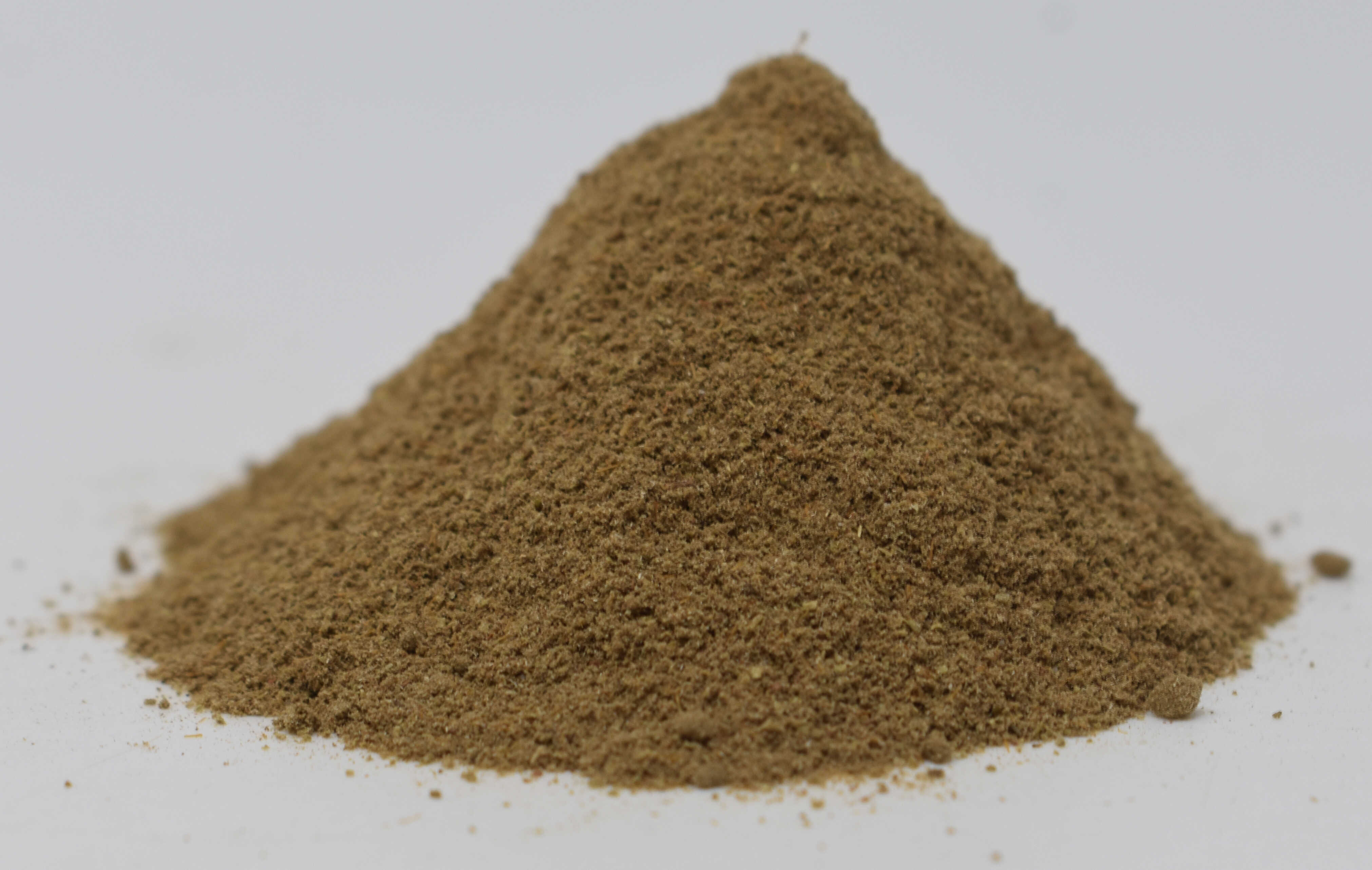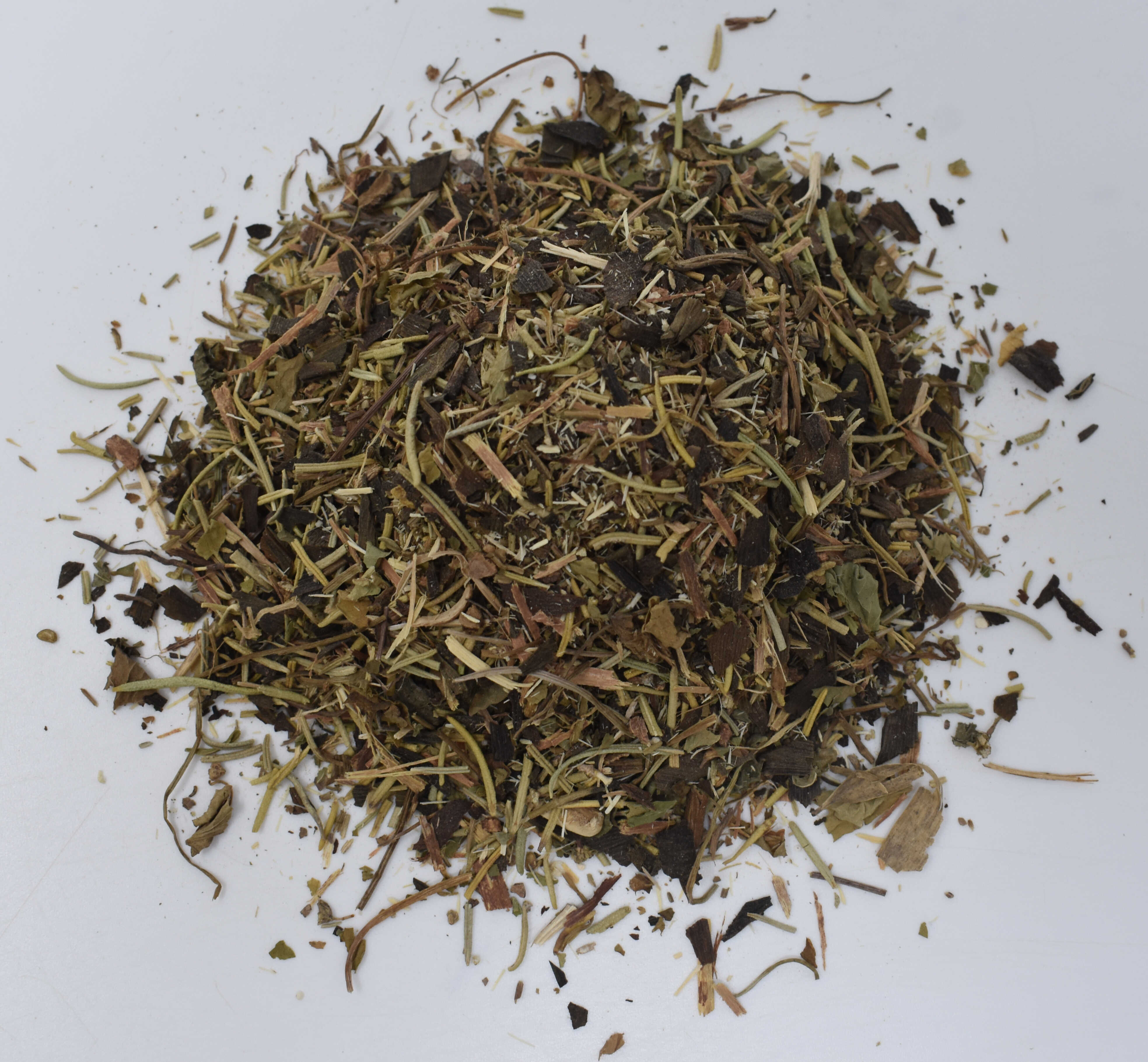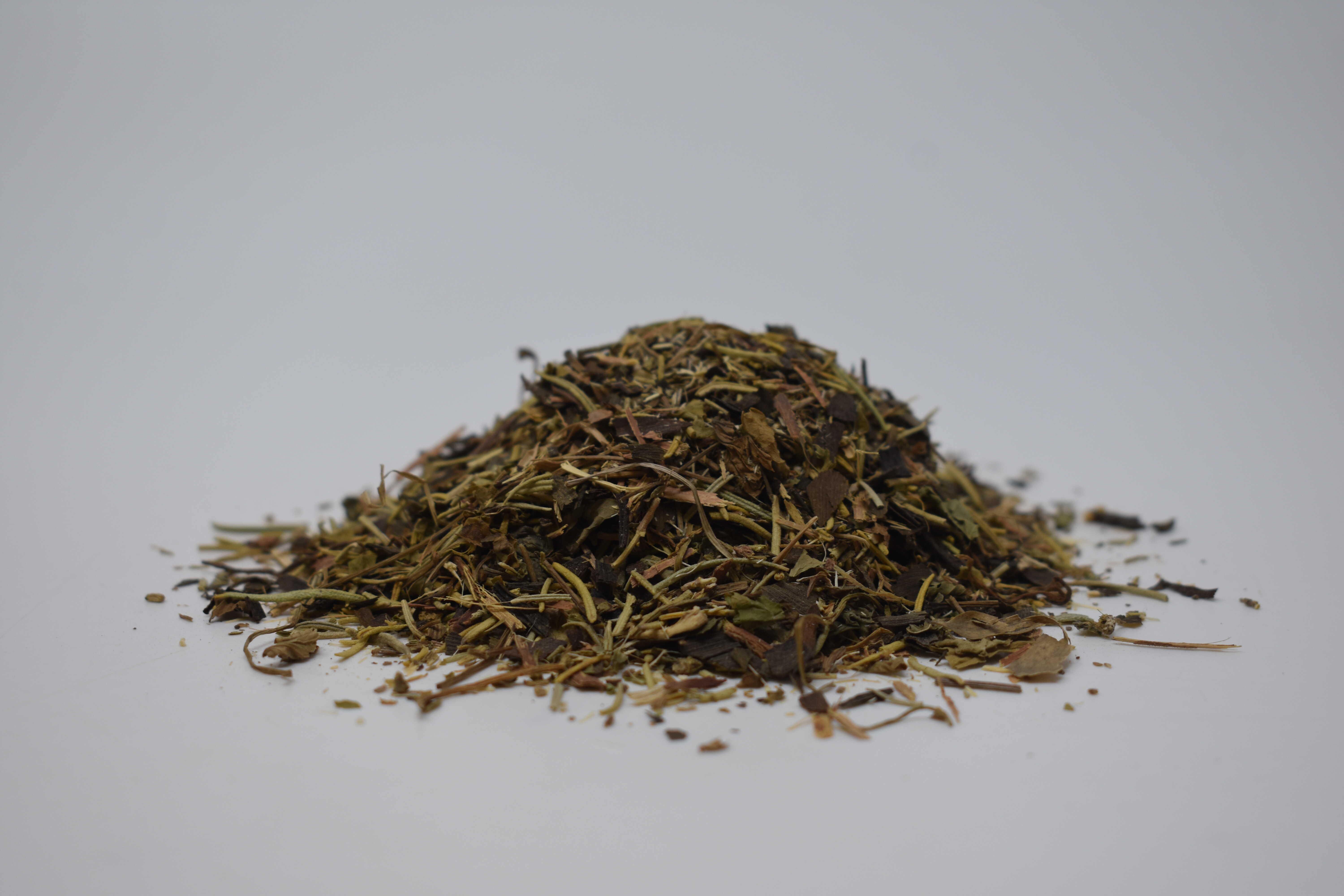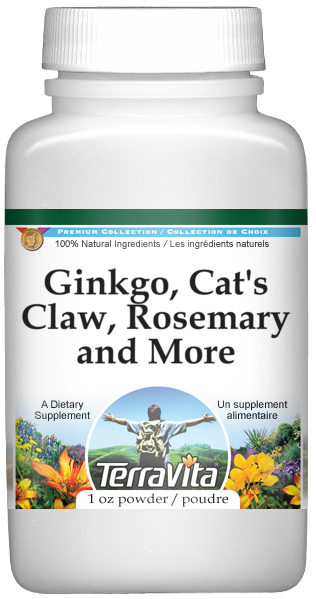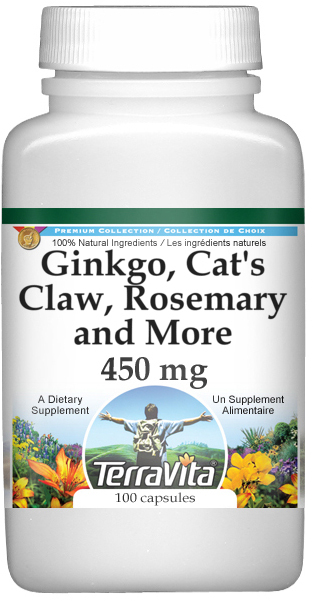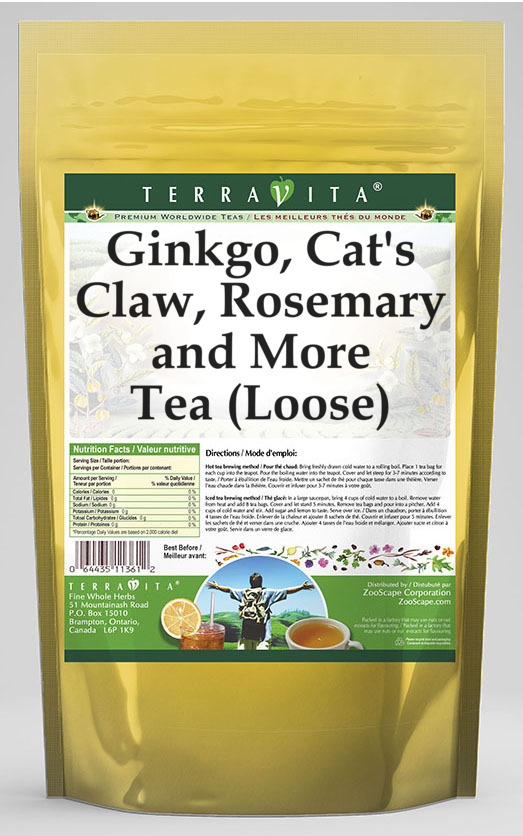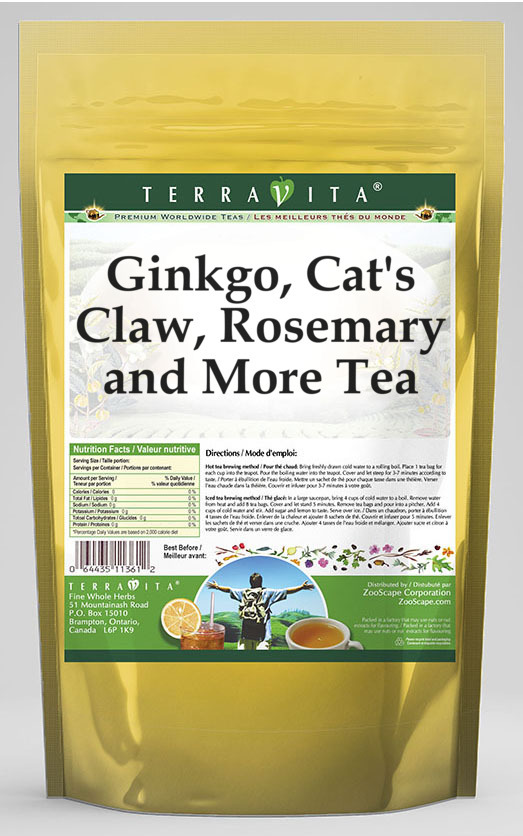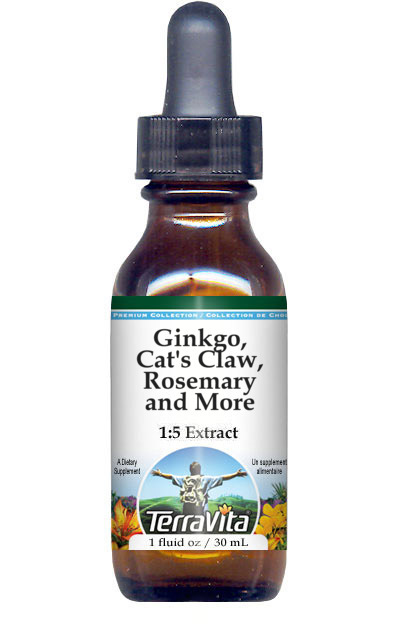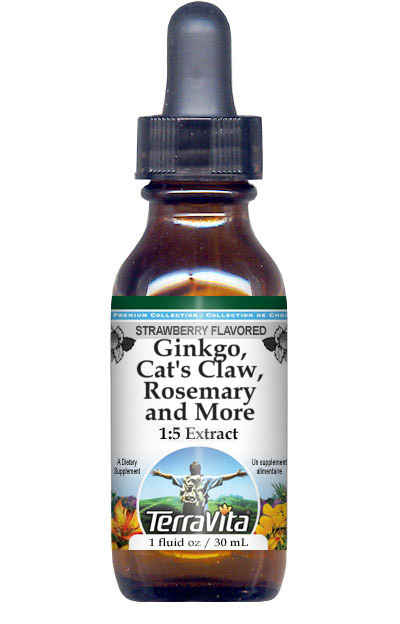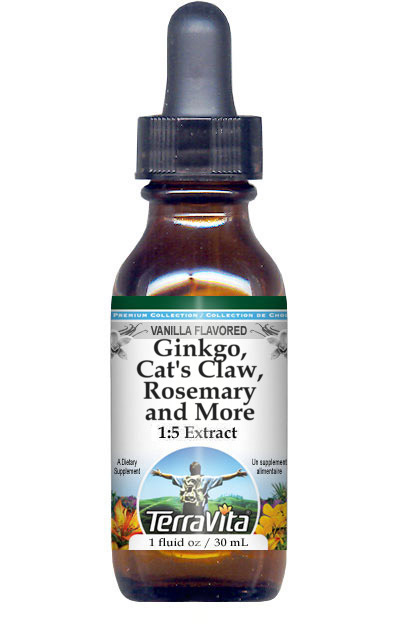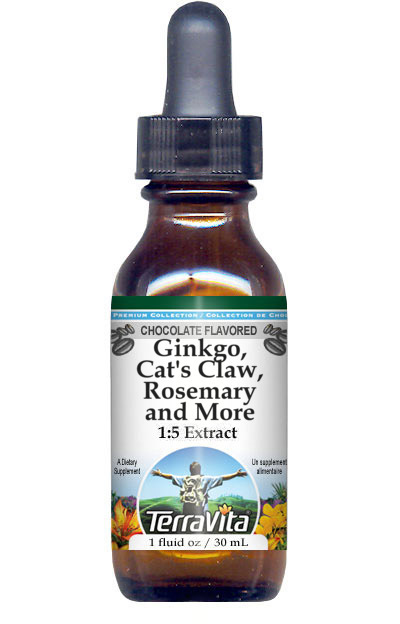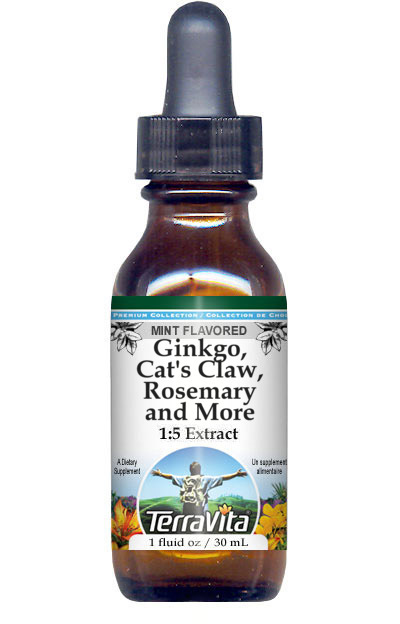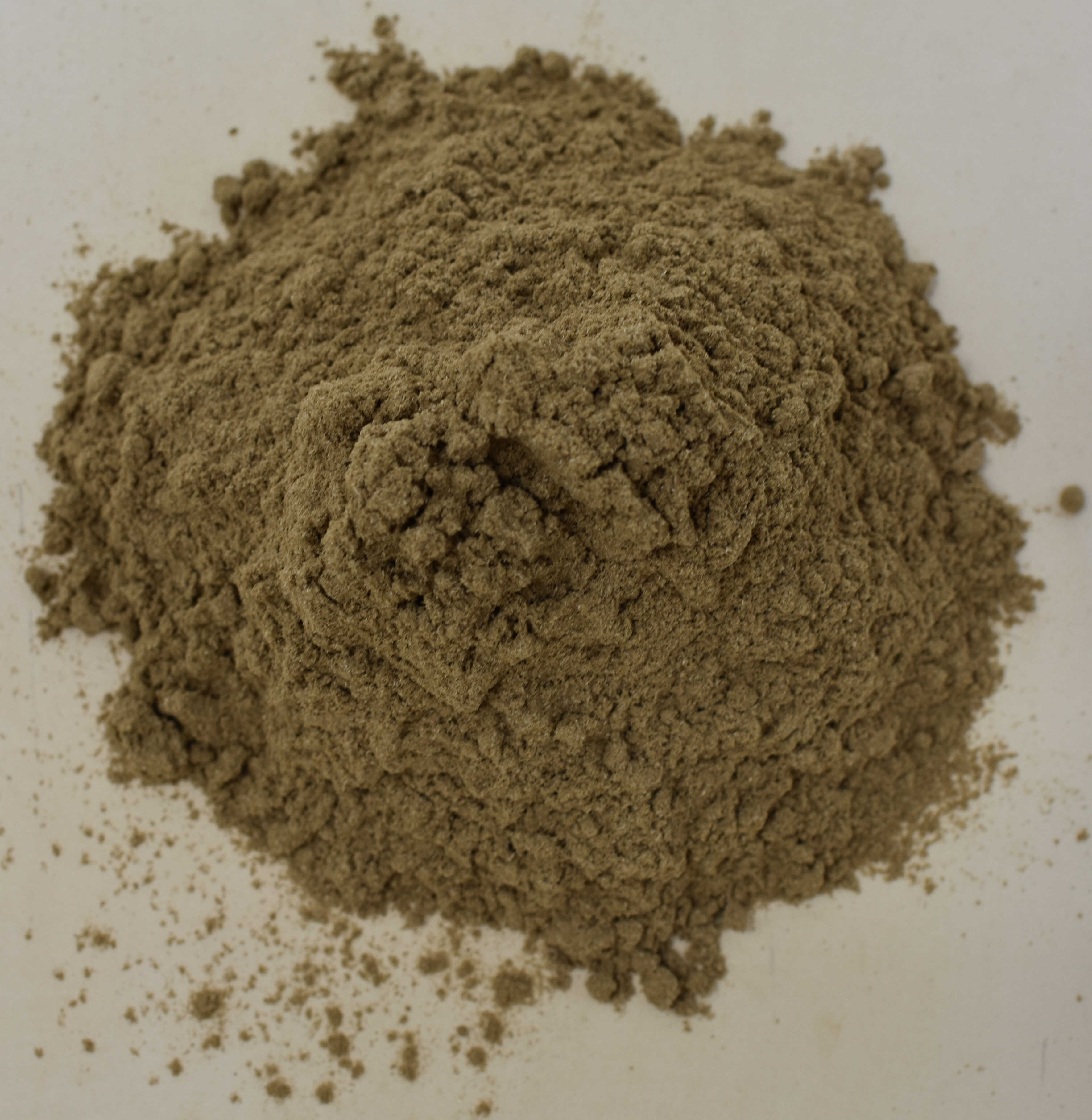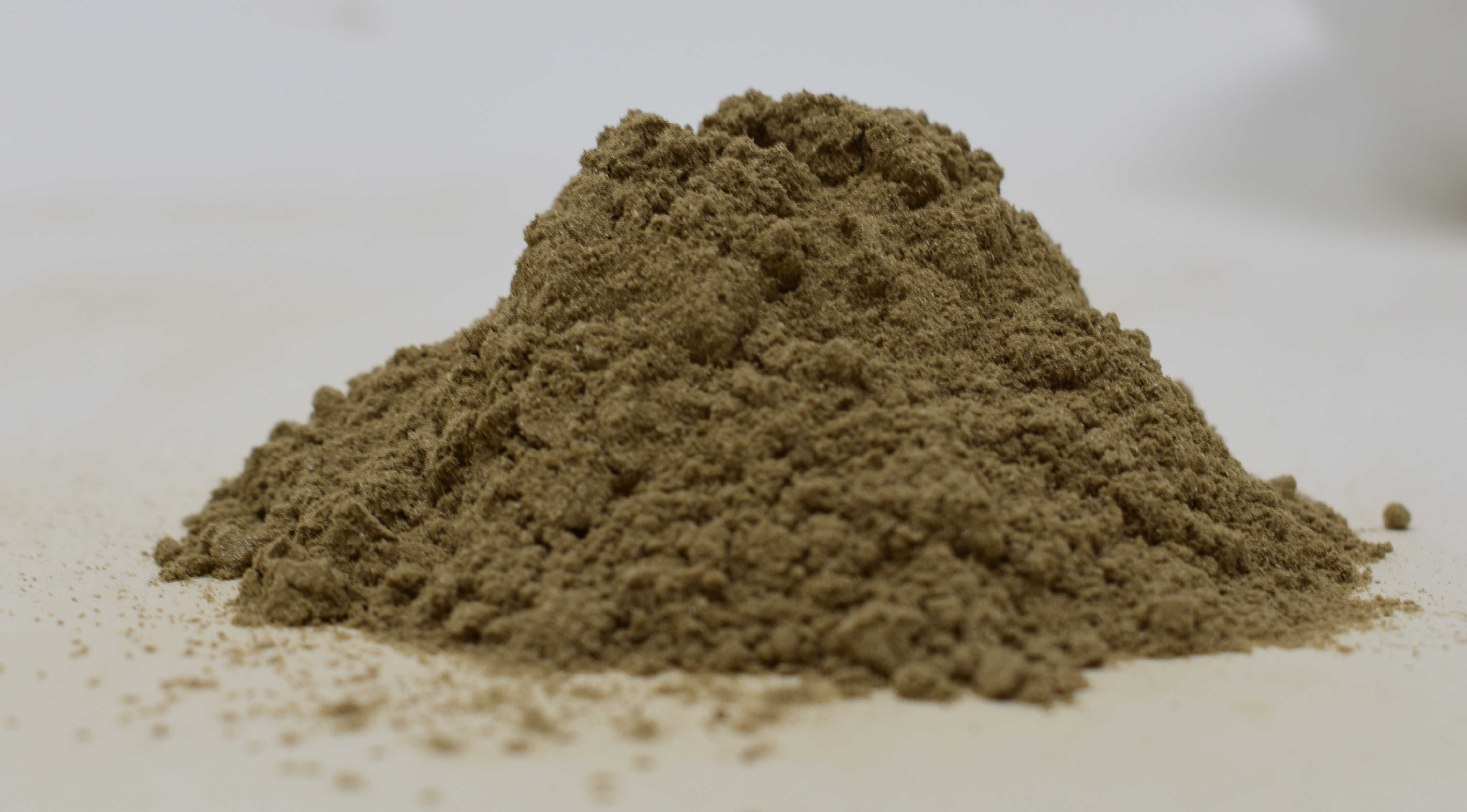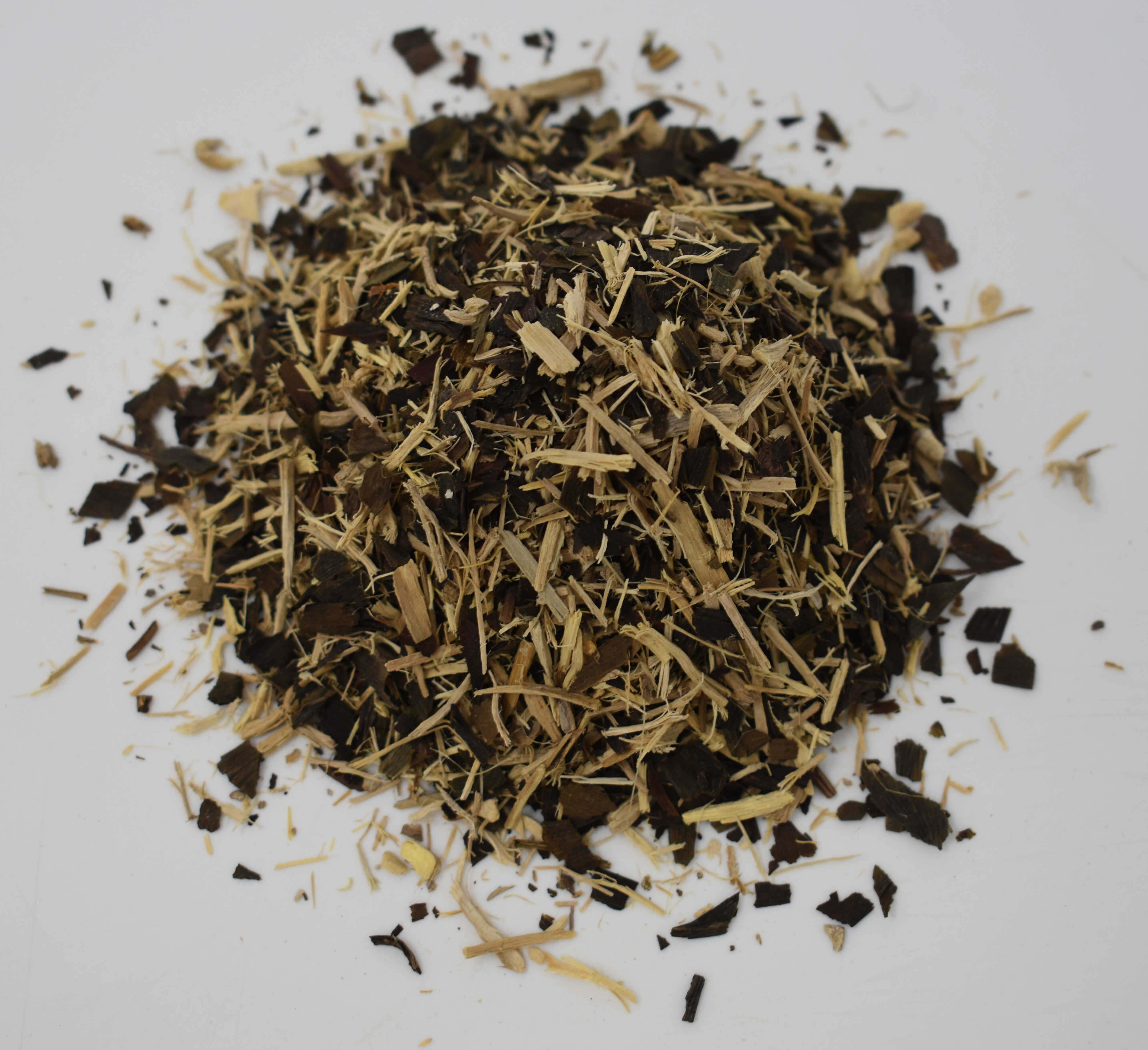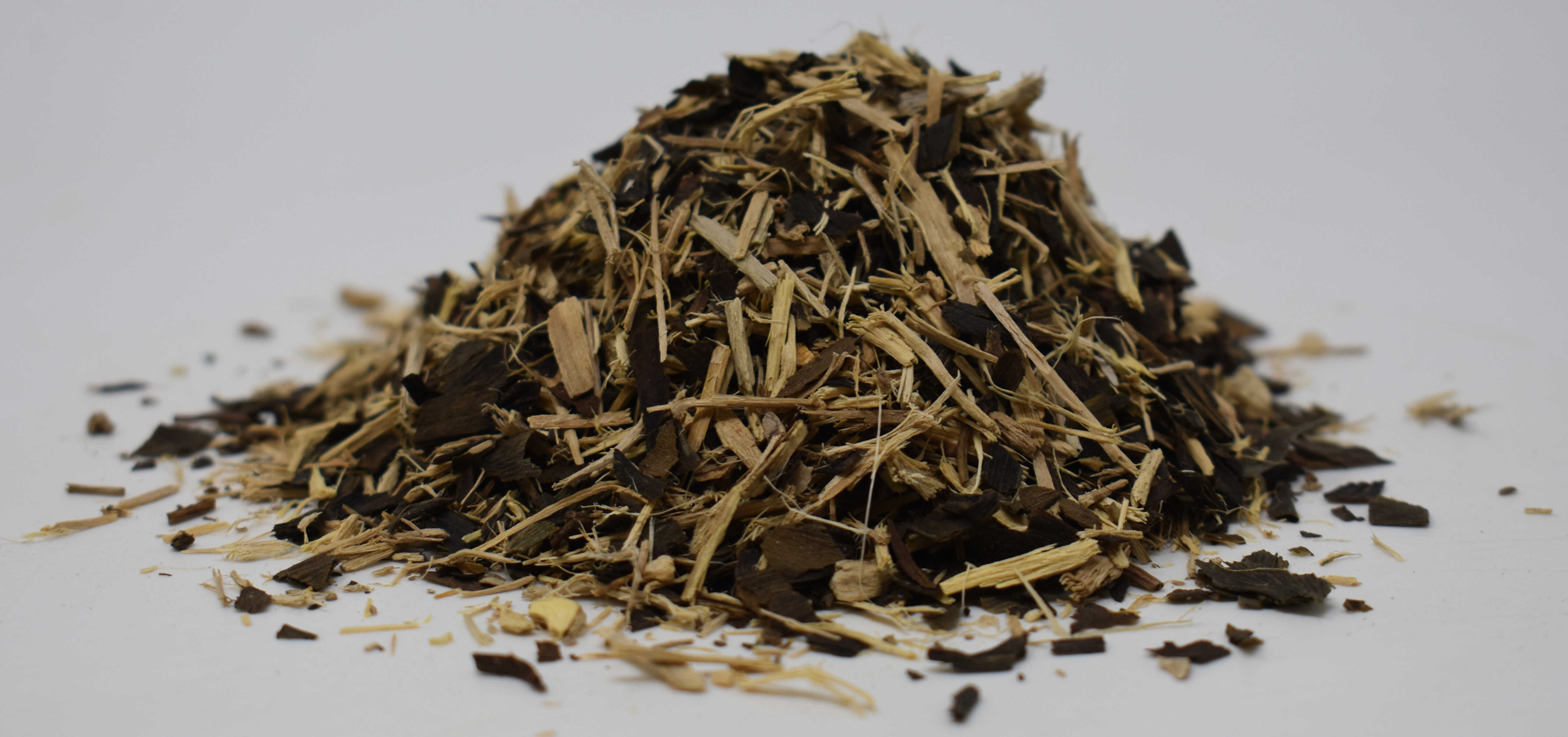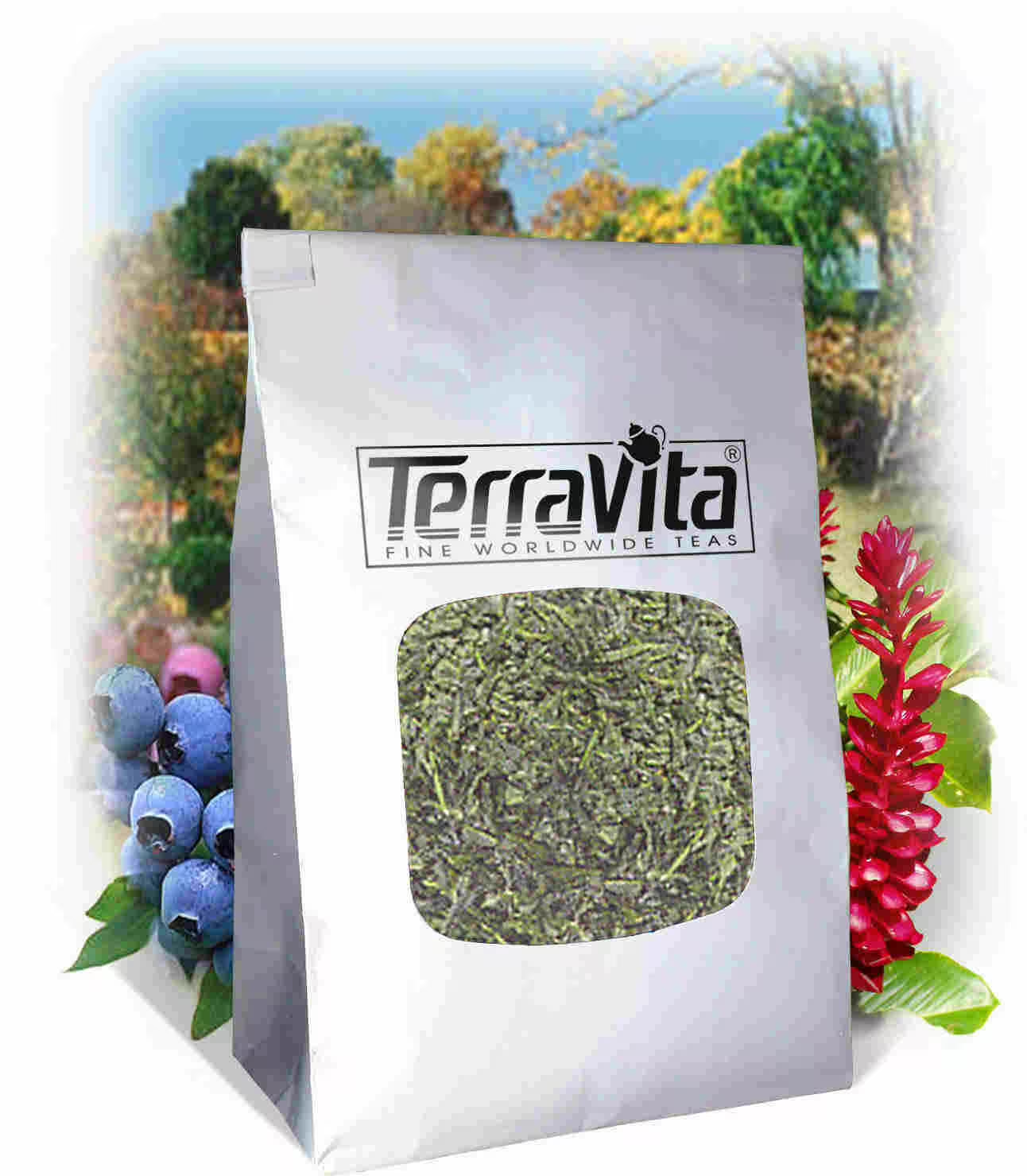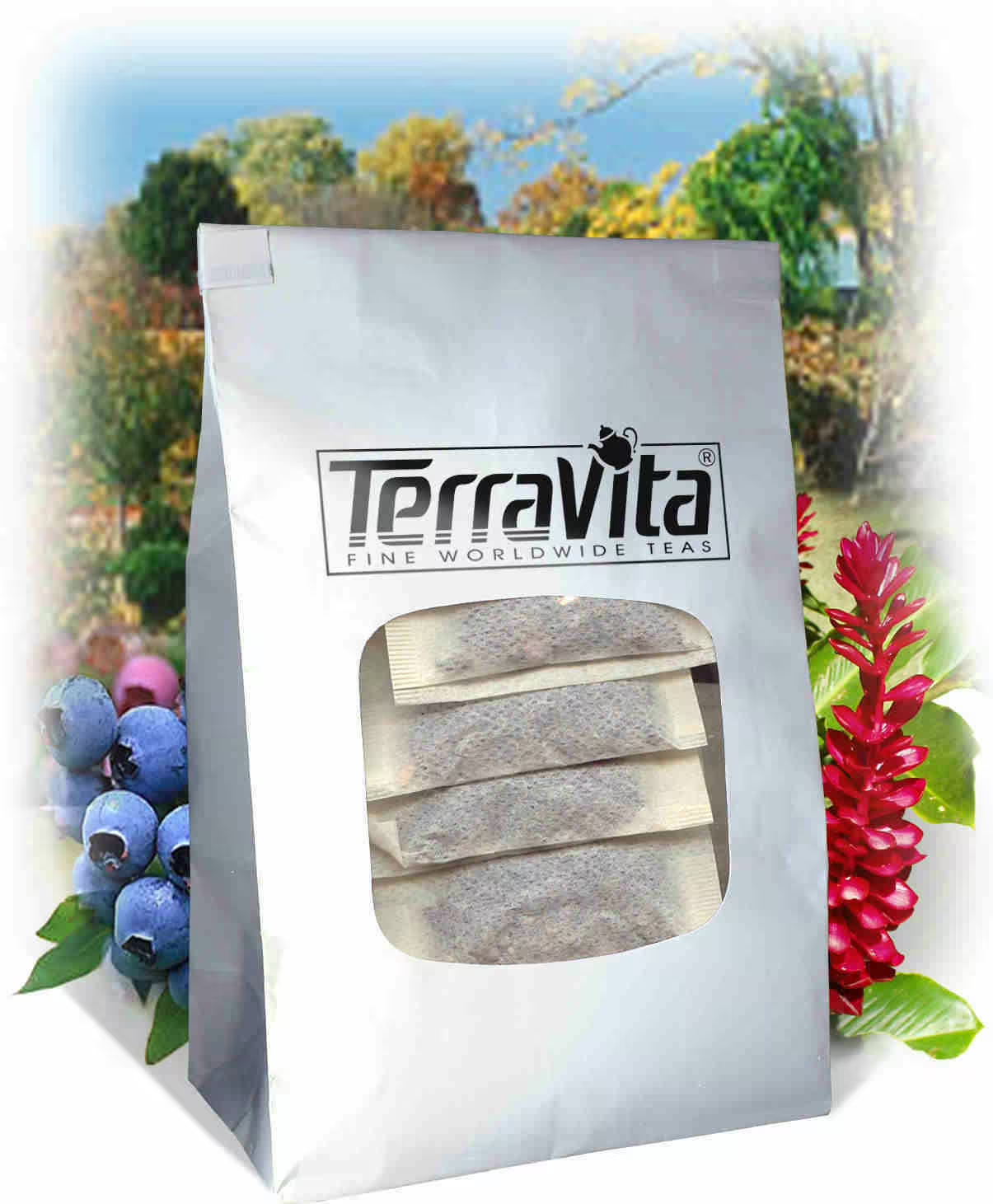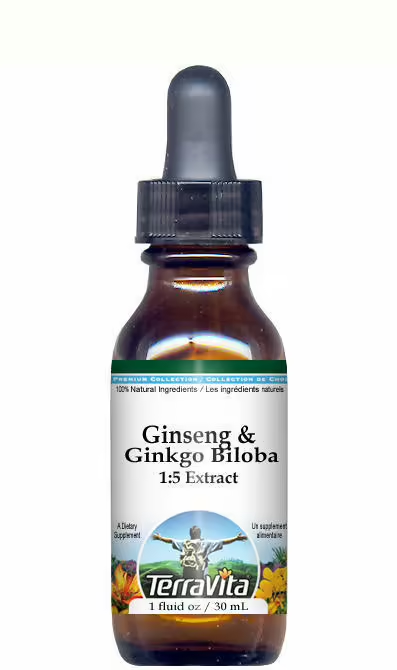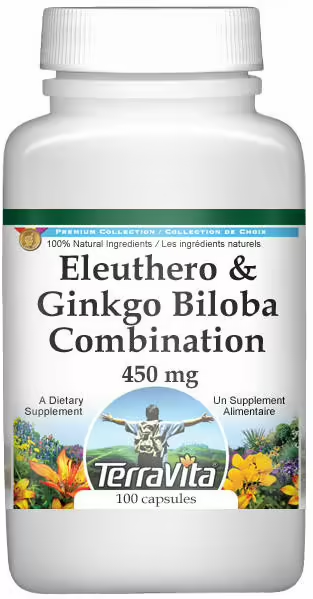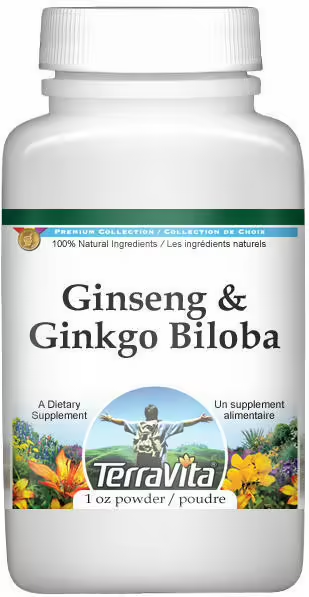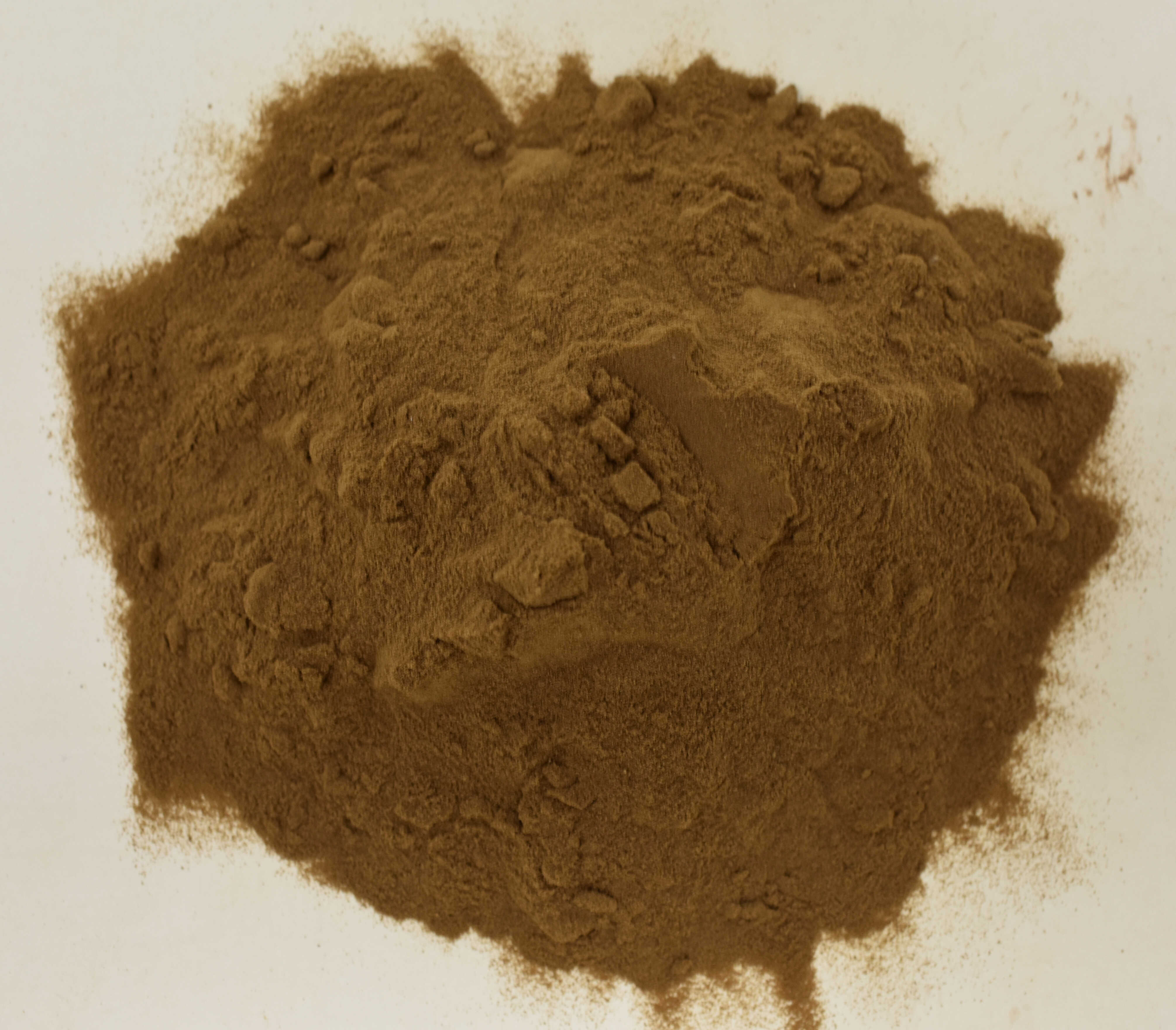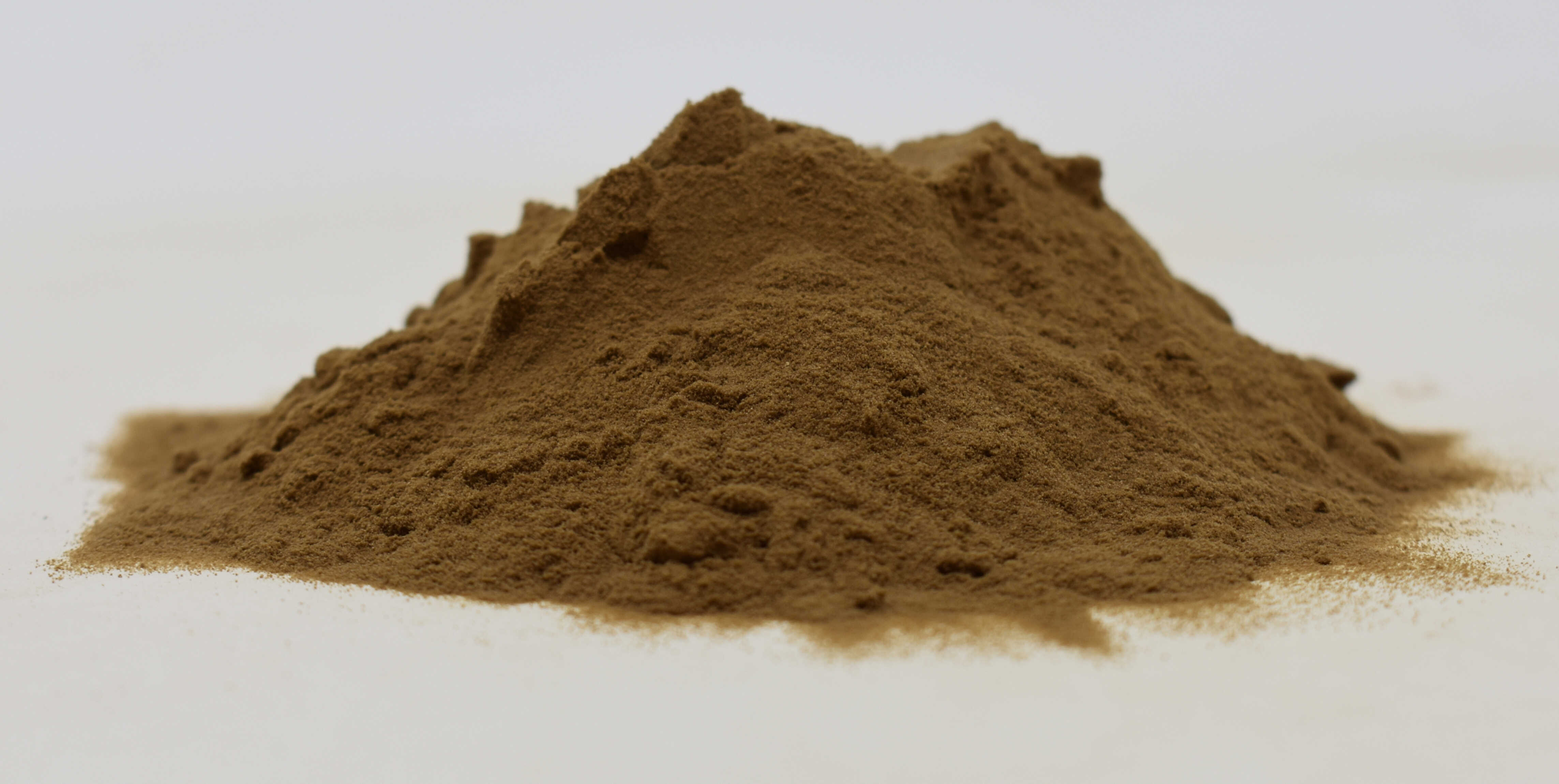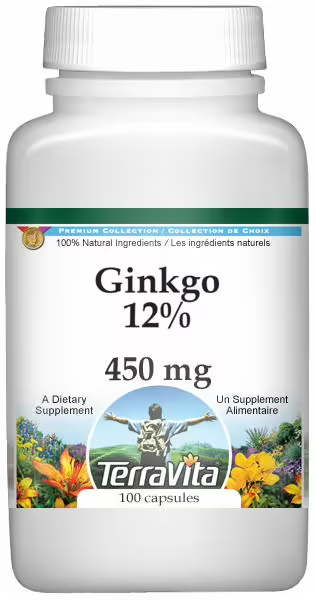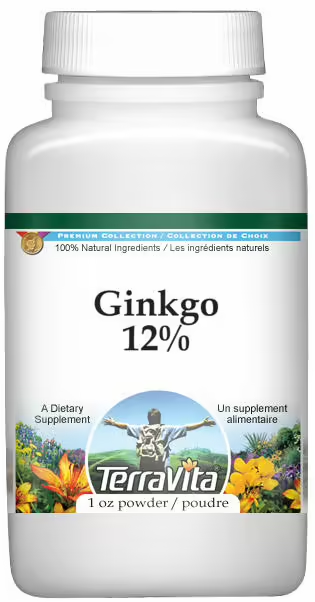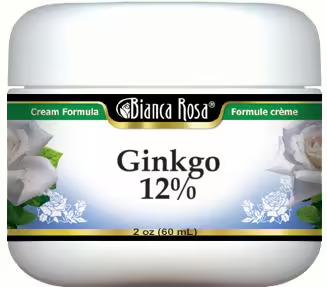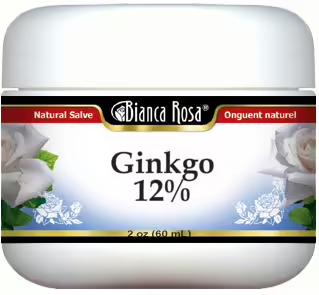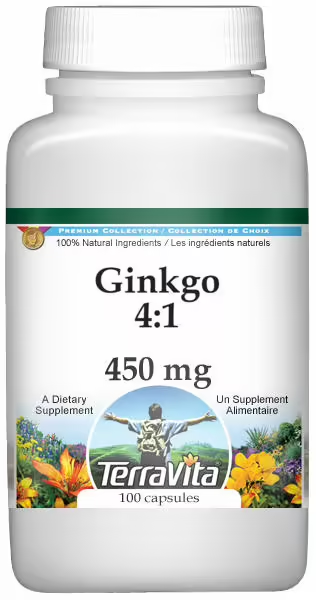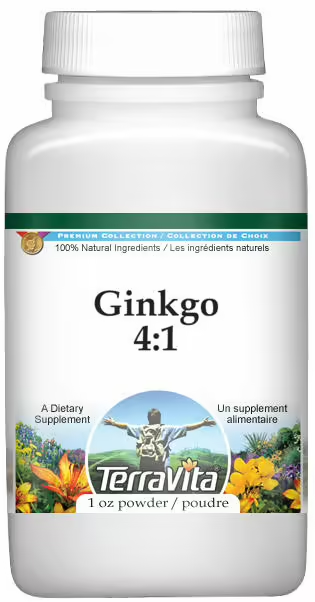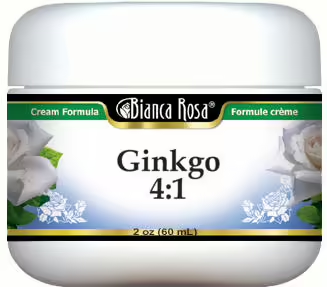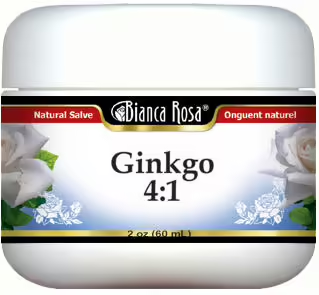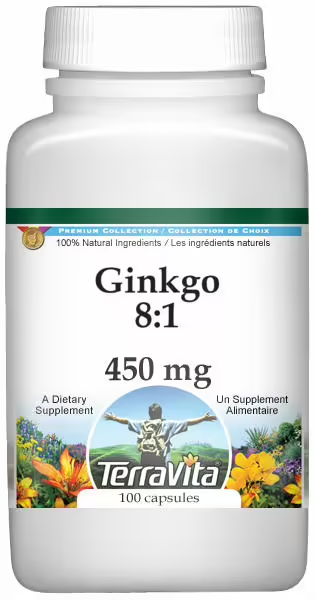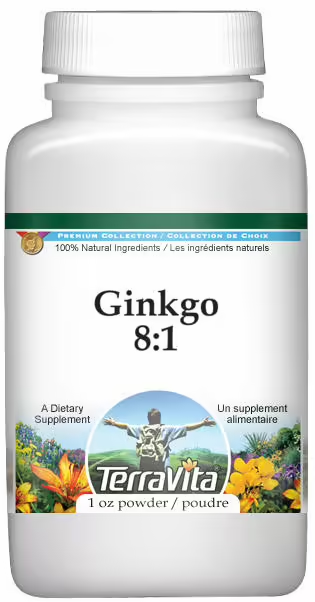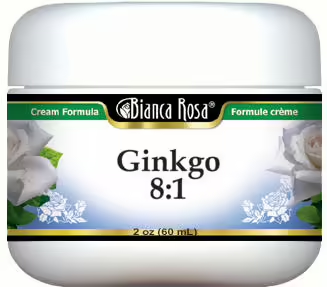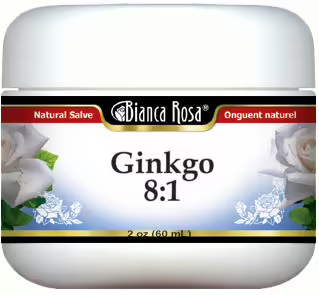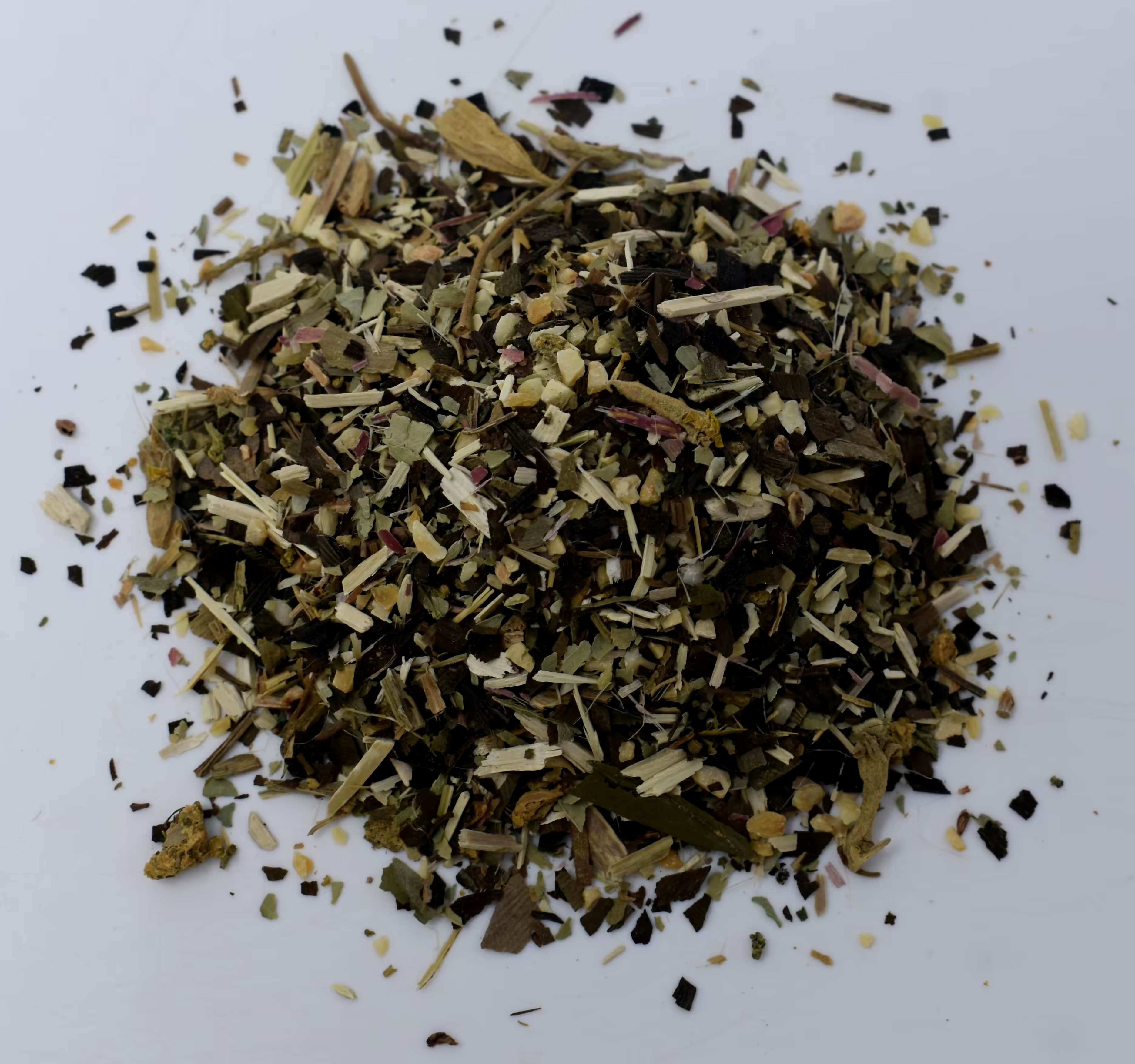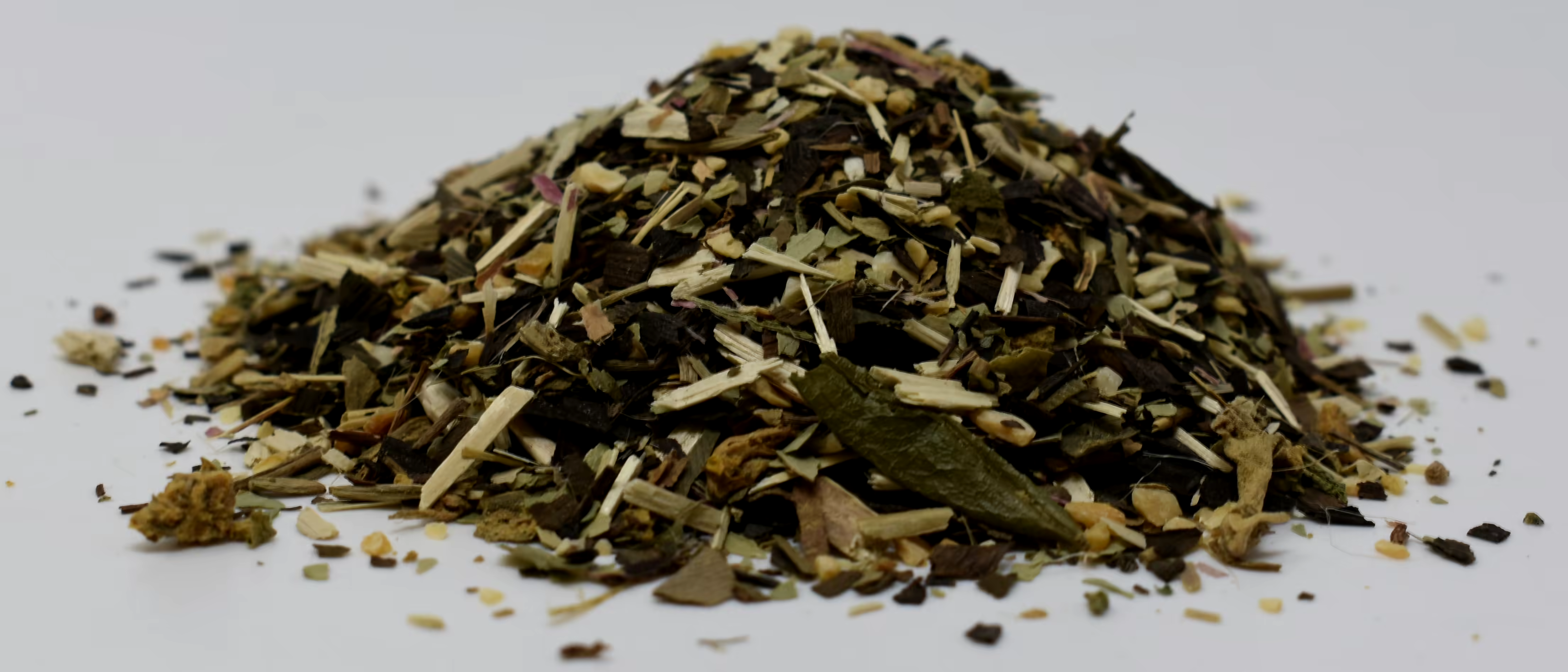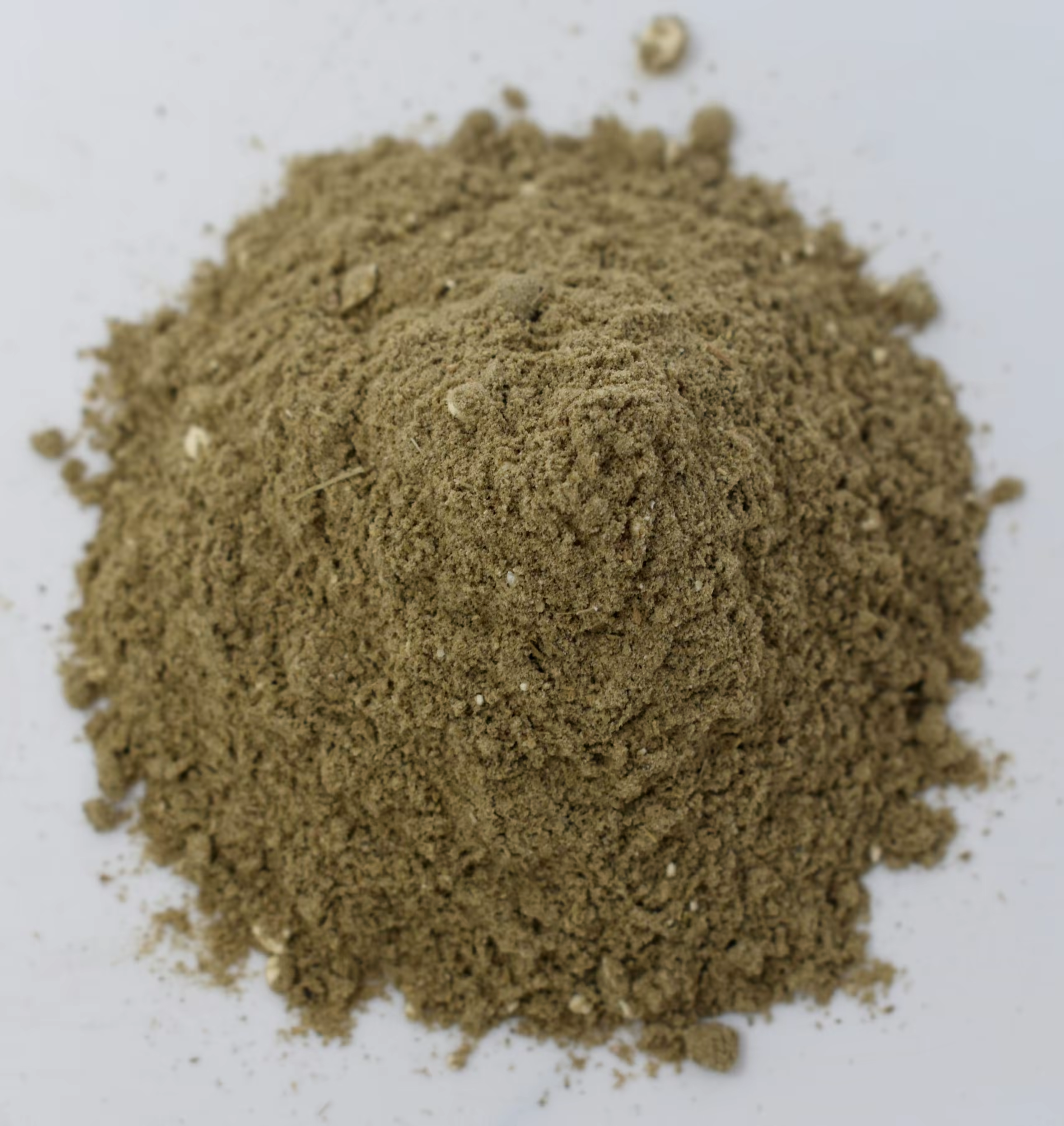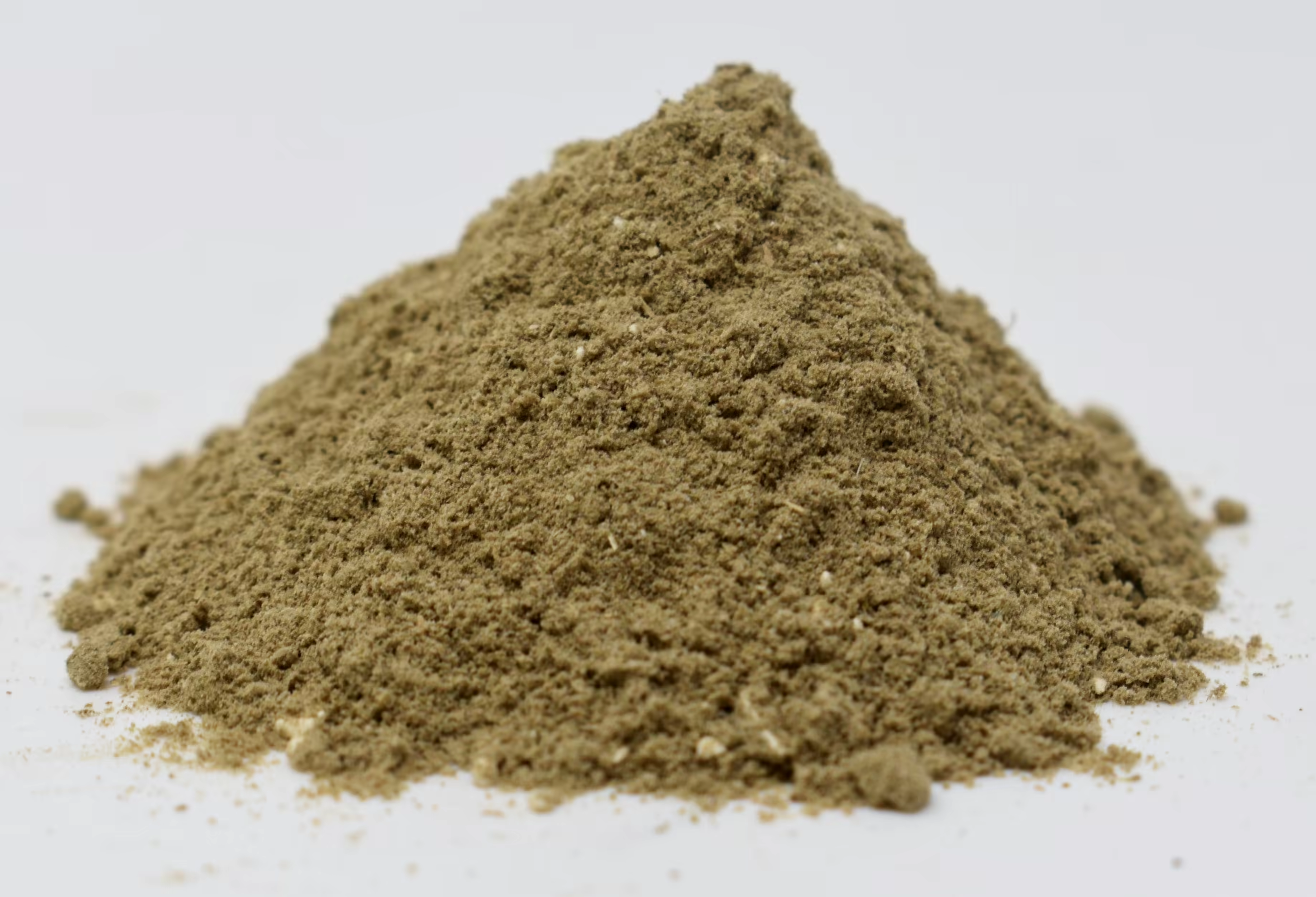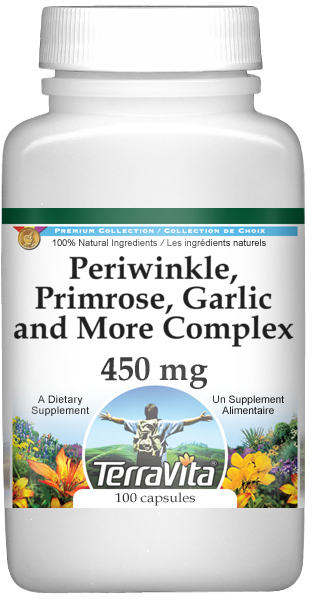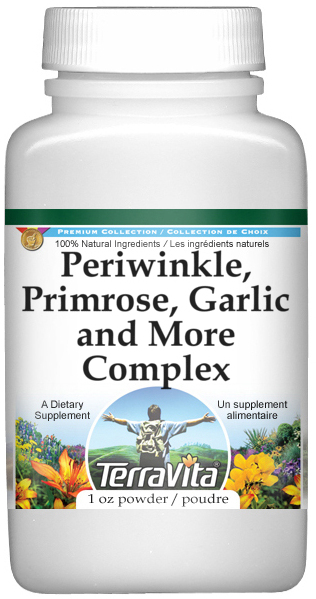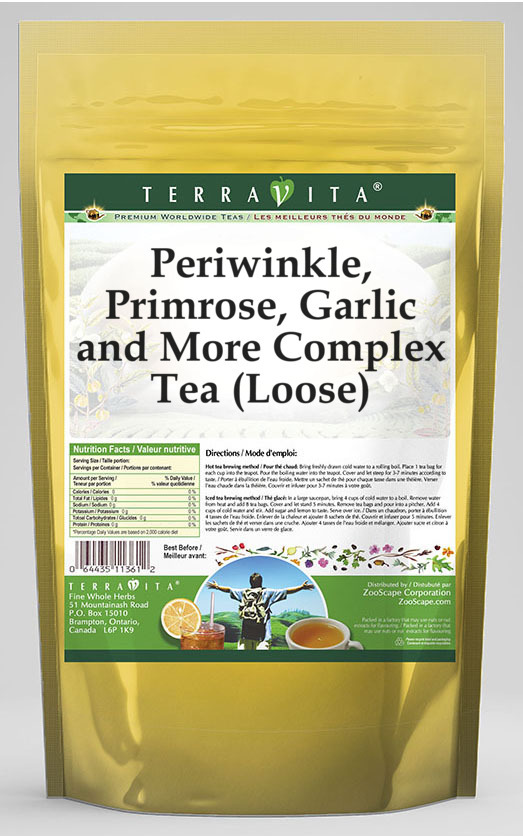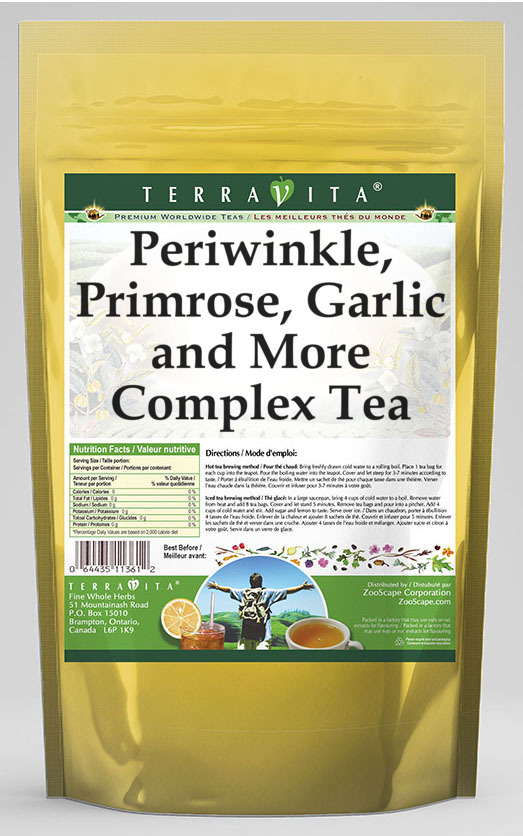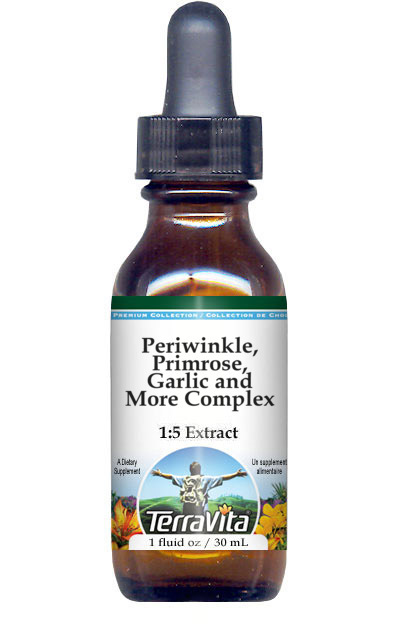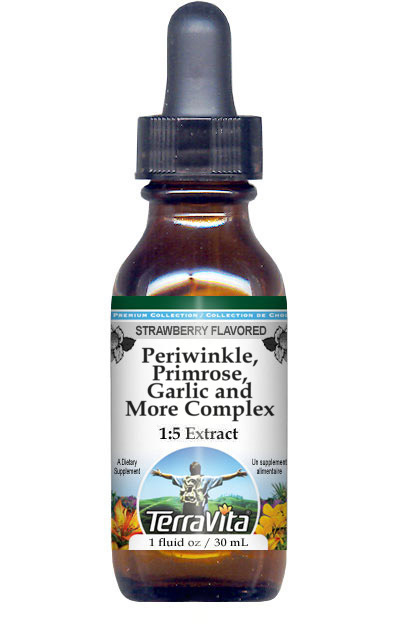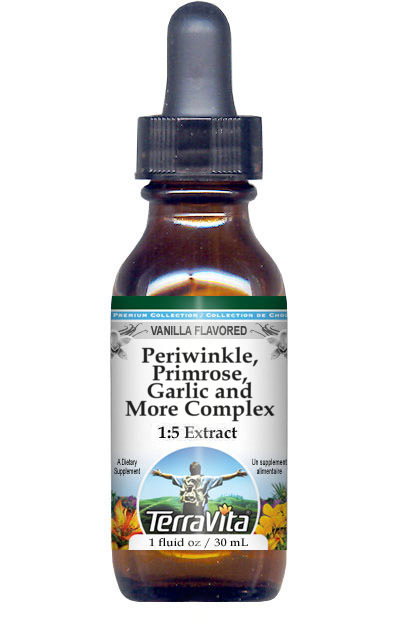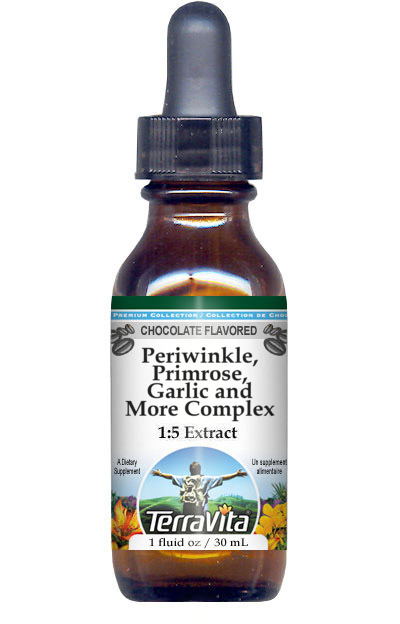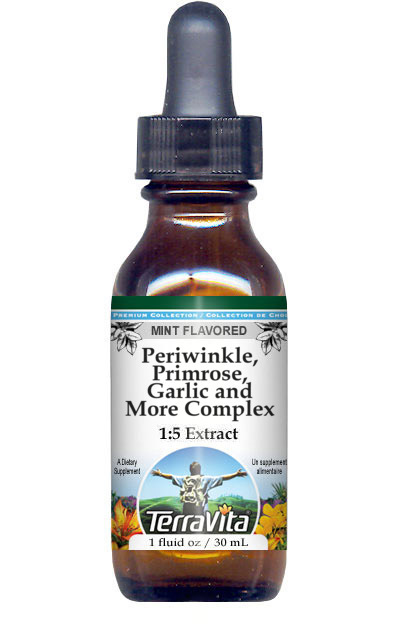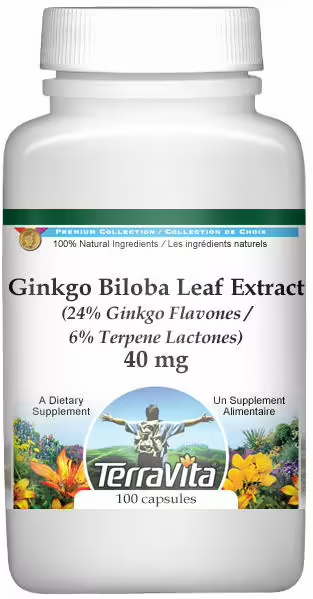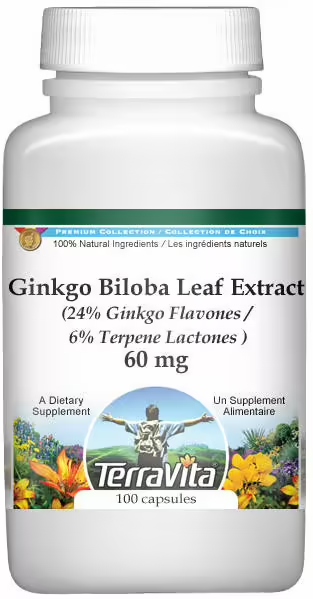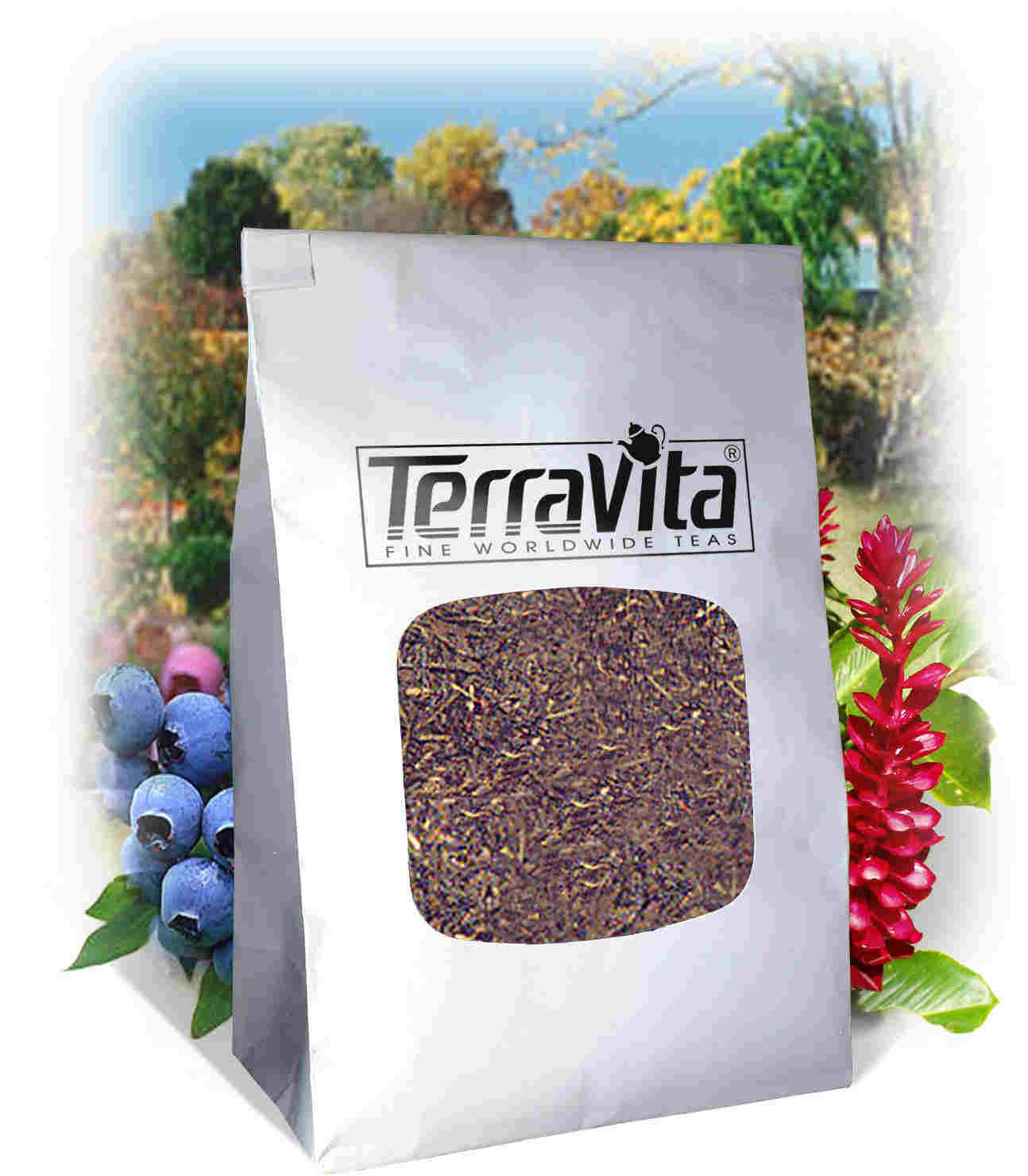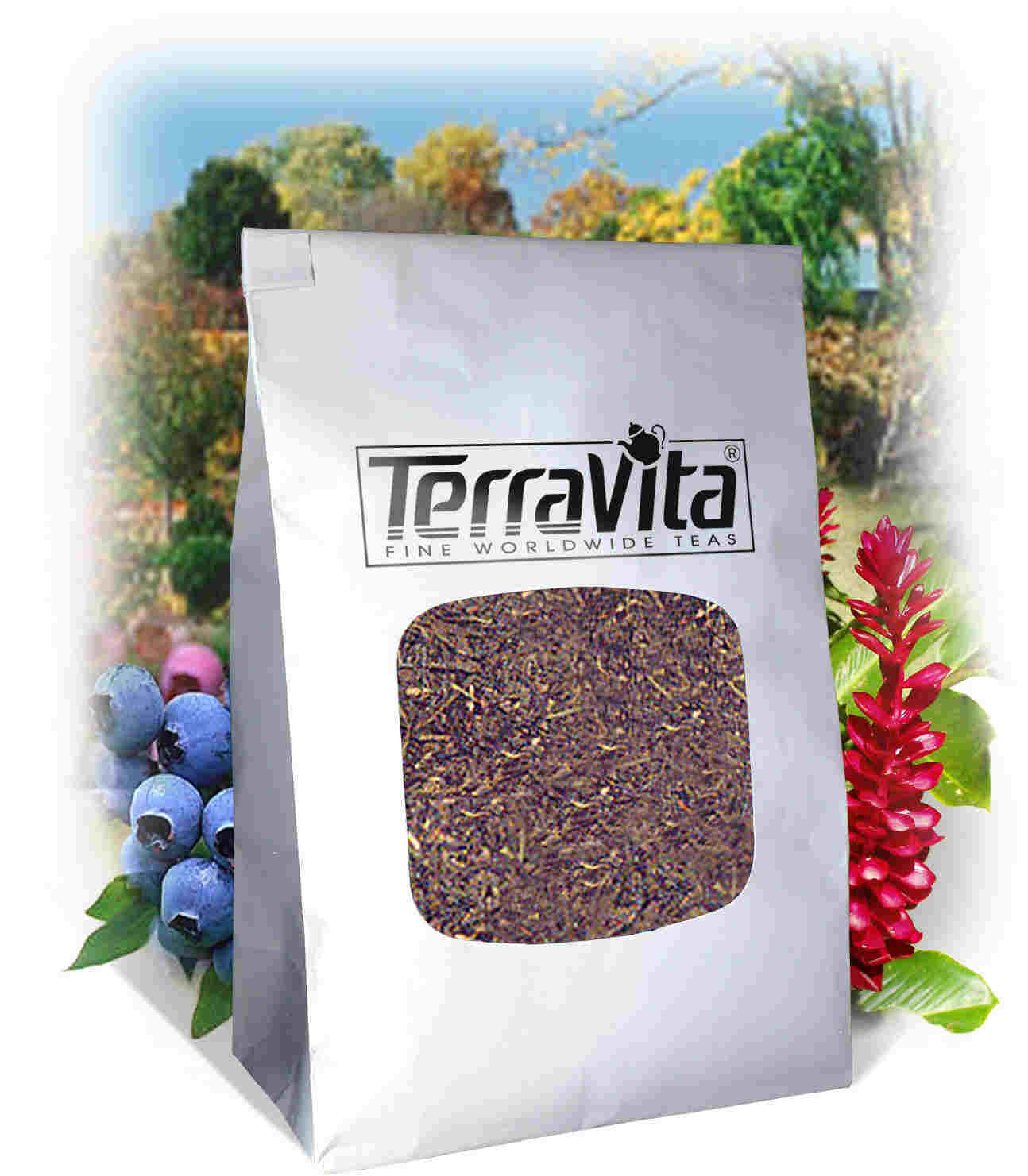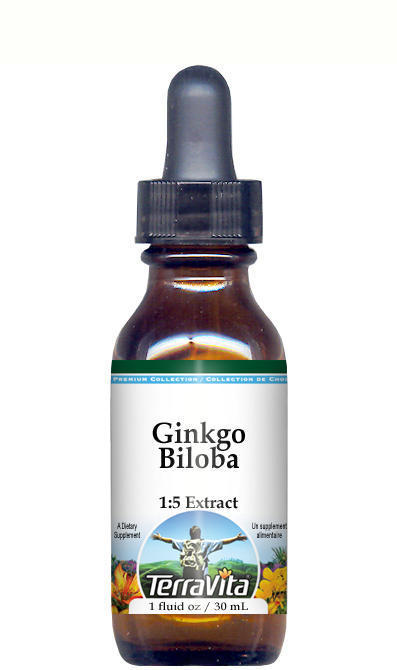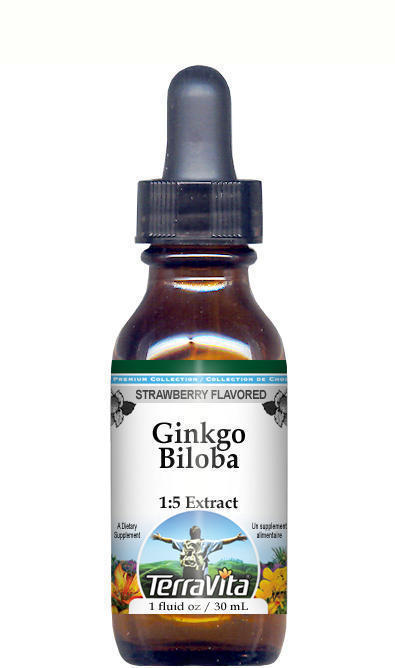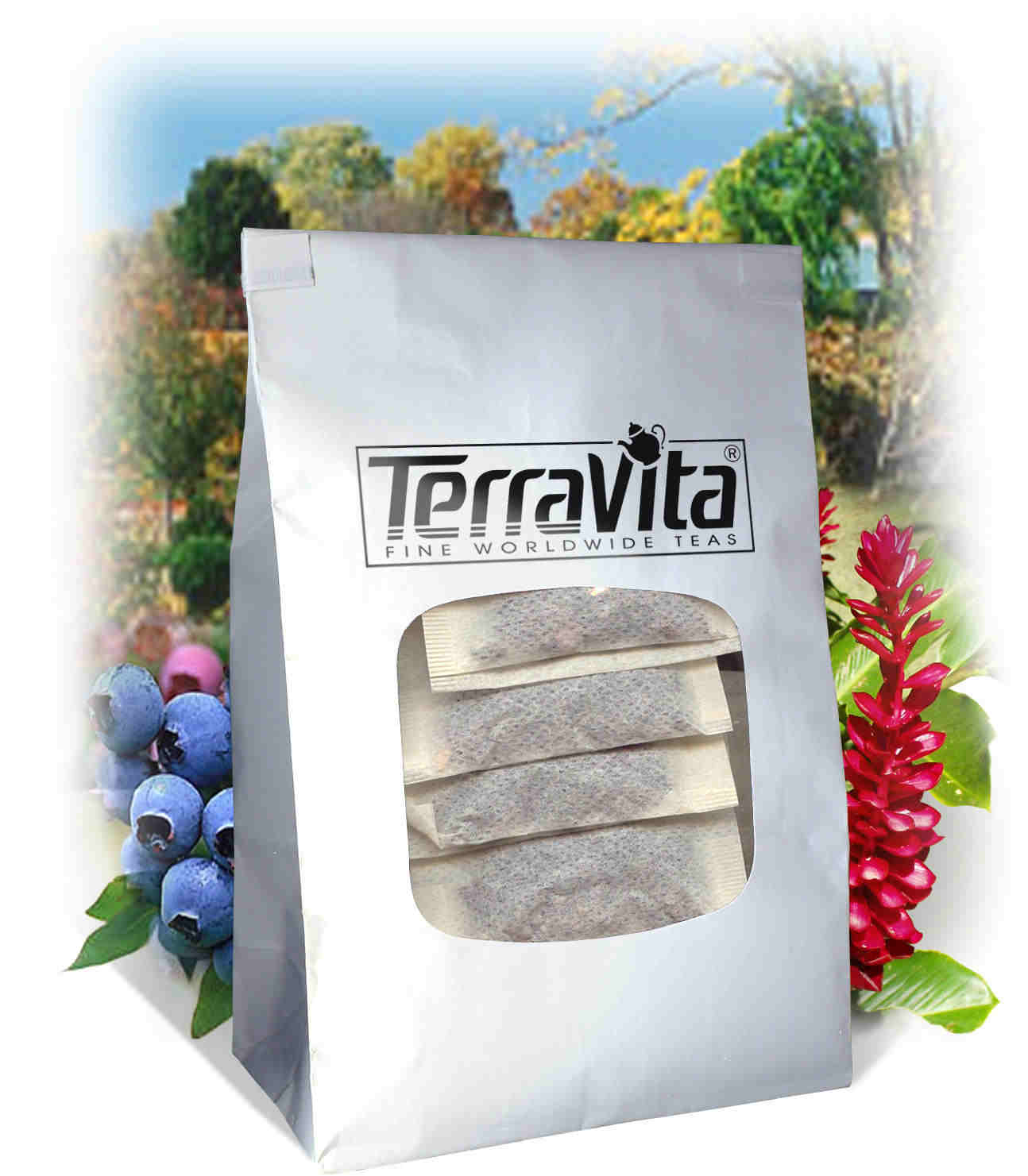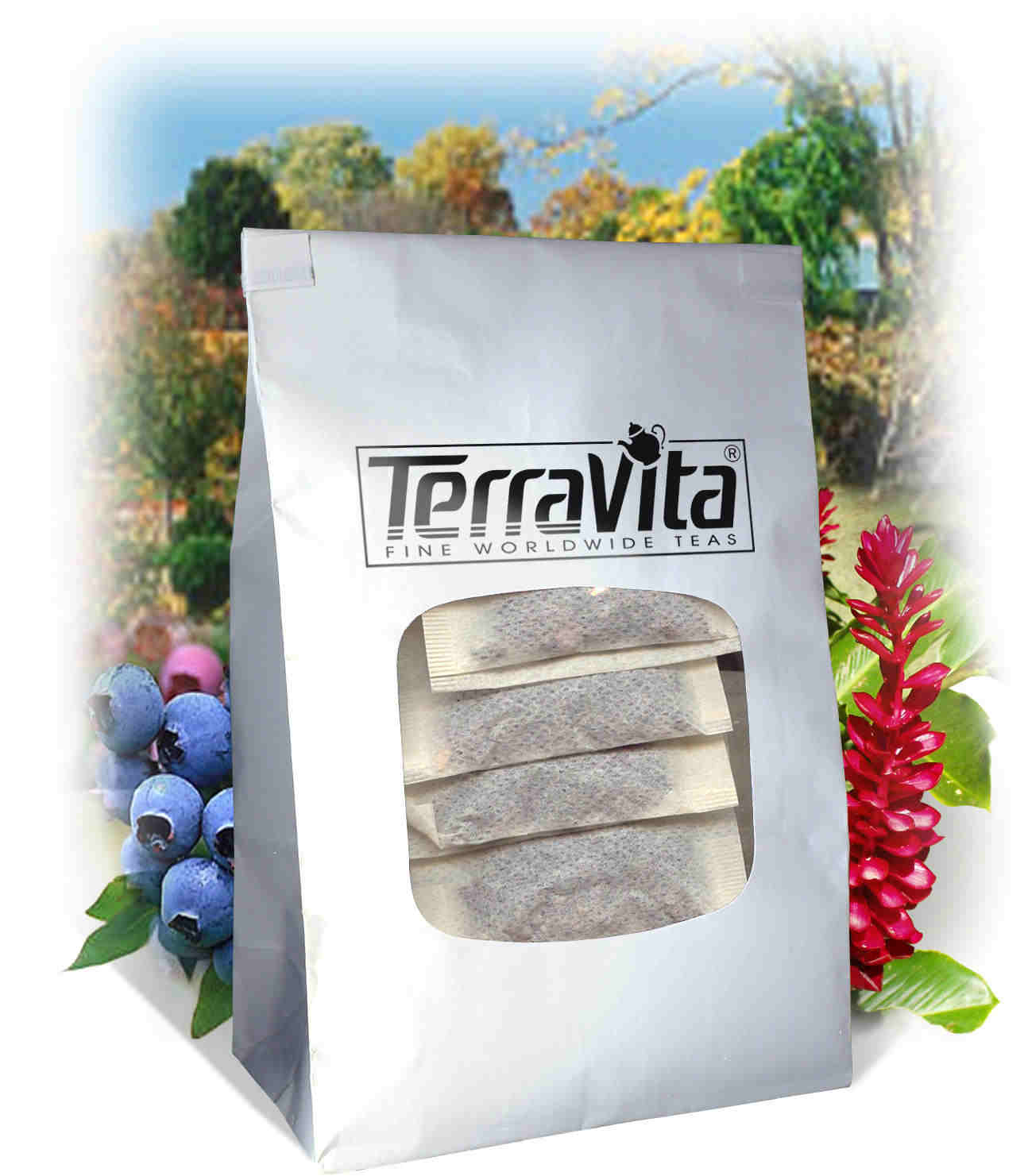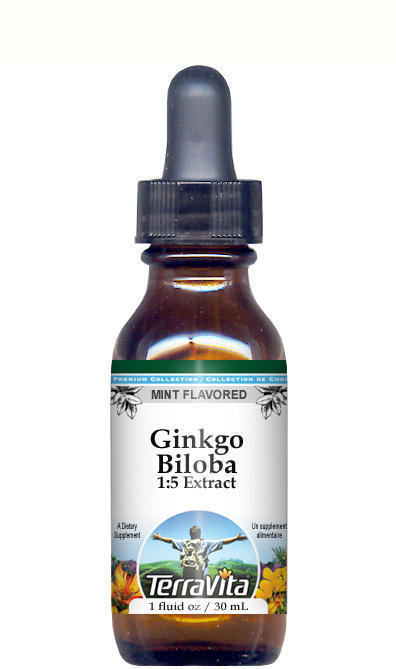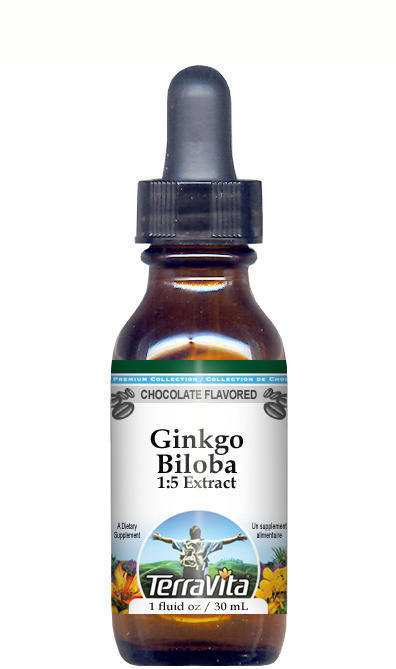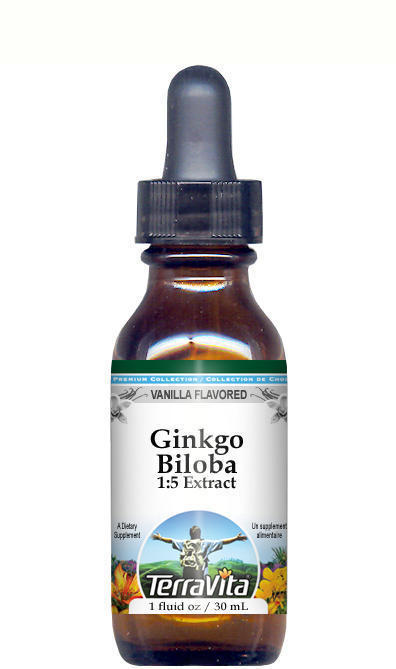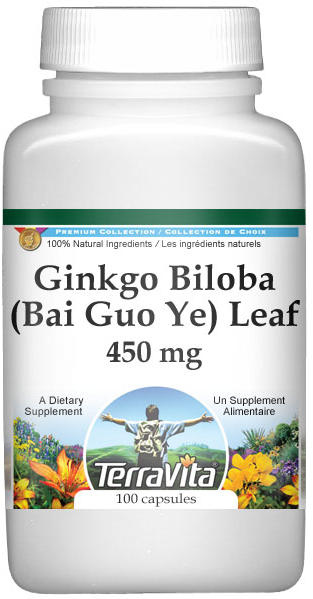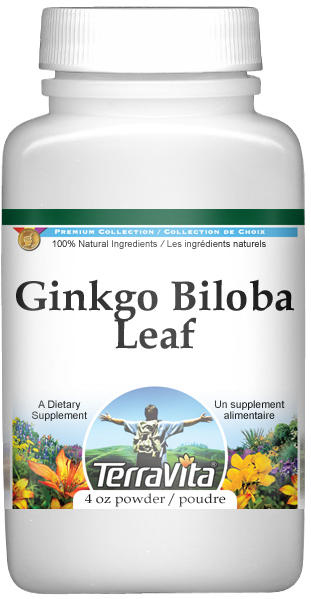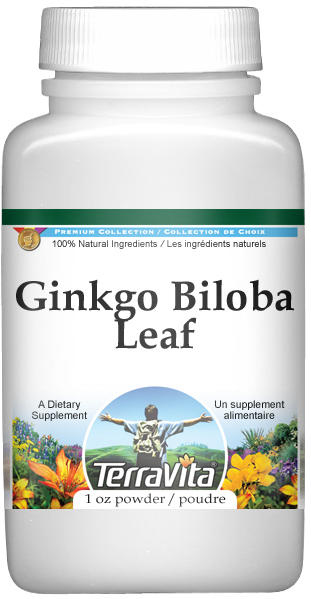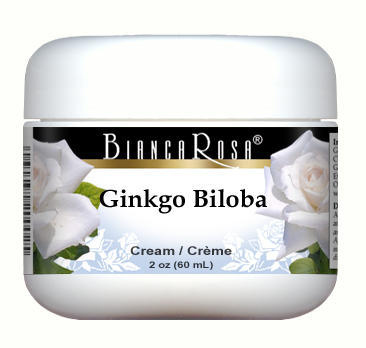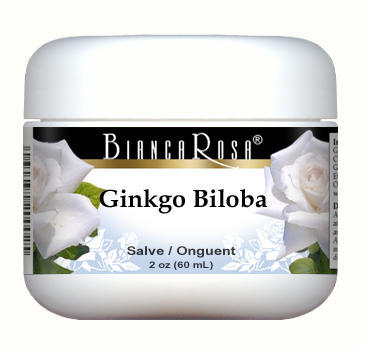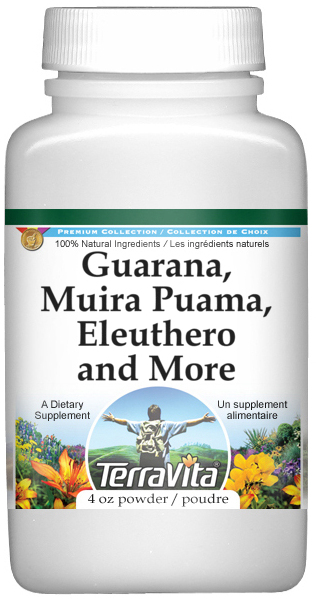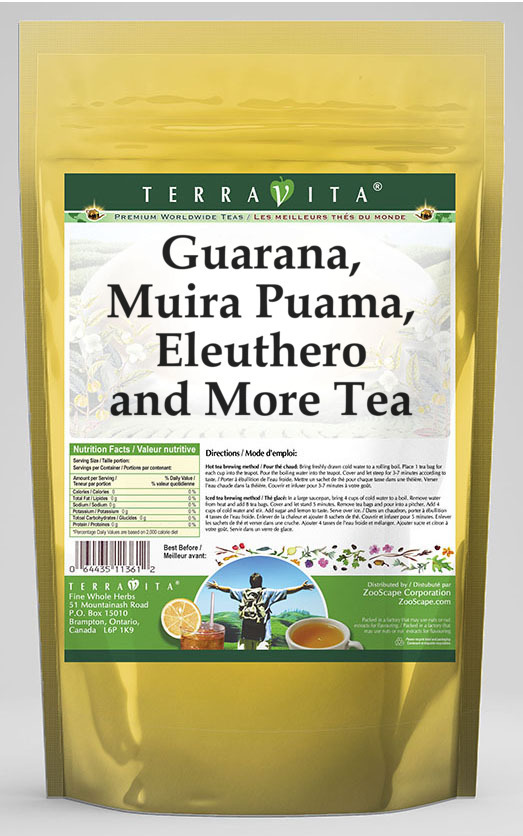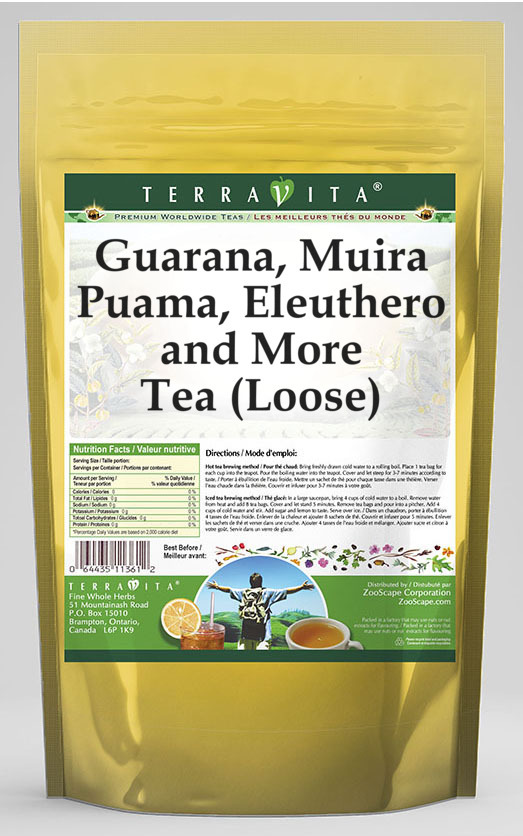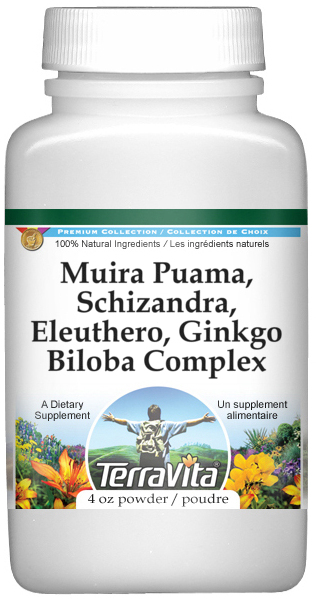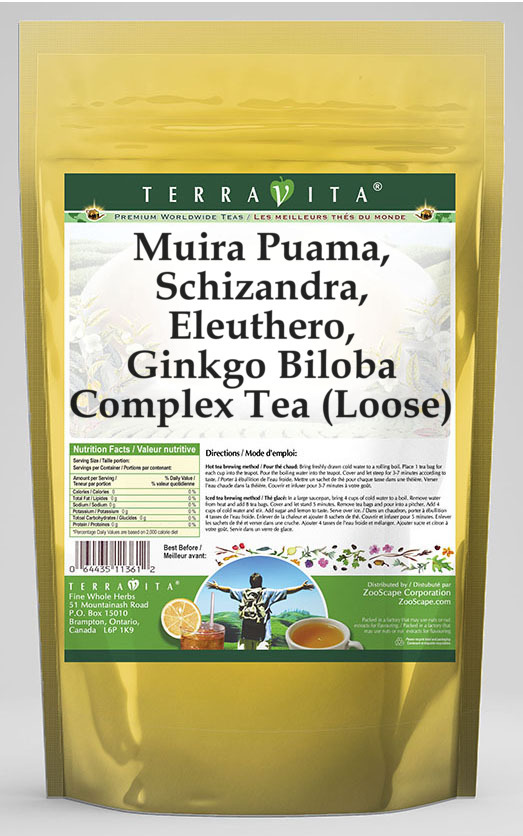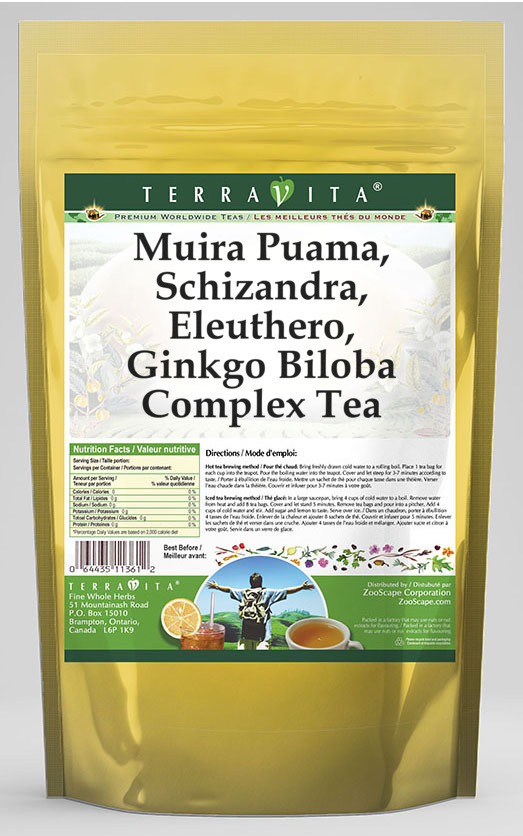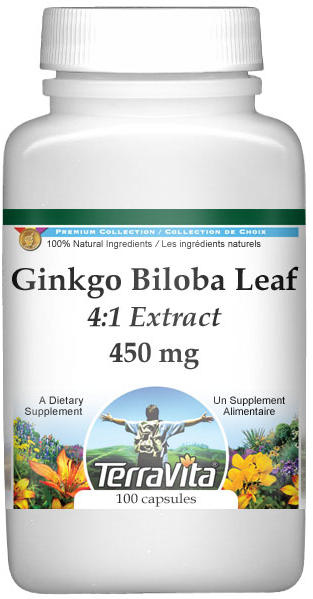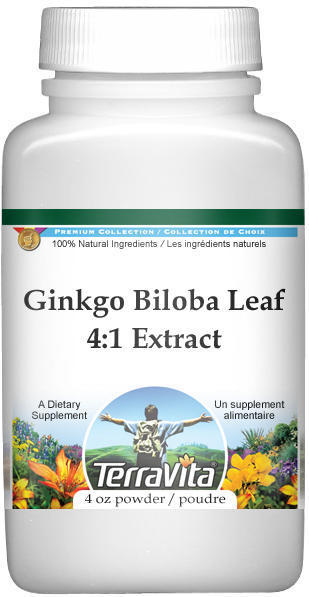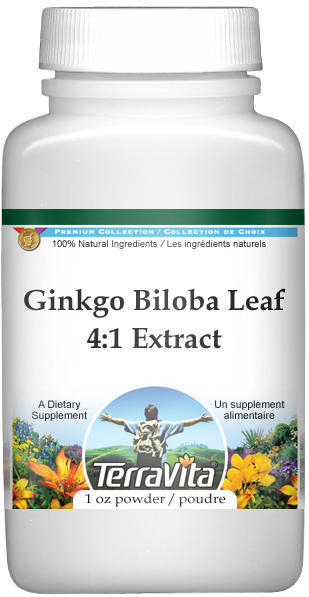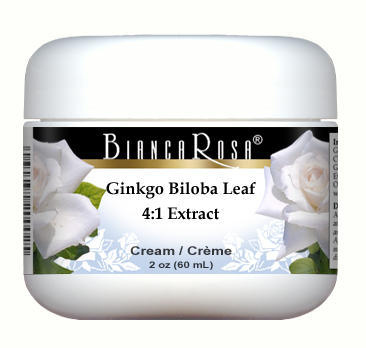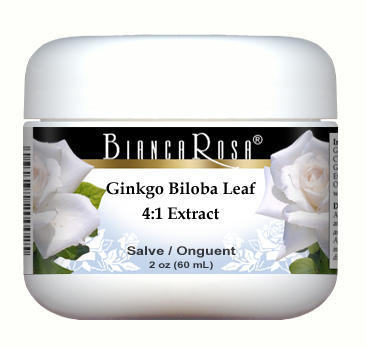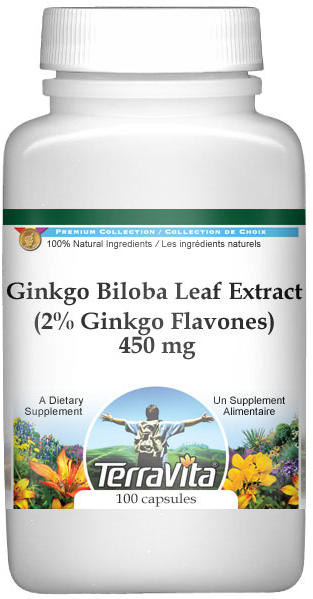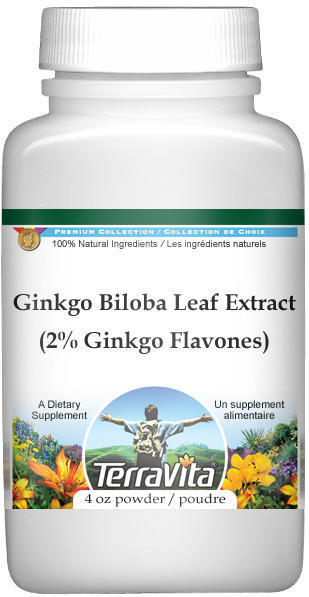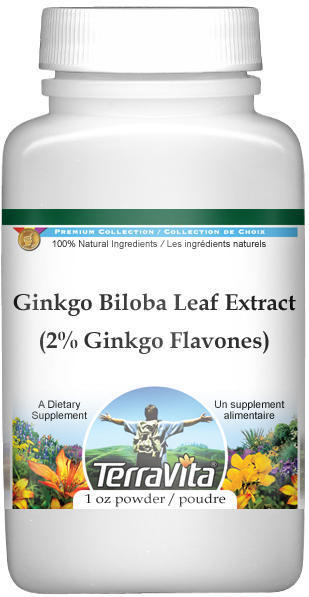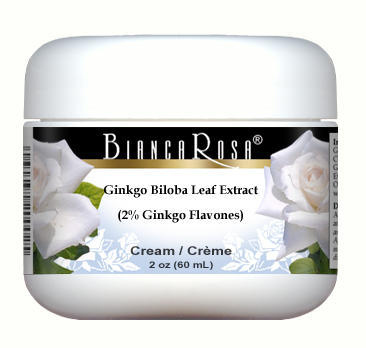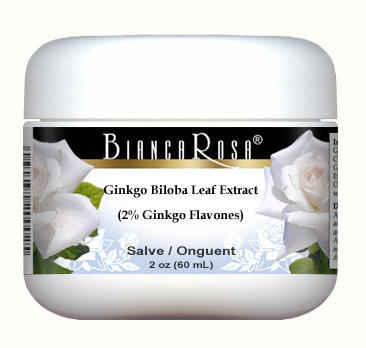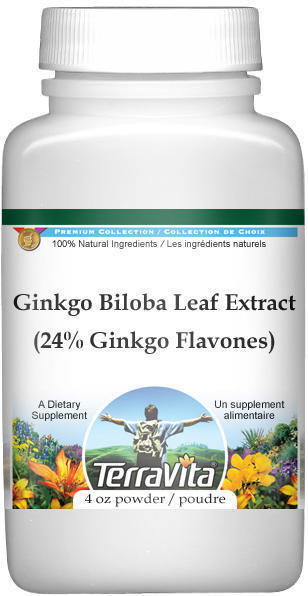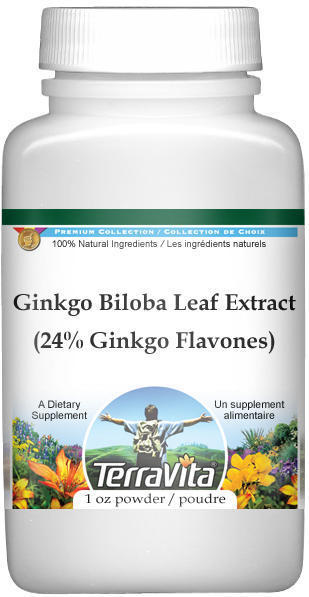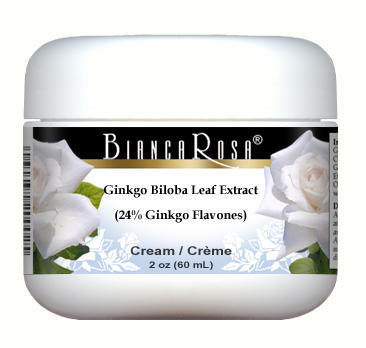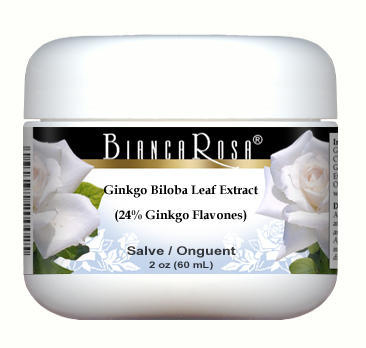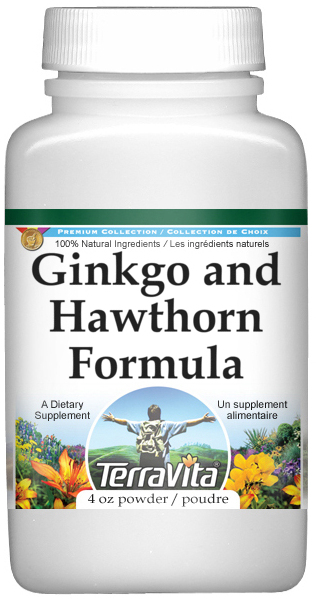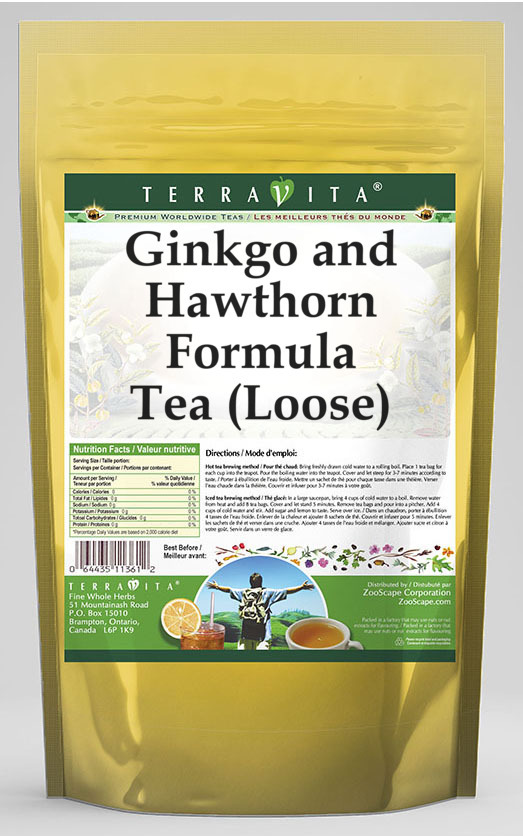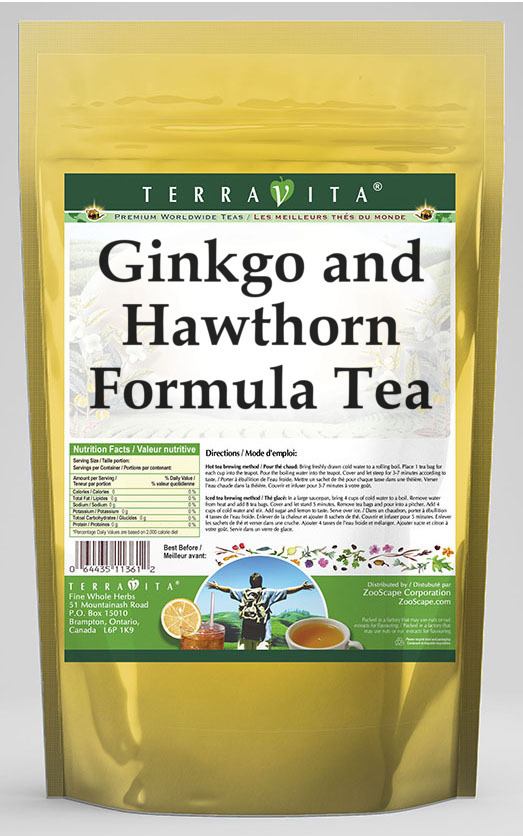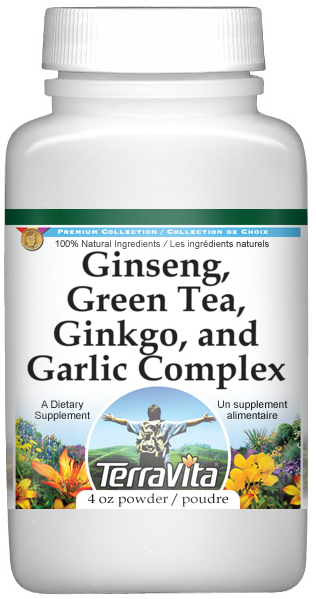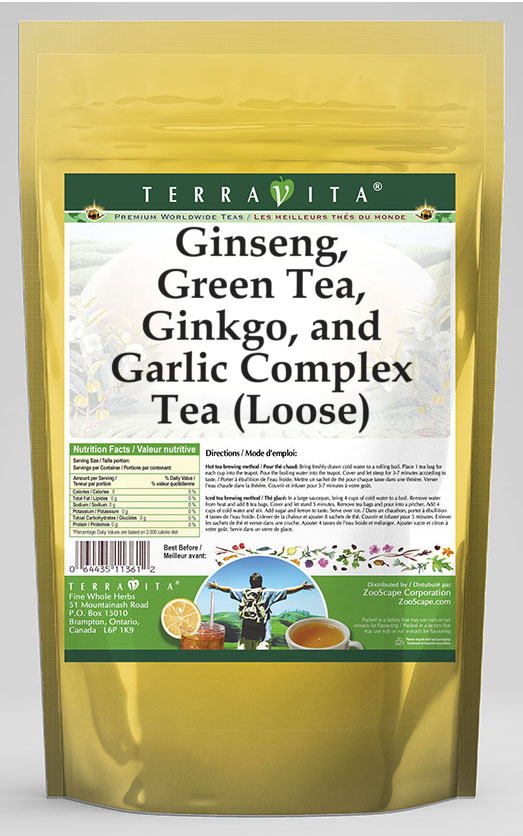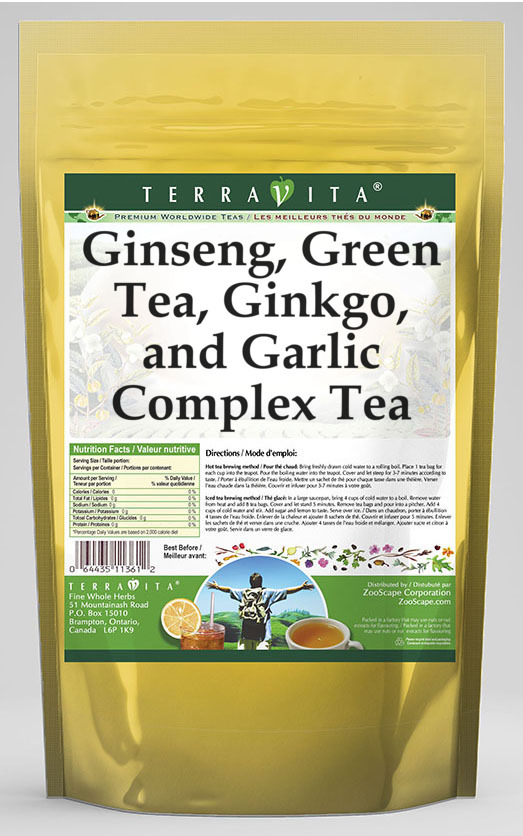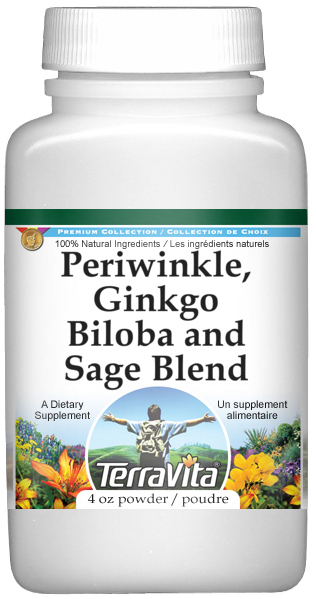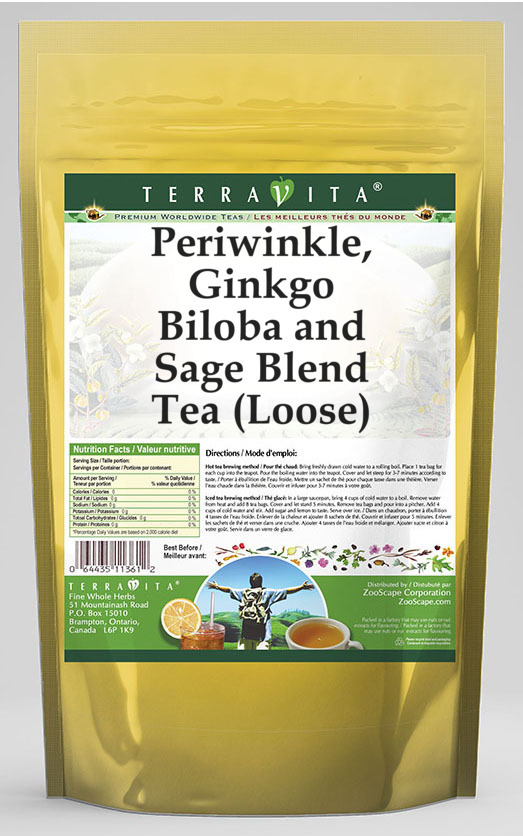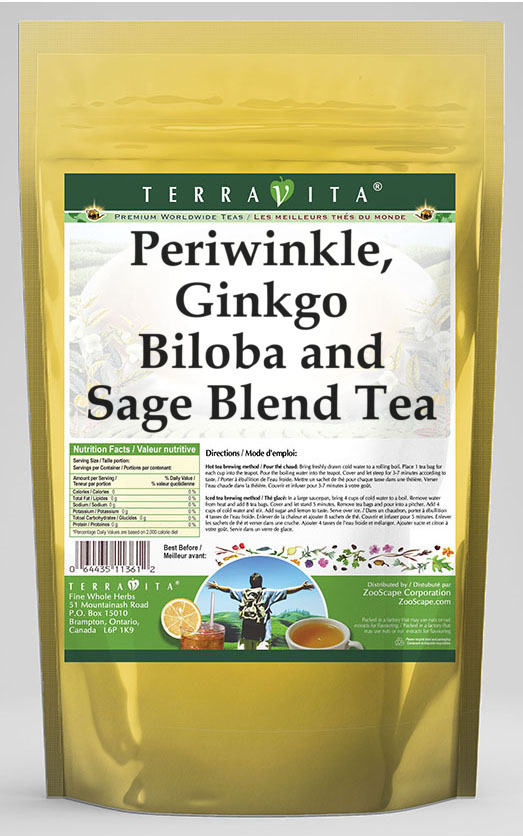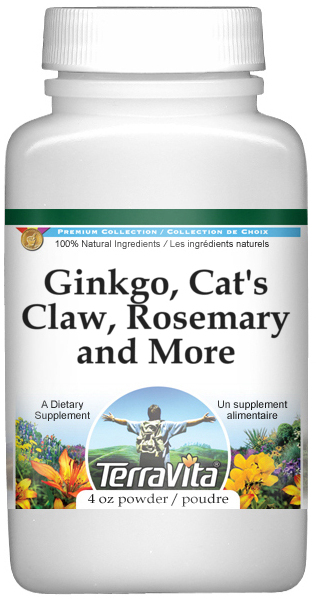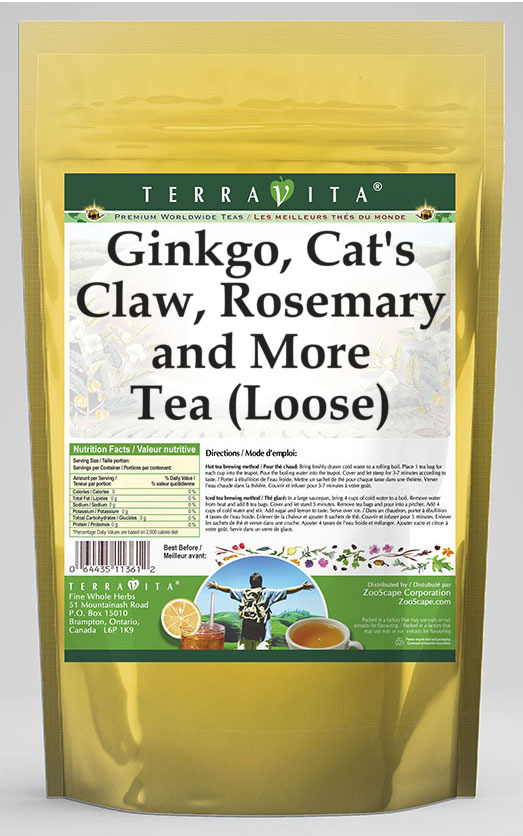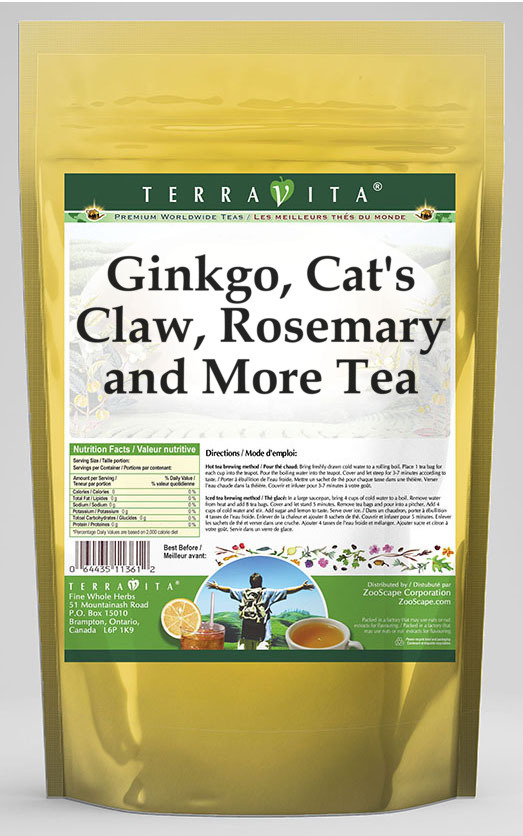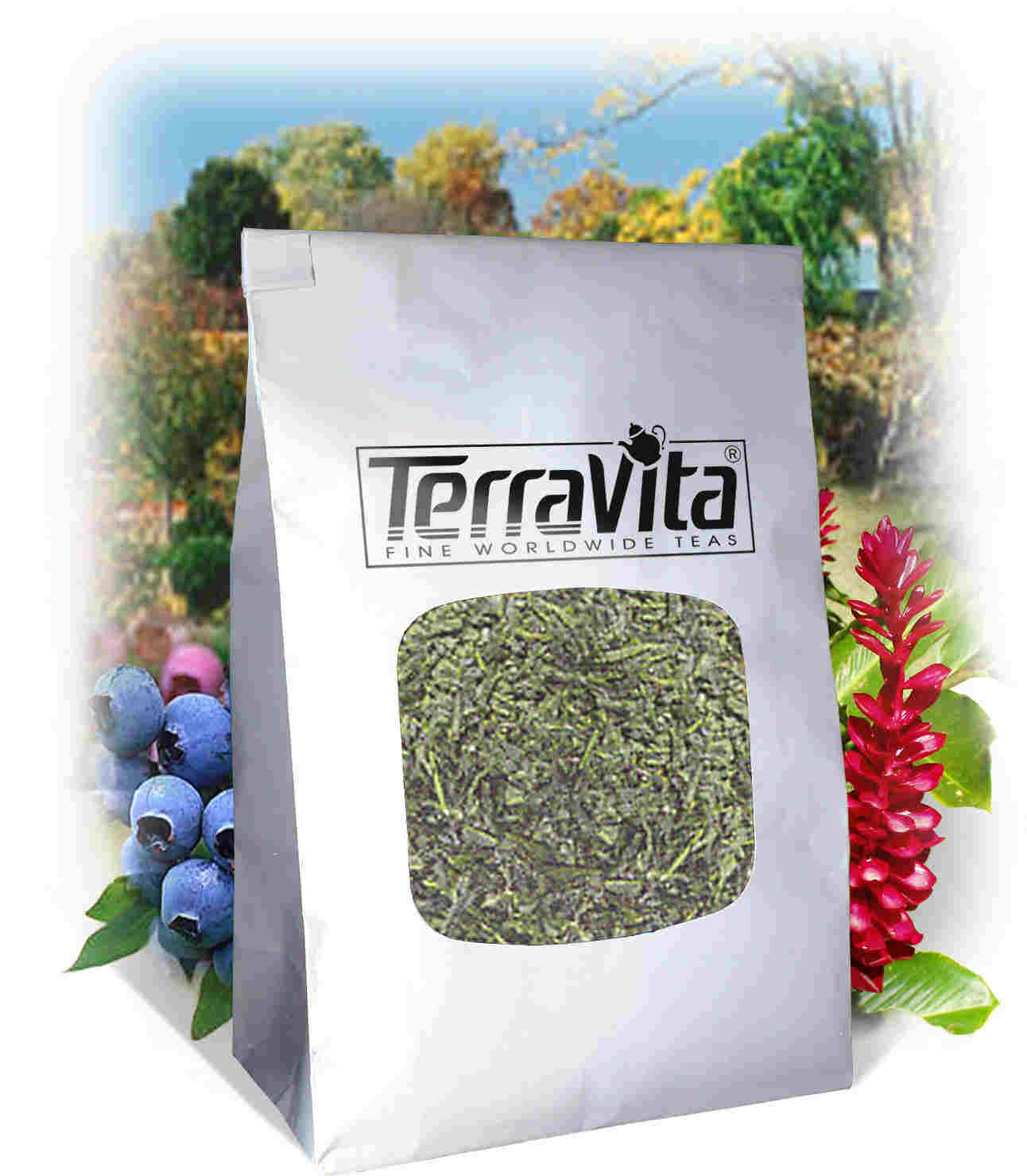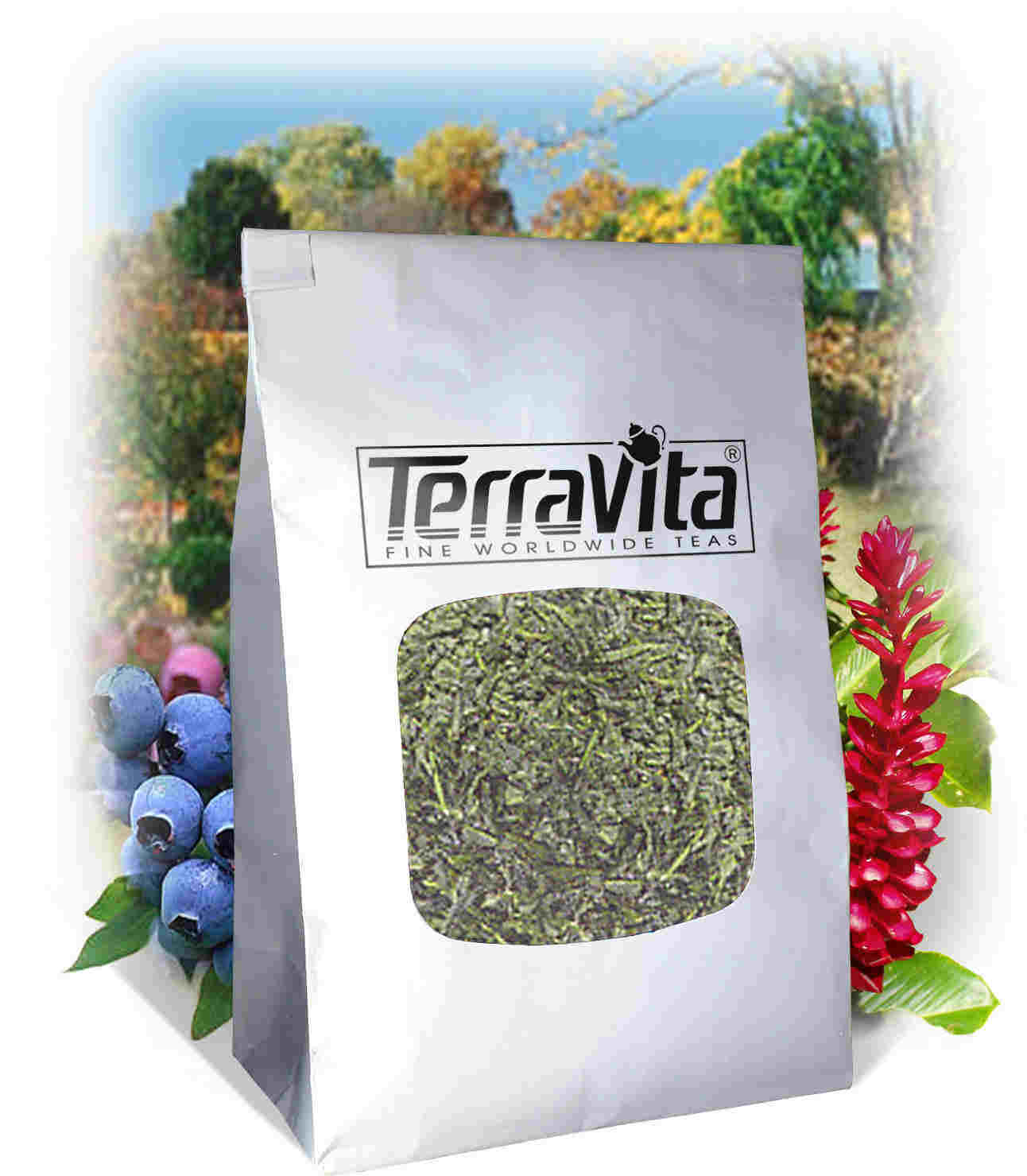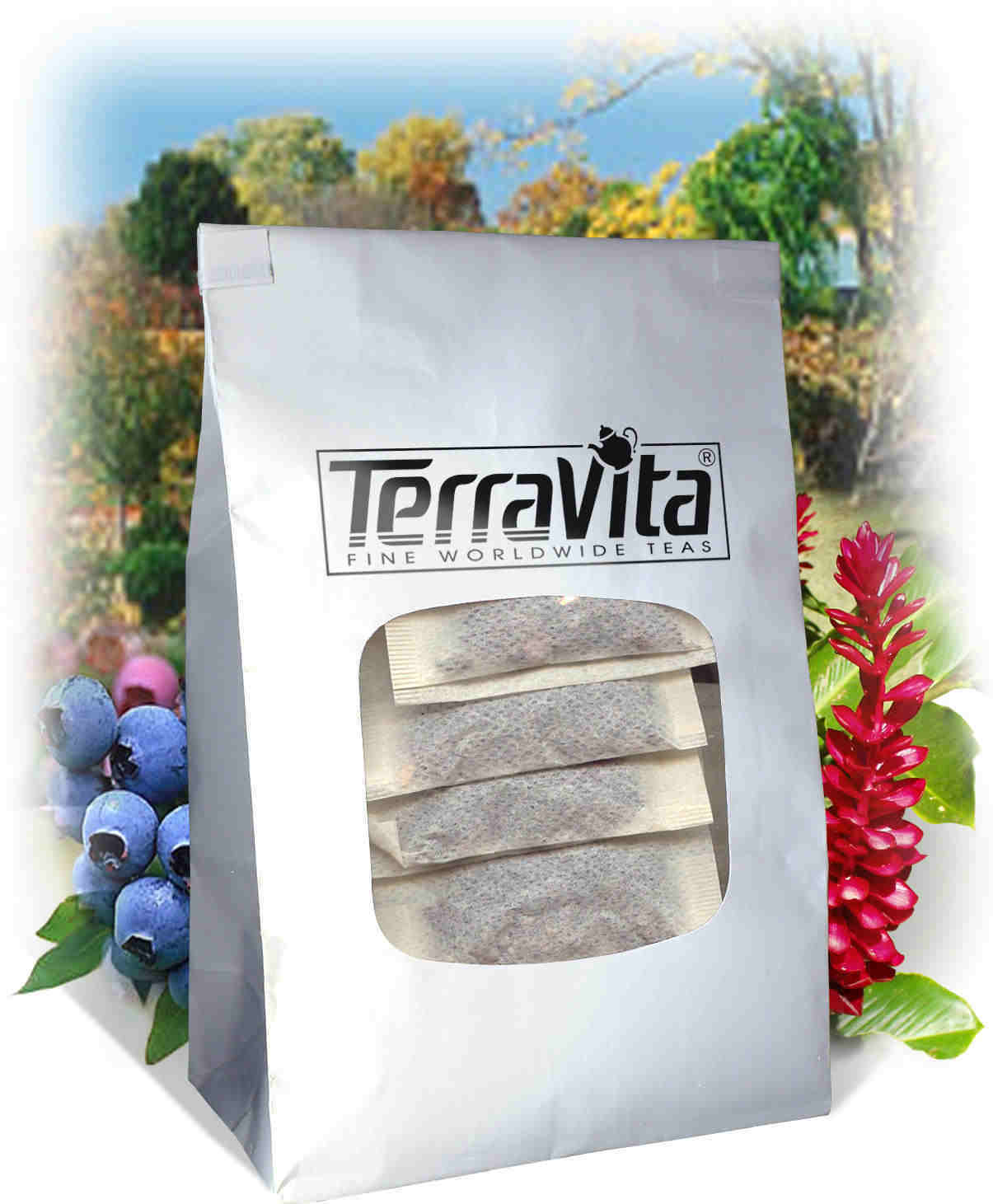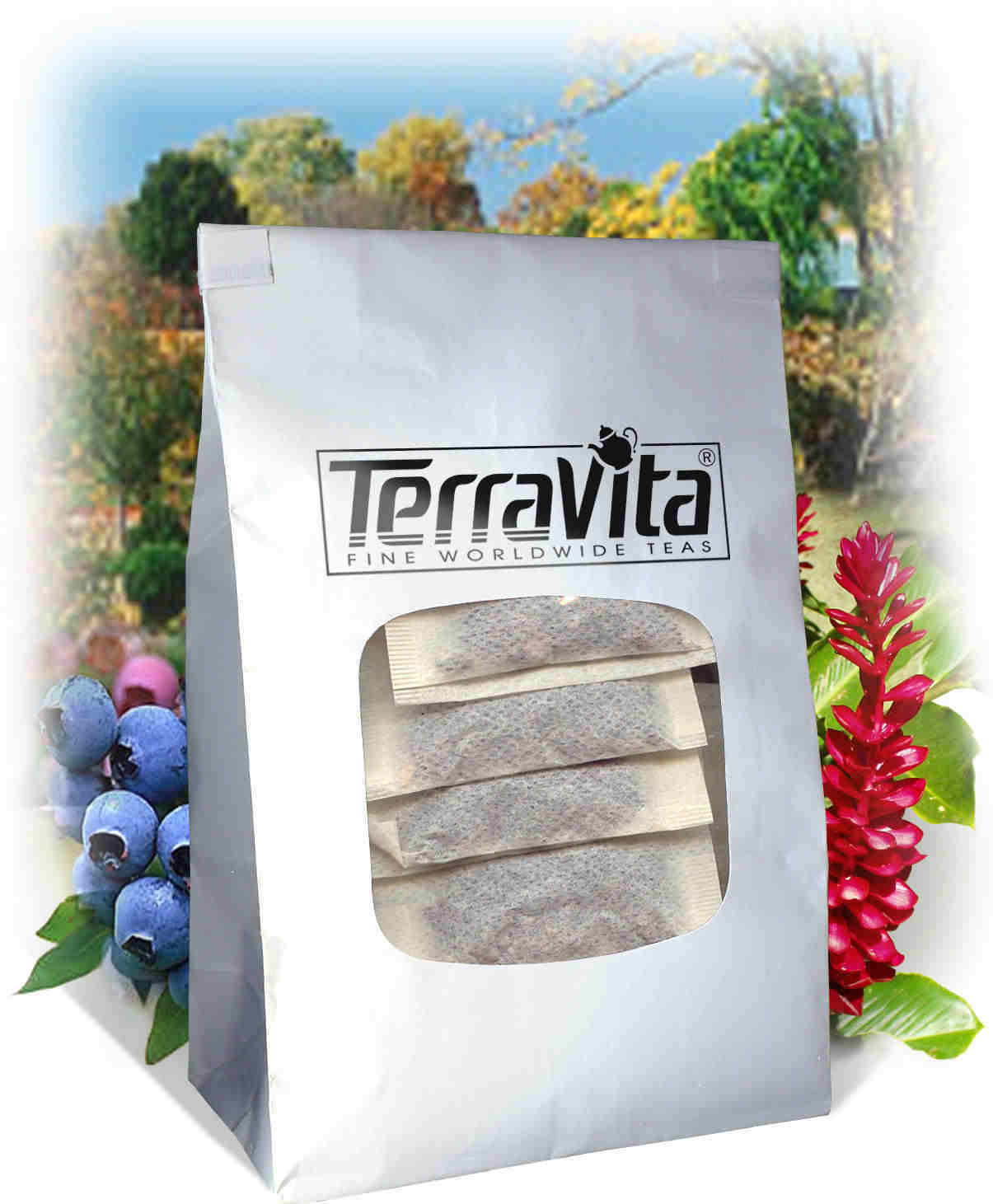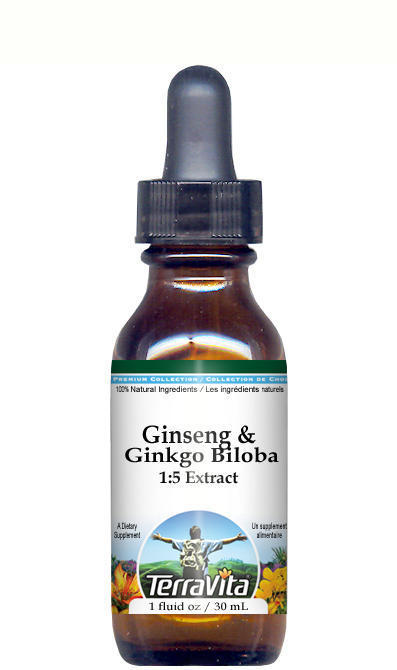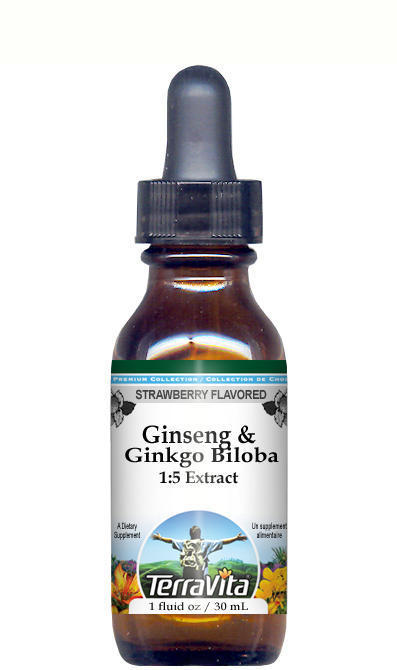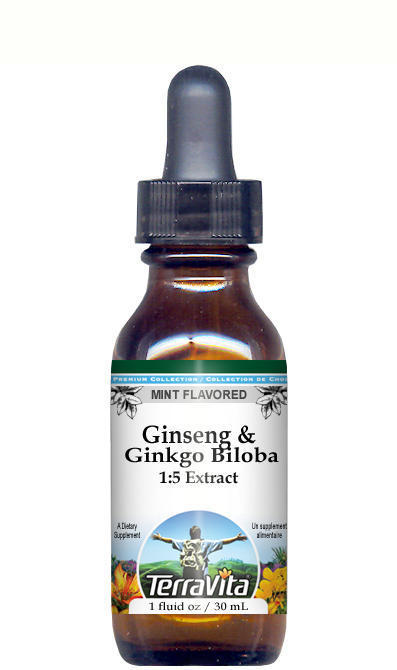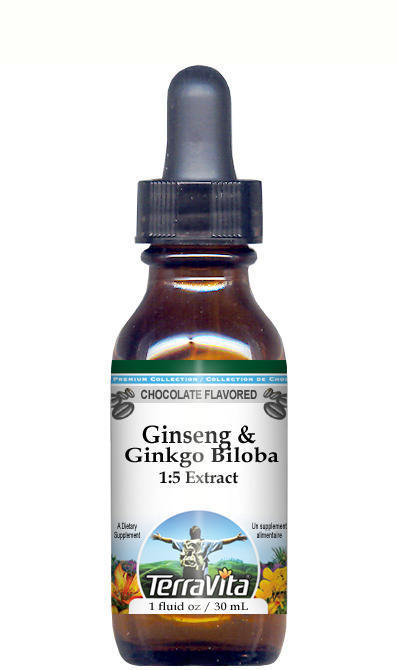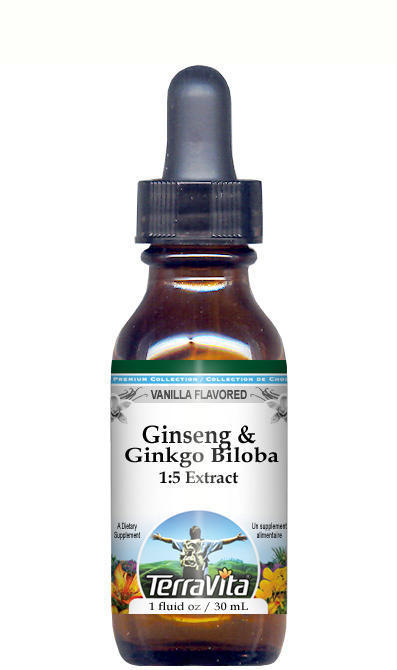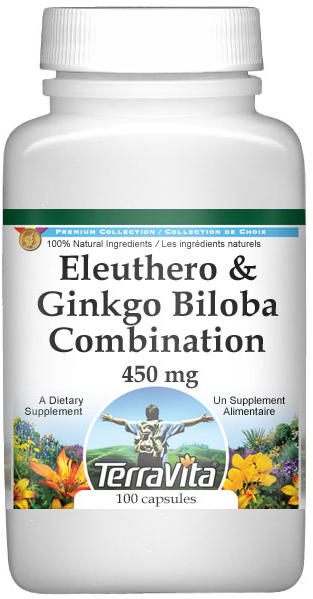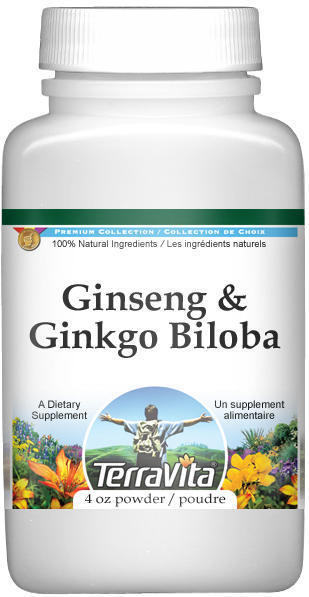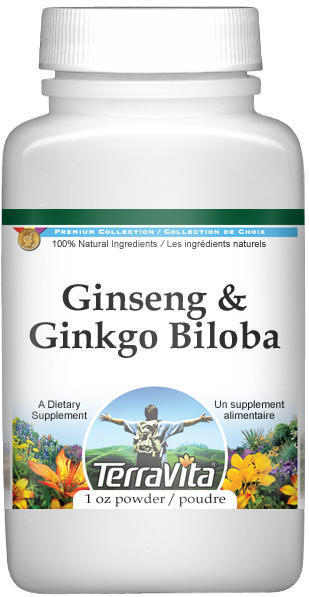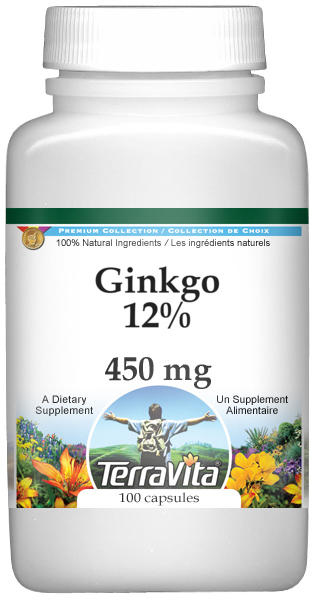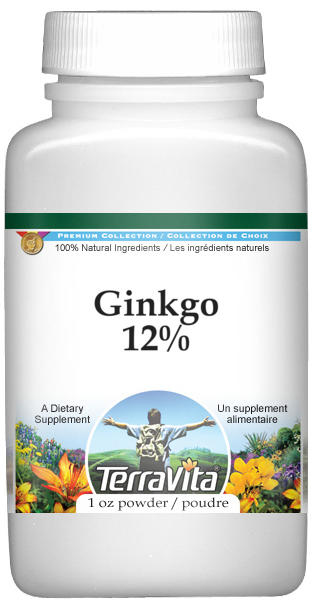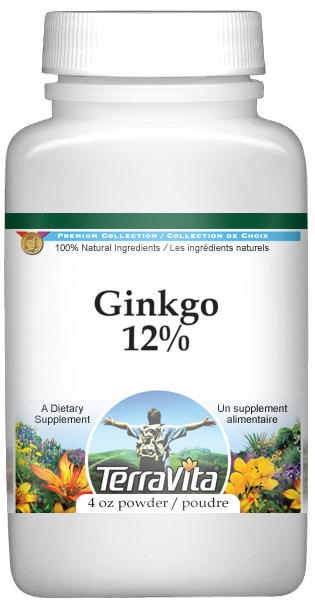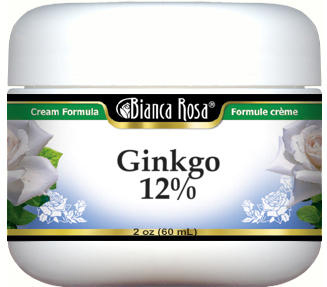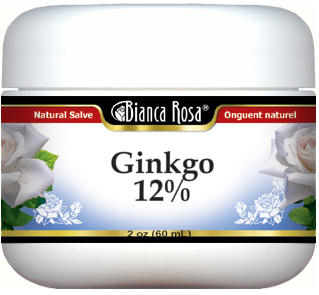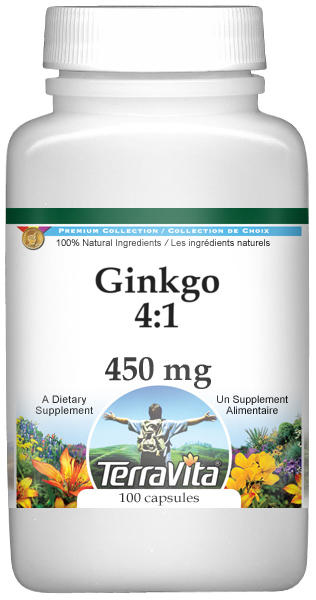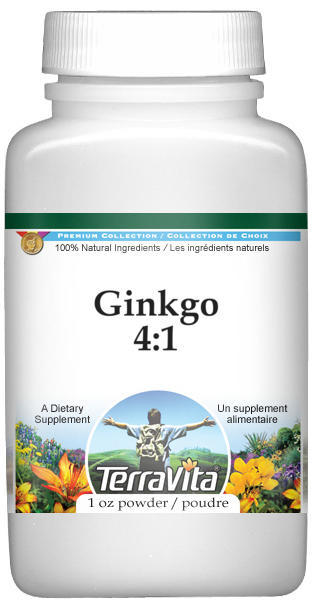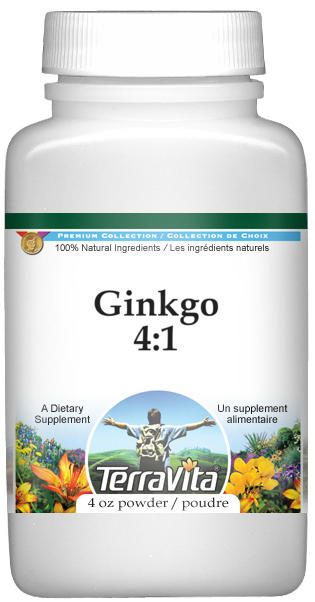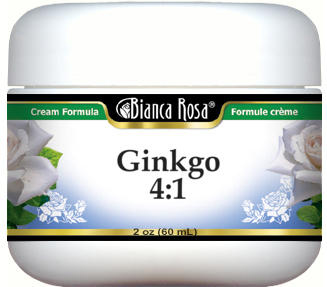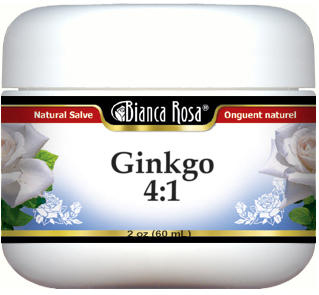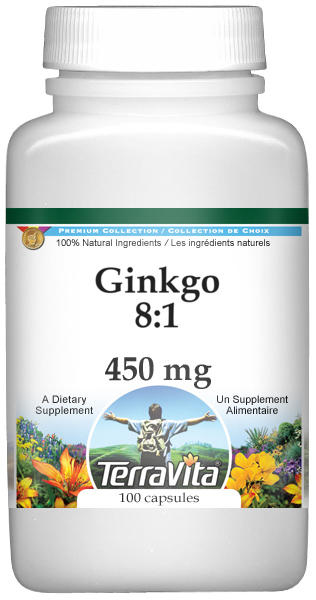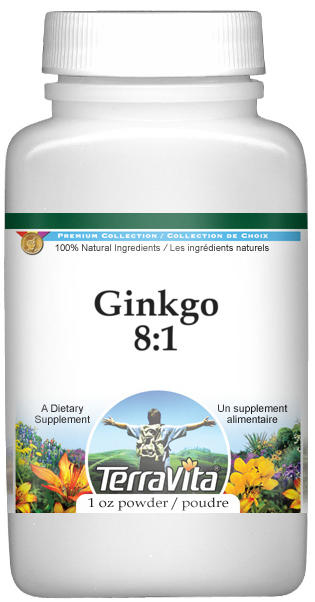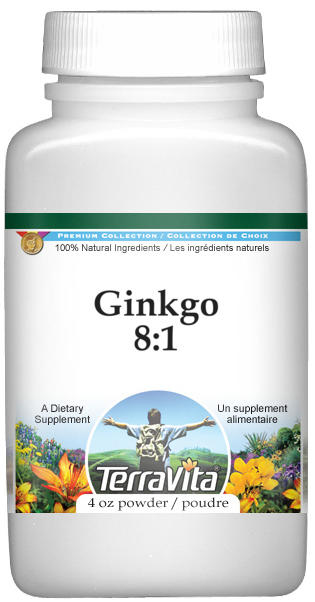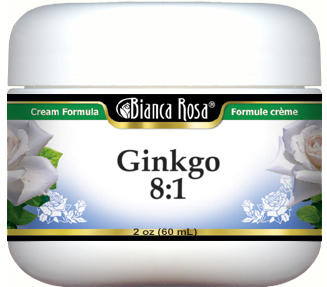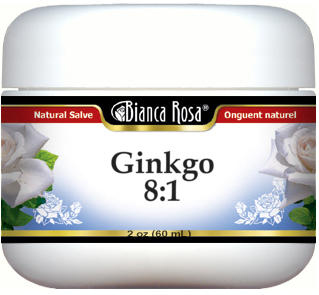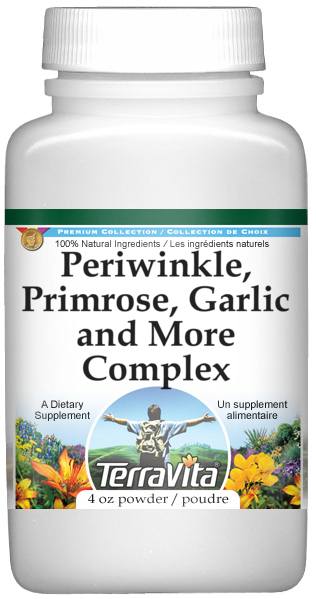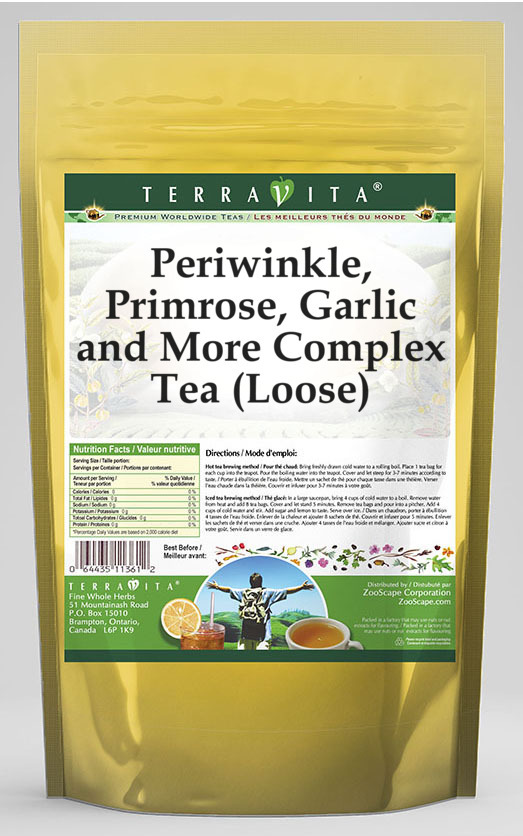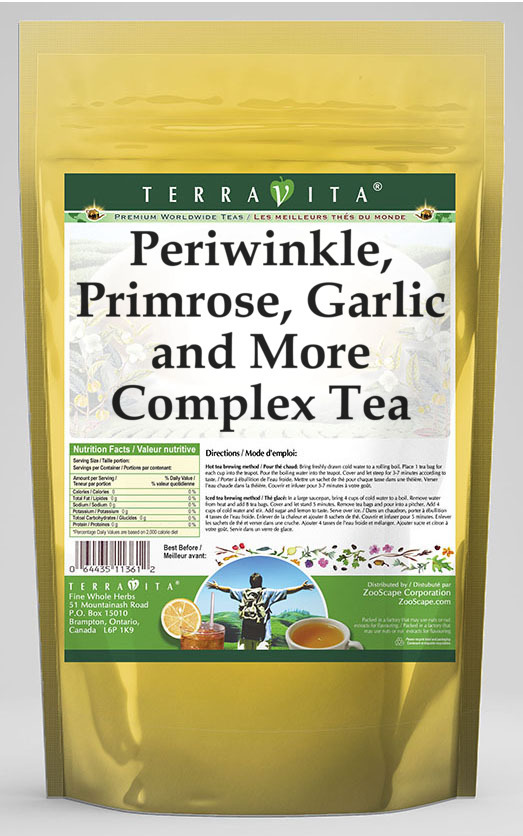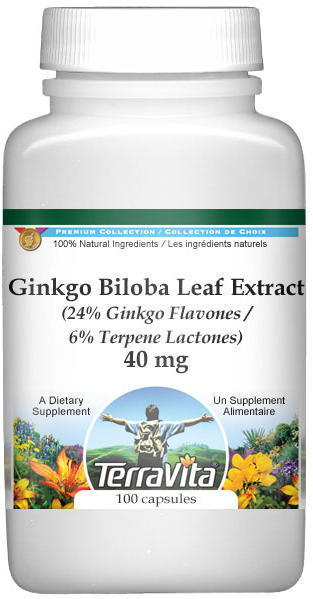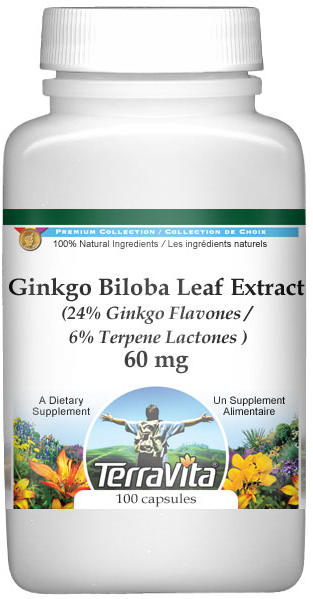Ginkgo Biloba
| Images | Product Name | Size | ZIN | Price | Quantity | Add to Cart |
| Ginkgo Biloba (Bai Guo Ye) Tea (Loose) | 4 oz | 427324 | $11.85 | |||
| 8 oz | 427327 | $17.43 | ||||
| Ginkgo Biloba Glycerite Liquid Extract (1:5) | 1 oz - No Flavor | 512779 | $18.44 | |||
| 1 oz - Strawberry | 512780 | $19.37 | ||||
| Ginkgo Biloba (Bai Guo Ye) Tea | 50 tea bags | 427322 | $25.44 | |||
| 25 tea bags | 427319 | $17.08 | ||||
| Ginkgo Biloba Glycerite Liquid Extract (1:5) | 1 oz - Mint | 513168 | $19.37 | |||
| 1 oz - Chocolate | 513169 | $19.37 | ||||
| 1 oz - Vanilla | 513170 | $19.37 | ||||
| St. John's Wort, Ginkgo and Pumpkin Blend - 450 mg | 100 capsules | 517549 | $23.02 | |||
| Ginkgo Biloba (Bai Guo Ye) Leaf - 450 mg | 100 capsules | 511300 | $20.60 | |||
| Ginkgo Biloba Leaf (Bai Guo Ye) Powder | 4 oz | 511301 | $15.47 | |||
| 1 oz | 511302 | $9.53 | ||||
| Ginkgo Biloba (Bai Guo Ye) Cream | 2 oz | 512777 | $28.48 | |||
| Ginkgo Biloba (Bai Guo Ye) - Salve Ointment | 2 oz | 512778 | $35.52 |
TerraVita is an exclusive line of premium-quality, natural source products that use only the finest, purest and most potent ingredients found around the world. TerraVita is hallmarked by the highest possible standards of purity, potency, stability and freshness. All of our products are prepared with the highest elements of quality control, from raw materials through the entire manufacturing process, up to and including the moment that the bottles or bags are sealed for freshness and shipped out to you. Our highest possible standards are certified by independent laboratories and backed by our personal guarantee.
TerraVita strives to make all of our products affordable and reliable and are constantly searching the market to maintain our affordability and to look for new ways to serve you and the ones you love. TerraVita has become a trusted household name for many families and can bring you and yours the very best herbal supplements, blends, teas and spices that are on the market today.
TerraVita is packed in tamper-proof, food-grade, recyclable containers.
ZooScape is proud to be the exclusive distributor of TerraVita teas, herbs and supplements in the United States, Canada and around the world. Please direct all wholesale and bulk inquiries to 1-844-449-0444.
Bianca Rosa is an exclusive line of premium-quality natural products sourced from only the finest and purest ingredients from around the world. Bianca Rosa is hallmarked by the highest possible standards of purity, stability and freshness. All Bianca Rosa products are prepared with the highest level of quality control, from the raw materials used through the entire manufacturing process, up to and including the moment that the finished product is sealed for freshness and shipped to you. Our highest possible standards backed by our personal guarantee.
Bianca Rosa makes all products as affordable as possible and we are constantly searching the market to maintain our affordability and to look for new ways to serve you. Bianca Rosa has been a trusted household name for many families throughout the world since the 1990s. Bianca Rosa is packed in tamper-proof, recyclable containers.
ZooScape is proud to be the exclusive distributor of all Bianca Rosa products, including creams, salves and oils in the United States, Canada and around the world. Please direct all wholesale and bulk inquiries to 1-844-449-0444.
These statements have not been evaluated by the Food and Drug Administration (FDA). Products are intended to support general well being and are not intended to treat, diagnose, prevent, or cure any condition or disease.
Guarana, Muira Puama, Eleuthero and More
| Images | Product Name | Size | ZIN | Price | Quantity | Add to Cart |
| Guarana, Muira Puama, Eleuthero and More - 450 mg | 100 capsules | 512038 | $24.98 | |||
| Guarana, Muira Puama, Eleuthero and More Powder | 4 oz | 512039 | $23.03 | |||
| 1 oz | 512040 | $11.62 | ||||
| Guarana, Muira Puama, Eleuthero and More Tea | 25 tea bags | 512043 | $22.45 | |||
| 50 tea bags | 512044 | $35.12 | ||||
| Guarana, Muira Puama, Eleuthero and More Tea (Loose) | 4 oz | 512041 | $20.26 | |||
| 8 oz | 512042 | $32.97 | ||||
| Maca, Muira Puama, Guarana, and More Formula Glycerite Liquid Extract (1:5) | 1 oz - No Flavor | 523531 | $20.94 | |||
| 1 oz - Strawberry | 523532 | $23.15 | ||||
| 1 oz - Vanilla | 523533 | $23.15 | ||||
| 1 oz - Chocolate | 523534 | $23.15 | ||||
| 1 oz - Mint | 523535 | $23.15 |
TerraVita strives to make all of our products affordable and reliable and are constantly searching the market to maintain our affordability and to look for new ways to serve you and the ones you love. TerraVita has become a trusted household name for many families and can bring you and yours the very best herbal supplements, blends, teas and spices that are on the market today.
TerraVita is packed in tamper-proof, food-grade, recyclable containers.
ZooScape is proud to be the exclusive distributor of TerraVita teas, herbs and supplements in the United States, Canada and around the world. Please direct all wholesale and bulk inquiries to 1-844-449-0444.
These statements have not been evaluated by the Food and Drug Administration (FDA). Products are intended to support general well being and are not intended to treat, diagnose, prevent, or cure any condition or disease.
Muira Puama, Schizandra, Eleuthero, Ginkgo Biloba Complex
| Images | Product Name | Size | ZIN | Price | Quantity | Add to Cart |
| Muira Puama, Schizandra, Eleuthero, Ginkgo Biloba Complex - 450 mg | 100 capsules | 511971 | $24.28 | |||
| Muira Puama, Schizandra, Eleuthero, Ginkgo Biloba Complex Powder | 4 oz | 511972 | $21.81 | |||
| 1 oz | 511973 | $11.28 | ||||
| Muira Puama, Schizandra, Eleuthero, Ginkgo Biloba Complex Tea (Loose) | 4 oz | 511974 | $19.26 | |||
| 8 oz | 511975 | $31.11 | ||||
| Muira Puama, Schizandra, Eleuthero, Ginkgo Biloba Complex Tea | 25 tea bags | 511976 | $21.79 | |||
| 50 tea bags | 511977 | $33.94 | ||||
| Eleuthero, Ginkgo, Muira and Schisandra Complex Glycerite Liquid Extract (1:5) | 1 oz - No Flavor | 523621 | $20.94 | |||
| 1 oz - Strawberry | 523622 | $23.15 | ||||
| 1 oz - Vanilla | 523623 | $23.15 | ||||
| 1 oz - Chocolate | 523624 | $23.15 | ||||
| 1 oz - Mint | 523625 | $23.15 |
TerraVita strives to make all of our products affordable and reliable and are constantly searching the market to maintain our affordability and to look for new ways to serve you and the ones you love. TerraVita has become a trusted household name for many families and can bring you and yours the very best herbal supplements, blends, teas and spices that are on the market today.
TerraVita is packed in tamper-proof, food-grade, recyclable containers.
ZooScape is proud to be the exclusive distributor of TerraVita teas, herbs and supplements in the United States, Canada and around the world. Please direct all wholesale and bulk inquiries to 1-844-449-0444.
These statements have not been evaluated by the Food and Drug Administration (FDA). Products are intended to support general well being and are not intended to treat, diagnose, prevent, or cure any condition or disease.
Ginkgo Biloba Leaf 4:1 Extract
| Images | Product Name | Size | ZIN | Price | Quantity | Add to Cart |
| Extra Strength Ginkgo Biloba Leaf 4:1 Extract - 450 mg | 100 capsules | 514331 | $26.47 | |||
| Extra Strength Ginkgo Biloba Leaf 4:1 Extract Powder | 4 oz | 514332 | $26.19 | |||
| 1 oz | 514333 | $11.98 | ||||
| Extra Strength Ginkgo Biloba Leaf 4:1 Extract Cream | 2 oz | 514336 | $26.93 | |||
| Extra Strength Ginkgo Biloba Leaf 4:1 Extract - Salve Ointment | 2 oz | 514337 | $31.91 |
TerraVita strives to make all of our products affordable and reliable and are constantly searching the market to maintain our affordability and to look for new ways to serve you and the ones you love. TerraVita has become a trusted household name for many families and can bring you and yours the very best herbal supplements, blends, teas and spices that are on the market today.
TerraVita is packed in tamper-proof, food-grade, recyclable containers.
ZooScape is proud to be the exclusive distributor of TerraVita teas, herbs and supplements in the United States, Canada and around the world. Please direct all wholesale and bulk inquiries to 1-844-449-0444.
Bianca Rosa is an exclusive line of premium-quality natural products sourced from only the finest and purest ingredients from around the world. Bianca Rosa is hallmarked by the highest possible standards of purity, stability and freshness. All Bianca Rosa products are prepared with the highest level of quality control, from the raw materials used through the entire manufacturing process, up to and including the moment that the finished product is sealed for freshness and shipped to you. Our highest possible standards backed by our personal guarantee.
Bianca Rosa makes all products as affordable as possible and we are constantly searching the market to maintain our affordability and to look for new ways to serve you. Bianca Rosa has been a trusted household name for many families throughout the world since the 1990s. Bianca Rosa is packed in tamper-proof, recyclable containers.
ZooScape is proud to be the exclusive distributor of all Bianca Rosa products, including creams, salves and oils in the United States, Canada and around the world. Please direct all wholesale and bulk inquiries to 1-844-449-0444.
These statements have not been evaluated by the Food and Drug Administration (FDA). Products are intended to support general well being and are not intended to treat, diagnose, prevent, or cure any condition or disease.
Ginkgo Biloba Leaf Extract
(2% Ginkgo Flavones)
| Images | Product Name | Size | ZIN | Price | Quantity | Add to Cart |
| Ginkgo Biloba Leaf Extract (2% Ginkgo Flavones) - 450 mg | 100 capsules | 514339 | $37.06 | |||
| Ginkgo Biloba Leaf Extract (2% Ginkgo Flavones) Powder | 4 oz | 514340 | $43.67 | |||
| 1 oz | 514341 | $16.87 | ||||
| Ginkgo Biloba Leaf Extract (2% Ginkgo Flavones) Cream | 2 oz | 514344 | $27.71 | |||
| Ginkgo Biloba Leaf Extract (2% Ginkgo Flavones) - Salve Ointment | 2 oz | 514345 | $32.42 |
TerraVita strives to make all of our products affordable and reliable and are constantly searching the market to maintain our affordability and to look for new ways to serve you and the ones you love. TerraVita has become a trusted household name for many families and can bring you and yours the very best herbal supplements, blends, teas and spices that are on the market today.
TerraVita is packed in tamper-proof, food-grade, recyclable containers.
ZooScape is proud to be the exclusive distributor of TerraVita teas, herbs and supplements in the United States, Canada and around the world. Please direct all wholesale and bulk inquiries to 1-844-449-0444.
Bianca Rosa is an exclusive line of premium-quality natural products sourced from only the finest and purest ingredients from around the world. Bianca Rosa is hallmarked by the highest possible standards of purity, stability and freshness. All Bianca Rosa products are prepared with the highest level of quality control, from the raw materials used through the entire manufacturing process, up to and including the moment that the finished product is sealed for freshness and shipped to you. Our highest possible standards backed by our personal guarantee.
Bianca Rosa makes all products as affordable as possible and we are constantly searching the market to maintain our affordability and to look for new ways to serve you. Bianca Rosa has been a trusted household name for many families throughout the world since the 1990s. Bianca Rosa is packed in tamper-proof, recyclable containers.
ZooScape is proud to be the exclusive distributor of all Bianca Rosa products, including creams, salves and oils in the United States, Canada and around the world. Please direct all wholesale and bulk inquiries to 1-844-449-0444.
These statements have not been evaluated by the Food and Drug Administration (FDA). Products are intended to support general well being and are not intended to treat, diagnose, prevent, or cure any condition or disease.
Ginkgo Biloba Leaf Extract
(24% Ginkgo Flavones, 6% Terpene)
| Images | Product Name | Size | ZIN | Price | Quantity | Add to Cart |
| Ginkgo Biloba Leaf Extract (24% Ginkgo Flavones, 6% Terpene Lactones) Powder | 4 oz | 514348 | $43.67 | |||
| 1 oz | 514349 | $16.87 | ||||
| Ginkgo Biloba Leaf Extract (24% Ginkgo Flavones) Cream | 2 oz | 514352 | $27.71 | |||
| Ginkgo Biloba Leaf Extract (24% Ginkgo Flavones) - Salve Ointment | 2 oz | 514353 | $32.42 |
TerraVita strives to make all of our products affordable and reliable and are constantly searching the market to maintain our affordability and to look for new ways to serve you and the ones you love. TerraVita has become a trusted household name for many families and can bring you and yours the very best herbal supplements, blends, teas and spices that are on the market today.
TerraVita is packed in tamper-proof, food-grade, recyclable containers.
ZooScape is proud to be the exclusive distributor of TerraVita teas, herbs and supplements in the United States, Canada and around the world. Please direct all wholesale and bulk inquiries to 1-844-449-0444.
Bianca Rosa is an exclusive line of premium-quality natural products sourced from only the finest and purest ingredients from around the world. Bianca Rosa is hallmarked by the highest possible standards of purity, stability and freshness. All Bianca Rosa products are prepared with the highest level of quality control, from the raw materials used through the entire manufacturing process, up to and including the moment that the finished product is sealed for freshness and shipped to you. Our highest possible standards backed by our personal guarantee.
Bianca Rosa makes all products as affordable as possible and we are constantly searching the market to maintain our affordability and to look for new ways to serve you. Bianca Rosa has been a trusted household name for many families throughout the world since the 1990s. Bianca Rosa is packed in tamper-proof, recyclable containers.
ZooScape is proud to be the exclusive distributor of all Bianca Rosa products, including creams, salves and oils in the United States, Canada and around the world. Please direct all wholesale and bulk inquiries to 1-844-449-0444.
These statements have not been evaluated by the Food and Drug Administration (FDA). Products are intended to support general well being and are not intended to treat, diagnose, prevent, or cure any condition or disease.
Ginkgo and Hawthorn Formula
| Images | Product Name | Size | ZIN | Price | Quantity | Add to Cart |
| Ginkgo and Hawthorn Formula - 450 mg | 100 capsules | 514013 | $23.43 | |||
| Ginkgo and Hawthorn Formula Powder | 4 oz | 514014 | $20.35 | |||
| 1 oz | 514015 | $10.89 | ||||
| Ginkgo and Hawthorn Formula Cream | 2 oz | 524321 | $22.45 | |||
| Ginkgo and Hawthorn Formula Salve | 2 oz | 524322 | $24.62 | |||
| Ginkgo and Hawthorn Formula Tea (Loose) | 4 oz | 514016 | $15.12 | |||
| 8 oz | 514017 | $23.48 | ||||
| Ginkgo and Hawthorn Formula Tea | 25 tea bags | 514018 | $19.16 | |||
| 50 tea bags | 514019 | $29.20 | ||||
| Ginkgo and Hawthorn Formula Glycerite Liquid Extract (1:5) | 1 oz - No Flavor | 523741 | $20.94 | |||
| 1 oz - Strawberry | 523742 | $23.15 | ||||
| 1 oz - Vanilla | 523743 | $23.15 | ||||
| 1 oz - Chocolate | 523744 | $23.15 | ||||
| 1 oz - Mint | 523745 | $23.15 |
TerraVita strives to make all of our products affordable and reliable and are constantly searching the market to maintain our affordability and to look for new ways to serve you and the ones you love. TerraVita has become a trusted household name for many families and can bring you and yours the very best herbal supplements, blends, teas and spices that are on the market today.
TerraVita is packed in tamper-proof, food-grade, recyclable containers.
ZooScape is proud to be the exclusive distributor of TerraVita teas, herbs and supplements in the United States, Canada and around the world. Please direct all wholesale and bulk inquiries to 1-844-449-0444.
Bianca Rosa is an exclusive line of premium-quality natural products sourced from only the finest and purest ingredients from around the world. Bianca Rosa is hallmarked by the highest possible standards of purity, stability and freshness. All Bianca Rosa products are prepared with the highest level of quality control, from the raw materials used through the entire manufacturing process, up to and including the moment that the finished product is sealed for freshness and shipped to you. Our highest possible standards backed by our personal guarantee.
Bianca Rosa makes all products as affordable as possible and we are constantly searching the market to maintain our affordability and to look for new ways to serve you. Bianca Rosa has been a trusted household name for many families throughout the world since the 1990s. Bianca Rosa is packed in tamper-proof, recyclable containers.
ZooScape is proud to be the exclusive distributor of all Bianca Rosa products, including creams, salves and oils in the United States, Canada and around the world. Please direct all wholesale and bulk inquiries to 1-844-449-0444.
These statements have not been evaluated by the Food and Drug Administration (FDA). Products are intended to support general well being and are not intended to treat, diagnose, prevent, or cure any condition or disease.
Ginseng, Green, Ginkgo, and Garlic Complex
| Images | Product Name | Size | ZIN | Price | Quantity | Add to Cart |
| Ginseng, Green Tea, Ginkgo, and Garlic Complex - 450 mg | 100 capsules | 517066 | $23.51 | |||
| Ginseng, Green Tea, Ginkgo, and Garlic Complex Powder | 4 oz | 517067 | $21.33 | |||
| 1 oz | 517068 | $10.61 | ||||
| Ginseng, Green Tea, Ginkgo, and Garlic Complex Cream | 2 oz | 524267 | $22.45 | |||
| Ginseng, Green Tea, Ginkgo, and Garlic Complex Salve | 2 oz | 524268 | $24.62 | |||
| Ginseng, Green Tea, Ginkgo, and Garlic Complex Tea (Loose) | 4 oz | 517069 | $31.31 | |||
| 8 oz | 517070 | $53.34 | ||||
| Ginseng, Green Tea, Ginkgo, and Garlic Complex Tea | 25 tea bags | 517071 | $29.16 | |||
| 50 tea bags | 517072 | $47.20 | ||||
| Ginseng, Green Tea, Ginkgo, and Garlic Complex Glycerite Liquid Extract (1:5) | 1 oz - No Flavor | 523436 | $20.94 | |||
| 1 oz - Strawberry | 523437 | $23.15 | ||||
| 1 oz - Vanilla | 523438 | $23.15 | ||||
| 1 oz - Chocolate | 523439 | $23.15 | ||||
| 1 oz - Mint | 523440 | $23.15 |
TerraVita strives to make all of our products affordable and reliable and are constantly searching the market to maintain our affordability and to look for new ways to serve you and the ones you love. TerraVita has become a trusted household name for many families and can bring you and yours the very best herbal supplements, blends, teas and spices that are on the market today.
TerraVita is packed in tamper-proof, food-grade, recyclable containers.
ZooScape is proud to be the exclusive distributor of TerraVita teas, herbs and supplements in the United States, Canada and around the world. Please direct all wholesale and bulk inquiries to 1-844-449-0444.
Bianca Rosa is an exclusive line of premium-quality natural products sourced from only the finest and purest ingredients from around the world. Bianca Rosa is hallmarked by the highest possible standards of purity, stability and freshness. All Bianca Rosa products are prepared with the highest level of quality control, from the raw materials used through the entire manufacturing process, up to and including the moment that the finished product is sealed for freshness and shipped to you. Our highest possible standards backed by our personal guarantee.
Bianca Rosa makes all products as affordable as possible and we are constantly searching the market to maintain our affordability and to look for new ways to serve you. Bianca Rosa has been a trusted household name for many families throughout the world since the 1990s. Bianca Rosa is packed in tamper-proof, recyclable containers.
ZooScape is proud to be the exclusive distributor of all Bianca Rosa products, including creams, salves and oils in the United States, Canada and around the world. Please direct all wholesale and bulk inquiries to 1-844-449-0444.
These statements have not been evaluated by the Food and Drug Administration (FDA). Products are intended to support general well being and are not intended to treat, diagnose, prevent, or cure any condition or disease.
Periwinkle, Ginkgo Biloba and Sage Blend
| Images | Product Name | Size | ZIN | Price | Quantity | Add to Cart |
| Periwinkle, Ginkgo Biloba and Sage Blend - 450 mg | 100 capsules | 517195 | $22.45 | |||
| Periwinkle, Ginkgo Biloba and Sage Blend Powder | 4 oz | 517196 | $18.65 | |||
| 1 oz | 517197 | $10.41 | ||||
| Periwinkle, Ginkgo Biloba and Sage Blend Tea (Loose) | 4 oz | 517198 | $15.99 | |||
| 8 oz | 517199 | $25.08 | ||||
| Periwinkle, Ginkgo Biloba and Sage Blend Tea | 25 tea bags | 517200 | $19.72 | |||
| 50 tea bags | 517201 | $30.19 | ||||
| Periwinkle, Ginkgo Biloba and Sage Blend Glycerite Liquid Extract (1:5) | 1 oz - No Flavor | 523626 | $20.94 | |||
| 1 oz - Strawberry | 523627 | $23.15 | ||||
| 1 oz - Vanilla | 523628 | $23.15 | ||||
| 1 oz - Chocolate | 523629 | $23.15 | ||||
| 1 oz - Mint | 523630 | $23.15 |
TerraVita strives to make all of our products affordable and reliable and are constantly searching the market to maintain our affordability and to look for new ways to serve you and the ones you love. TerraVita has become a trusted household name for many families and can bring you and yours the very best herbal supplements, blends, teas and spices that are on the market today.
TerraVita is packed in tamper-proof, food-grade, recyclable containers.
ZooScape is proud to be the exclusive distributor of TerraVita teas, herbs and supplements in the United States, Canada and around the world. Please direct all wholesale and bulk inquiries to 1-844-449-0444.
These statements have not been evaluated by the Food and Drug Administration (FDA). Products are intended to support general well being and are not intended to treat, diagnose, prevent, or cure any condition or disease.
Ginkgo, Cat's Claw, Rosemary and More
| Images | Product Name | Size | ZIN | Price | Quantity | Add to Cart |
| Ginkgo, Cat's Claw, Rosemary and More Powder | 4 oz | 517060 | $19.34 | |||
| 1 oz | 517061 | $10.61 | ||||
| Ginkgo, Cat's Claw, Rosemary and More - 450 mg | 100 capsules | 517059 | $22.84 | |||
| Ginkgo, Cat's Claw, Rosemary and More Tea (Loose) | 4 oz | 517062 | $15.94 | |||
| 8 oz | 517063 | $24.98 | ||||
| Ginkgo, Cat's Claw, Rosemary and More Tea | 25 tea bags | 517064 | $19.68 | |||
| 50 tea bags | 517065 | $30.15 | ||||
| Ginkgo, Cat's Claw, Rosemary and More Glycerite Liquid Extract (1:5) | 1 oz - No Flavor | 523506 | $20.94 | |||
| 1 oz - Strawberry | 523507 | $23.15 | ||||
| 1 oz - Vanilla | 523508 | $23.15 | ||||
| 1 oz - Chocolate | 523509 | $23.15 | ||||
| 1 oz - Mint | 523510 | $23.15 |
TerraVita strives to make all of our products affordable and reliable and are constantly searching the market to maintain our affordability and to look for new ways to serve you and the ones you love. TerraVita has become a trusted household name for many families and can bring you and yours the very best herbal supplements, blends, teas and spices that are on the market today.
TerraVita is packed in tamper-proof, food-grade, recyclable containers.
ZooScape is proud to be the exclusive distributor of TerraVita teas, herbs and supplements in the United States, Canada and around the world. Please direct all wholesale and bulk inquiries to 1-844-449-0444.
These statements have not been evaluated by the Food and Drug Administration (FDA). Products are intended to support general well being and are not intended to treat, diagnose, prevent, or cure any condition or disease.
Eleuthero and Ginkgo
| Images | Product Name | Size | ZIN | Price | Quantity | Add to Cart |
| Eleuthero and Ginkgo Biloba Combination Tea (Loose) | 4 oz | 516390 | $15.15 | |||
| 8 oz | 516391 | $23.54 | ||||
| Eleuthero and Ginkgo Biloba Combination Tea | 25 tea bags | 516392 | $19.19 | |||
| 50 tea bags | 516393 | $29.25 | ||||
| Eleuthero and Ginkgo Combination - Glycerite Liquid Extract (1:5) Alcohol-Free | 1 oz | 516394 | $18.57 | |||
| Eleuthero and Ginkgo Combination - Glycerite Liquid Extract (1:5) Strawberry Flavored Alcohol-Free | 1 oz - Strawberry | 516395 | $19.50 | |||
| Eleuthero and Ginkgo Combination - Glycerite Liquid Extract (1:5) Mint Flavored Alcohol-Free | 1 oz - Mint | 516396 | $19.50 | |||
| Eleuthero and Ginkgo Combination - Glycerite Liquid Extract (1:5) Chocolate Flavored Alcohol-Free | 1 oz - Chocolate | 516397 | $19.50 | |||
| Eleuthero and Ginkgo Combination - Glycerite Liquid Extract (1:5) Vanilla Flavored Alcohol-Free | 1 oz - Vanilla | 516398 | $19.50 | |||
| Eleuthero and Ginkgo Biloba Combination - 450 mg | 100 capsules | 516387 | $21.29 | |||
| Eleuthero and Ginkgo Biloba Combination Powder | 4 oz | 516388 | $21.91 | |||
| 1 oz | 516389 | $13.01 |
TerraVita strives to make all of our products affordable and reliable and are constantly searching the market to maintain our affordability and to look for new ways to serve you and the ones you love. TerraVita has become a trusted household name for many families and can bring you and yours the very best herbal supplements, blends, teas and spices that are on the market today.
TerraVita is packed in tamper-proof, food-grade, recyclable containers.
ZooScape is proud to be the exclusive distributor of TerraVita teas, herbs and supplements in the United States, Canada and around the world. Please direct all wholesale and bulk inquiries to 1-844-449-0444.
These statements have not been evaluated by the Food and Drug Administration (FDA). Products are intended to support general well being and are not intended to treat, diagnose, prevent, or cure any condition or disease.
Ginkgo 12% Extract
| Images | Product Name | Size | ZIN | Price | Quantity | Add to Cart |
| Ginkgo 12% - 450 mg | 100 capsules | 520207 | $178.68 | |||
| Ginkgo 12% Powder | 1 oz | 520208 | $78.50 | |||
| 4 oz | 520209 | $166.05 | ||||
| Ginkgo 12% Cream | 2 oz | 520210 | $246.54 | |||
| Ginkgo 12% Salve | 2 oz | 520211 | $270.48 |
TerraVita strives to make all of our products affordable and reliable and are constantly searching the market to maintain our affordability and to look for new ways to serve you and the ones you love. TerraVita has become a trusted household name for many families and can bring you and yours the very best herbal supplements, blends, teas and spices that are on the market today.
TerraVita is packed in tamper-proof, food-grade, recyclable containers.
ZooScape is proud to be the exclusive distributor of TerraVita teas, herbs and supplements in the United States, Canada and around the world. Please direct all wholesale and bulk inquiries to 1-844-449-0444.
Bianca Rosa is an exclusive line of premium-quality natural products sourced from only the finest and purest ingredients from around the world. Bianca Rosa is hallmarked by the highest possible standards of purity, stability and freshness. All Bianca Rosa products are prepared with the highest level of quality control, from the raw materials used through the entire manufacturing process, up to and including the moment that the finished product is sealed for freshness and shipped to you. Our highest possible standards backed by our personal guarantee.
Bianca Rosa makes all products as affordable as possible and we are constantly searching the market to maintain our affordability and to look for new ways to serve you. Bianca Rosa has been a trusted household name for many families throughout the world since the 1990s. Bianca Rosa is packed in tamper-proof, recyclable containers.
ZooScape is proud to be the exclusive distributor of all Bianca Rosa products, including creams, salves and oils in the United States, Canada and around the world. Please direct all wholesale and bulk inquiries to 1-844-449-0444.
These statements have not been evaluated by the Food and Drug Administration (FDA). Products are intended to support general well being and are not intended to treat, diagnose, prevent, or cure any condition or disease.
Ginkgo 4:1 Extract
| Images | Product Name | Size | ZIN | Price | Quantity | Add to Cart |
| Ginkgo 4:1 - 450 mg | 100 capsules | 520212 | $27.60 | |||
| Ginkgo 4:1 Powder | 1 oz | 520213 | $12.11 | |||
| 4 oz | 520214 | $25.63 | ||||
| Ginkgo 4:1 Cream | 2 oz | 520215 | $38.07 | |||
| Ginkgo 4:1 Salve | 2 oz | 520216 | $41.75 |
TerraVita strives to make all of our products affordable and reliable and are constantly searching the market to maintain our affordability and to look for new ways to serve you and the ones you love. TerraVita has become a trusted household name for many families and can bring you and yours the very best herbal supplements, blends, teas and spices that are on the market today.
TerraVita is packed in tamper-proof, food-grade, recyclable containers.
ZooScape is proud to be the exclusive distributor of TerraVita teas, herbs and supplements in the United States, Canada and around the world. Please direct all wholesale and bulk inquiries to 1-844-449-0444.
Bianca Rosa is an exclusive line of premium-quality natural products sourced from only the finest and purest ingredients from around the world. Bianca Rosa is hallmarked by the highest possible standards of purity, stability and freshness. All Bianca Rosa products are prepared with the highest level of quality control, from the raw materials used through the entire manufacturing process, up to and including the moment that the finished product is sealed for freshness and shipped to you. Our highest possible standards backed by our personal guarantee.
Bianca Rosa makes all products as affordable as possible and we are constantly searching the market to maintain our affordability and to look for new ways to serve you. Bianca Rosa has been a trusted household name for many families throughout the world since the 1990s. Bianca Rosa is packed in tamper-proof, recyclable containers.
ZooScape is proud to be the exclusive distributor of all Bianca Rosa products, including creams, salves and oils in the United States, Canada and around the world. Please direct all wholesale and bulk inquiries to 1-844-449-0444.
These statements have not been evaluated by the Food and Drug Administration (FDA). Products are intended to support general well being and are not intended to treat, diagnose, prevent, or cure any condition or disease.
Ginkgo 8:1 Extract
| Images | Product Name | Size | ZIN | Price | Quantity | Add to Cart |
| Ginkgo 8:1 - 450 mg | 100 capsules | 520217 | $58.72 | |||
| Ginkgo 8:1 Powder | 1 oz | 520218 | $25.80 | |||
| 4 oz | 520219 | $54.57 | ||||
| Ginkgo 8:1 Cream | 2 oz | 520220 | $81.04 | |||
| Ginkgo 8:1 Salve | 2 oz | 520221 | $88.90 |
TerraVita strives to make all of our products affordable and reliable and are constantly searching the market to maintain our affordability and to look for new ways to serve you and the ones you love. TerraVita has become a trusted household name for many families and can bring you and yours the very best herbal supplements, blends, teas and spices that are on the market today.
TerraVita is packed in tamper-proof, food-grade, recyclable containers.
ZooScape is proud to be the exclusive distributor of TerraVita teas, herbs and supplements in the United States, Canada and around the world. Please direct all wholesale and bulk inquiries to 1-844-449-0444.
Bianca Rosa is an exclusive line of premium-quality natural products sourced from only the finest and purest ingredients from around the world. Bianca Rosa is hallmarked by the highest possible standards of purity, stability and freshness. All Bianca Rosa products are prepared with the highest level of quality control, from the raw materials used through the entire manufacturing process, up to and including the moment that the finished product is sealed for freshness and shipped to you. Our highest possible standards backed by our personal guarantee.
Bianca Rosa makes all products as affordable as possible and we are constantly searching the market to maintain our affordability and to look for new ways to serve you. Bianca Rosa has been a trusted household name for many families throughout the world since the 1990s. Bianca Rosa is packed in tamper-proof, recyclable containers.
ZooScape is proud to be the exclusive distributor of all Bianca Rosa products, including creams, salves and oils in the United States, Canada and around the world. Please direct all wholesale and bulk inquiries to 1-844-449-0444.
These statements have not been evaluated by the Food and Drug Administration (FDA). Products are intended to support general well being and are not intended to treat, diagnose, prevent, or cure any condition or disease.
Periwinkle, Primrose, Garlic and More Complex
| Images | Product Name | Size | ZIN | Price | Quantity | Add to Cart |
| Periwinkle, Primrose, Garlic and More Complex - 450 mg | 100 capsules | 517556 | $25.65 | |||
| Periwinkle, Primrose, Garlic and More Complex Powder | 4 oz | 517557 | $24.87 | |||
| 1 oz | 517558 | $11.61 | ||||
| Periwinkle, Primrose, Garlic and More Complex Tea (Loose) | 4 oz | 517559 | $18.05 | |||
| 8 oz | 517560 | $27.35 | ||||
| Periwinkle, Primrose, Garlic and More Complex Tea | 25 tea bags | 517561 | $17.62 | |||
| 50 tea bags | 517562 | $26.86 | ||||
| Periwinkle, Primrose, Garlic and More Complex Glycerite Liquid Extract (1:5) | 1 oz - No Flavor | 523486 | $20.94 | |||
| 1 oz - Strawberry | 523487 | $23.15 | ||||
| 1 oz - Vanilla | 523488 | $23.15 | ||||
| 1 oz - Chocolate | 523489 | $23.15 | ||||
| 1 oz - Mint | 523490 | $23.15 |
TerraVita strives to make all of our products affordable and reliable and are constantly searching the market to maintain our affordability and to look for new ways to serve you and the ones you love. TerraVita has become a trusted household name for many families and can bring you and yours the very best herbal supplements, blends, teas and spices that are on the market today.
TerraVita is packed in tamper-proof, food-grade, recyclable containers.
ZooScape is proud to be the exclusive distributor of TerraVita teas, herbs and supplements in the United States, Canada and around the world. Please direct all wholesale and bulk inquiries to 1-844-449-0444.
These statements have not been evaluated by the Food and Drug Administration (FDA). Products are intended to support general well being and are not intended to treat, diagnose, prevent, or cure any condition or disease.
Ginkgo Biloba Leaf Extract
(24% Ginkgo 6% Terpene)
| Images | Product Name | Size | ZIN | Price | Quantity | Add to Cart |
| Ginkgo Biloba Leaf Extract (24% Ginkgo Flavones, 6% Terpene Lactones) - 450 mg | 100 capsules | 514347 | $22.49 |
TerraVita strives to make all of our products affordable and reliable and are constantly searching the market to maintain our affordability and to look for new ways to serve you and the ones you love. TerraVita has become a trusted household name for many families and can bring you and yours the very best herbal supplements, blends, teas and spices that are on the market today.
TerraVita is packed in tamper-proof, food-grade, recyclable containers.
ZooScape is proud to be the exclusive distributor of TerraVita teas, herbs and supplements in the United States, Canada and around the world. Please direct all wholesale and bulk inquiries to 1-844-449-0444.
These statements have not been evaluated by the Food and Drug Administration (FDA). Products are intended to support general well being and are not intended to treat, diagnose, prevent, or cure any condition or disease.
Ginkgo Biloba Leaf Extract
(24% Ginkgo Flavones)
| Images | Product Name | Size | ZIN | Price | Quantity | Add to Cart |
| Ginkgo Biloba Leaf Extract (24% Ginkgo Flavones, 6% Terpene Lactones) - 450 mg | 100 capsules | 517172 | $21.50 |
TerraVita strives to make all of our products affordable and reliable and are constantly searching the market to maintain our affordability and to look for new ways to serve you and the ones you love. TerraVita has become a trusted household name for many families and can bring you and yours the very best herbal supplements, blends, teas and spices that are on the market today.
TerraVita is packed in tamper-proof, food-grade, recyclable containers.
ZooScape is proud to be the exclusive distributor of TerraVita teas, herbs and supplements in the United States, Canada and around the world. Please direct all wholesale and bulk inquiries to 1-844-449-0444.
These statements have not been evaluated by the Food and Drug Administration (FDA). Products are intended to support general well being and are not intended to treat, diagnose, prevent, or cure any condition or disease.
